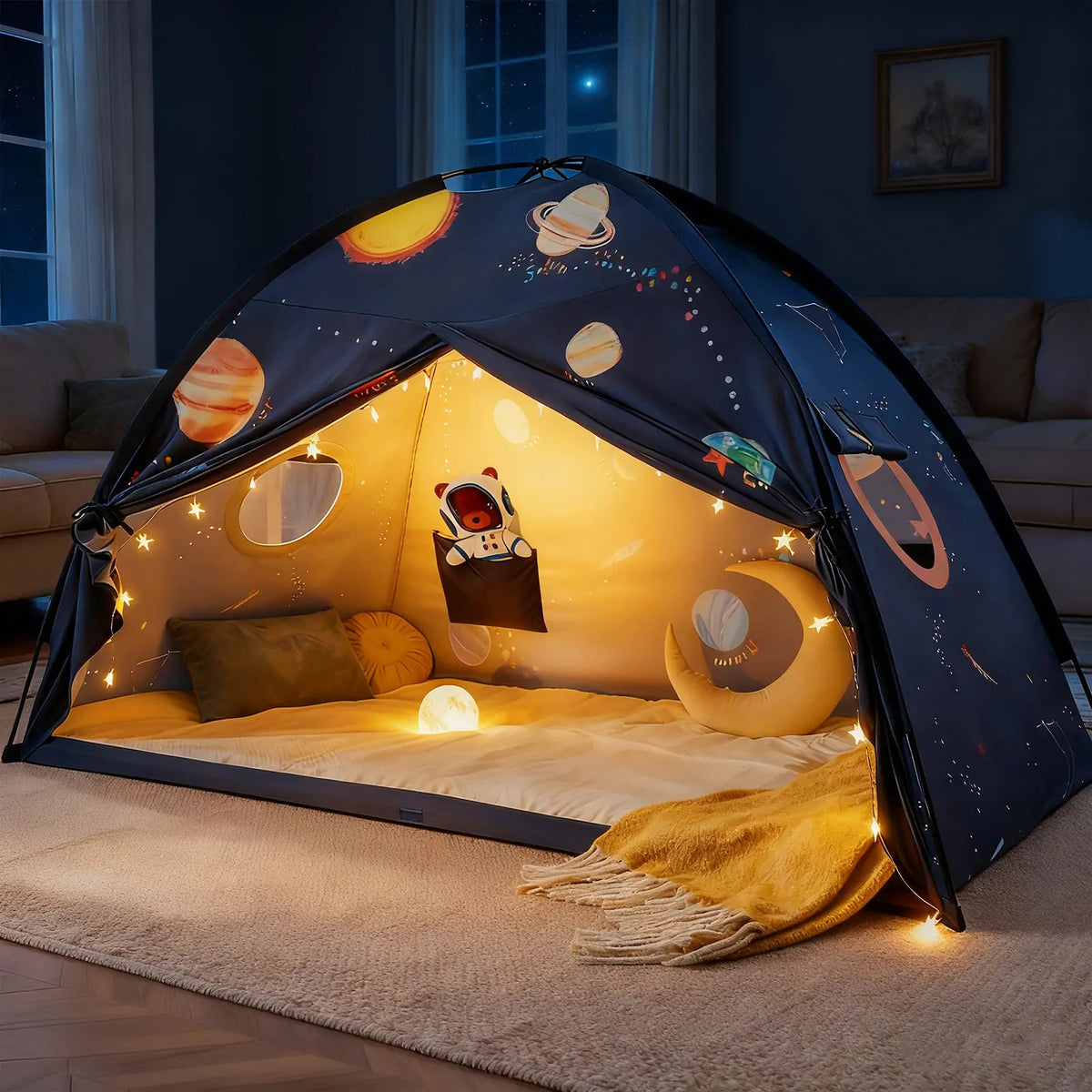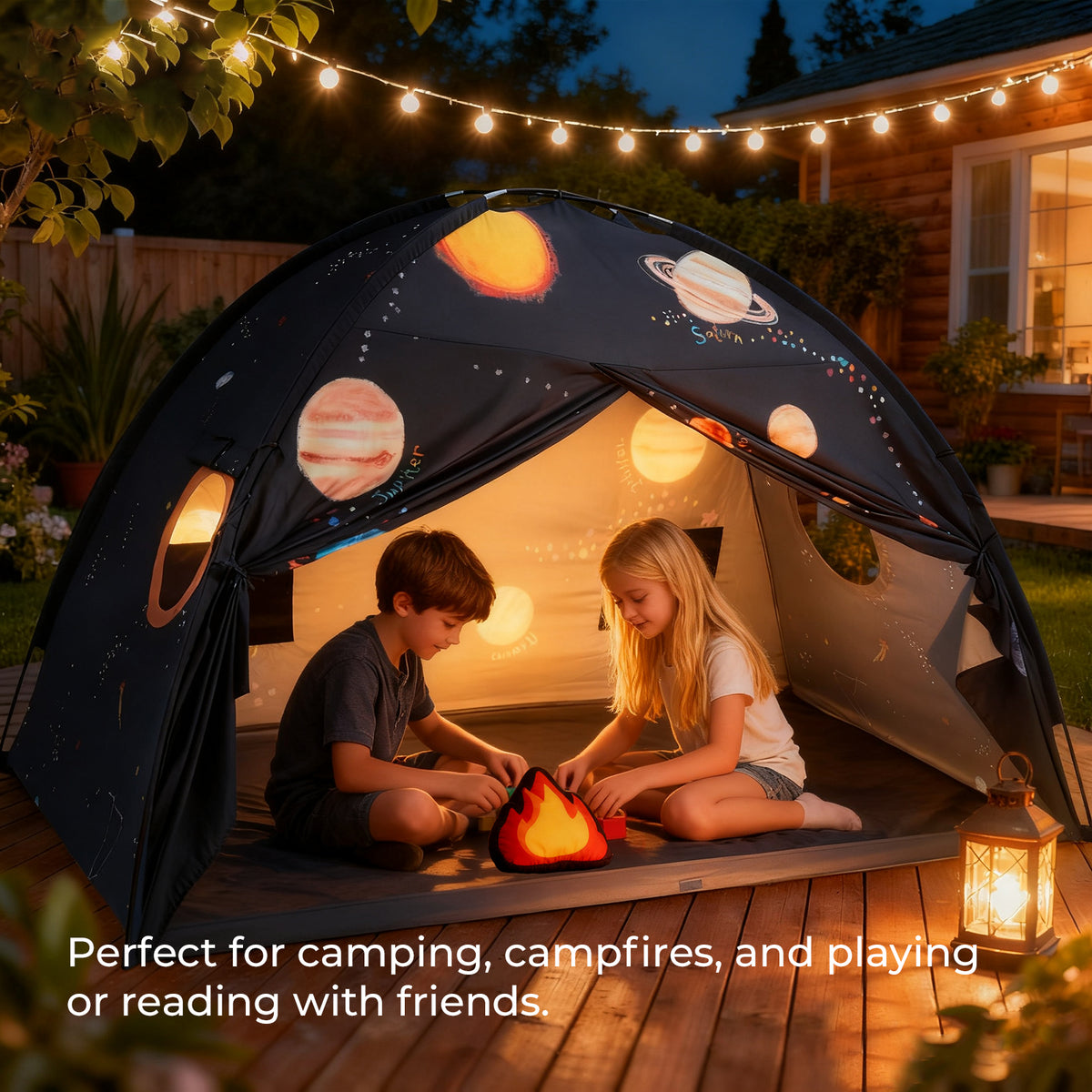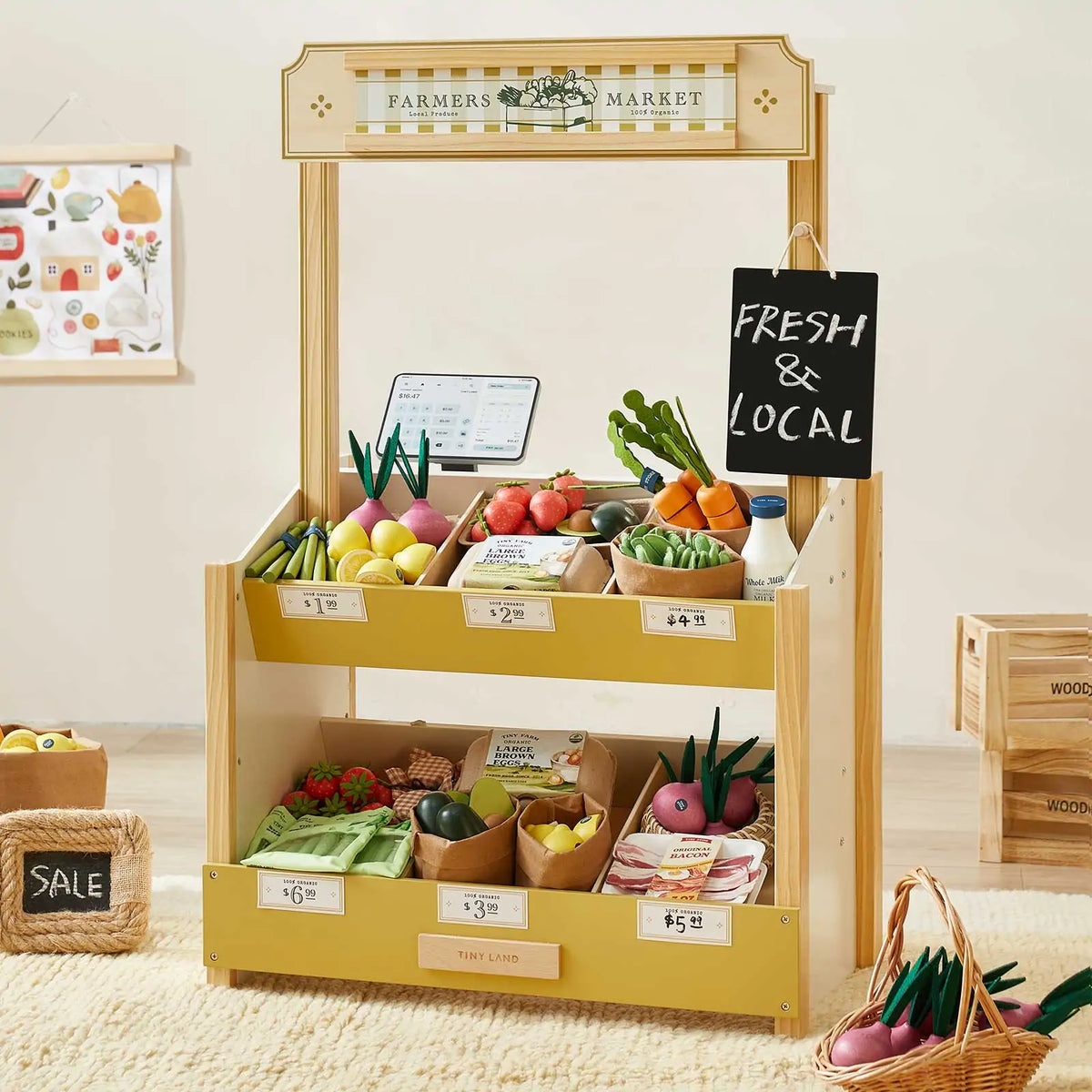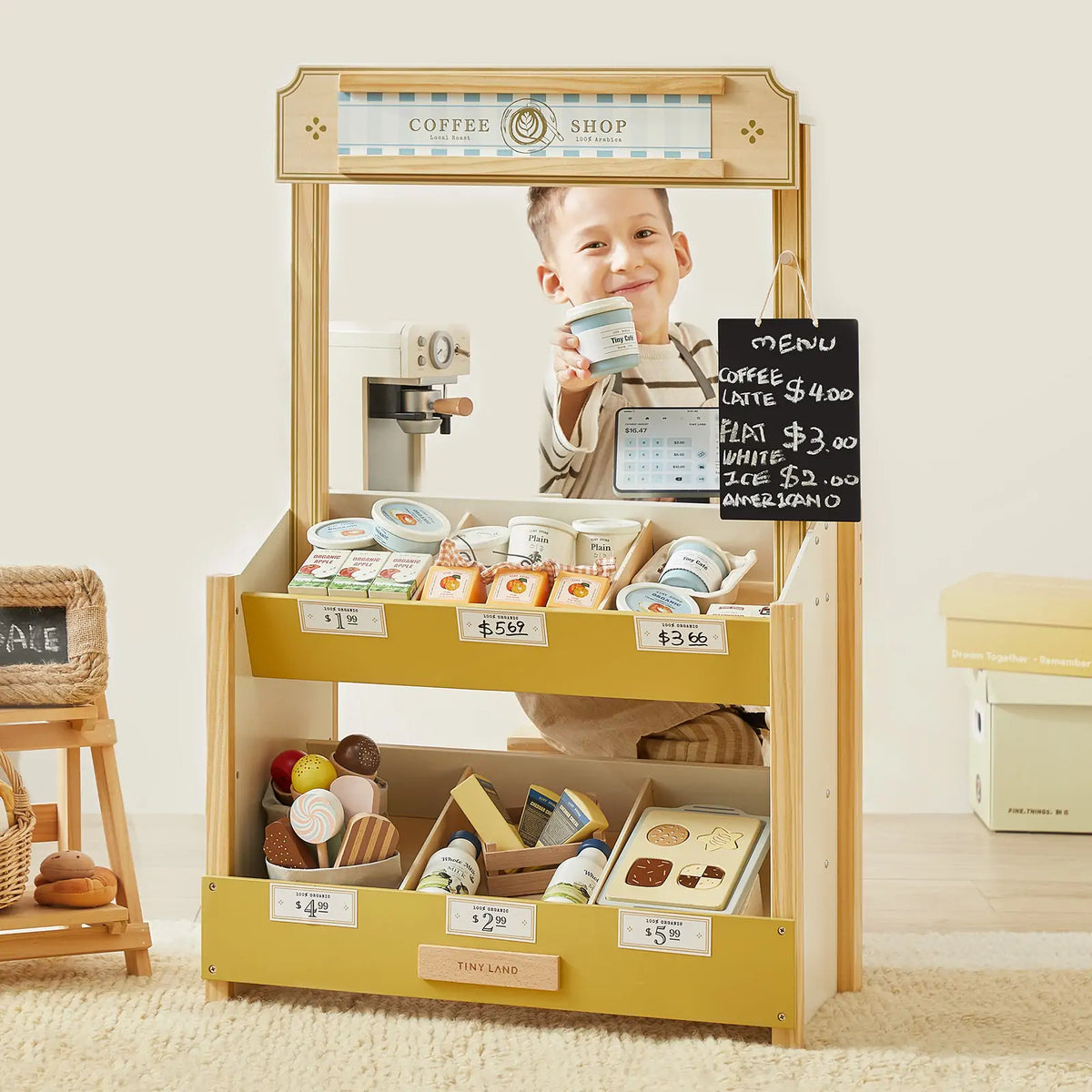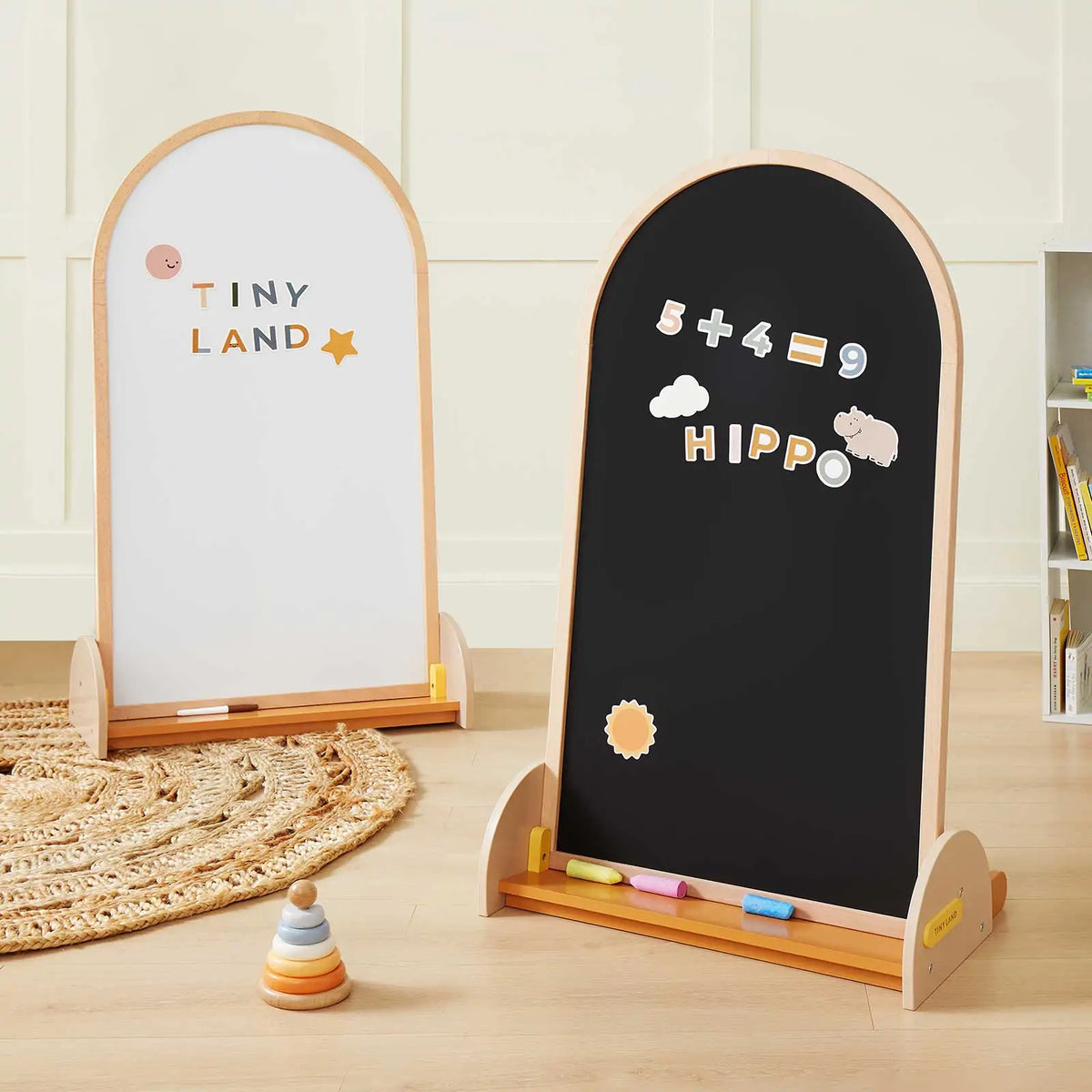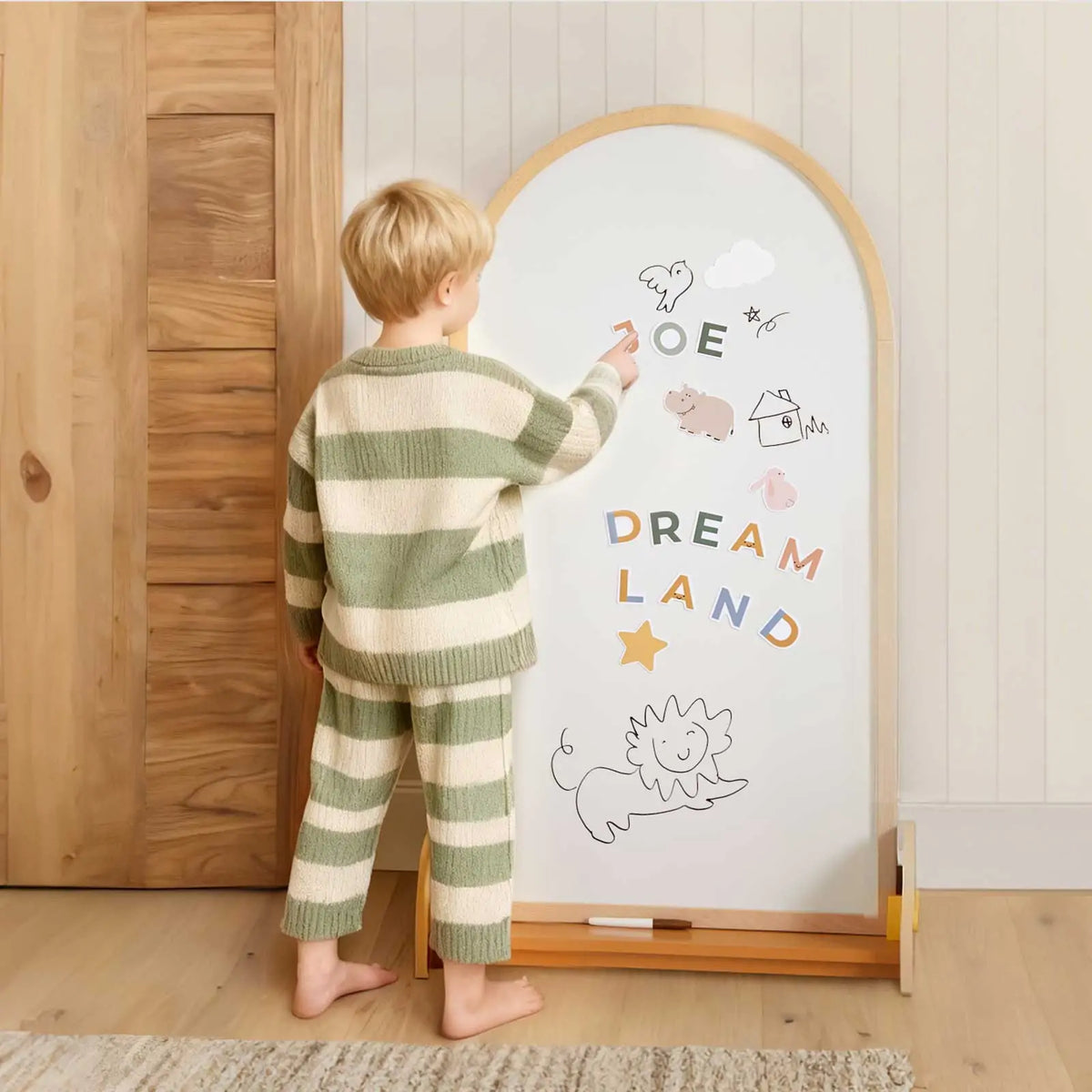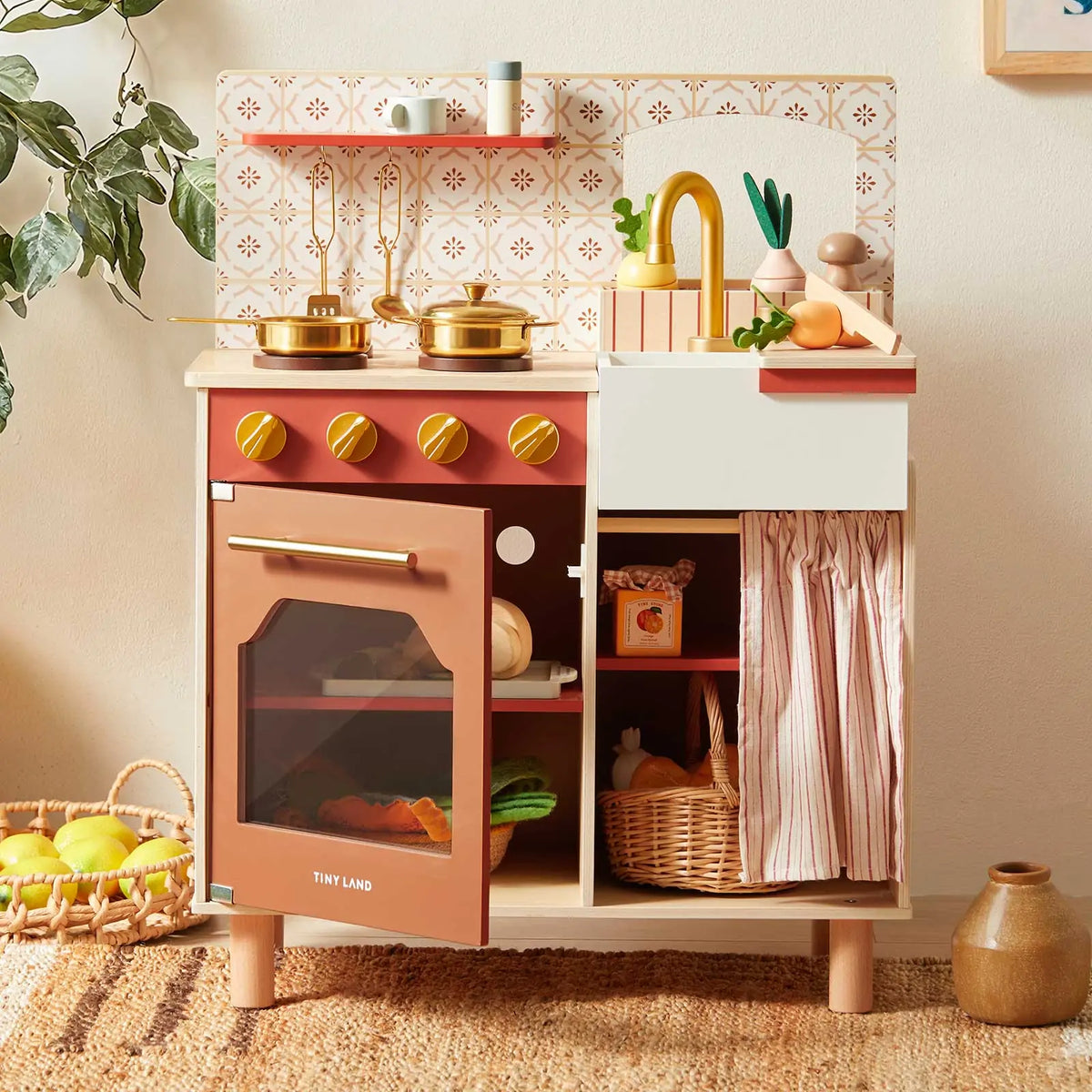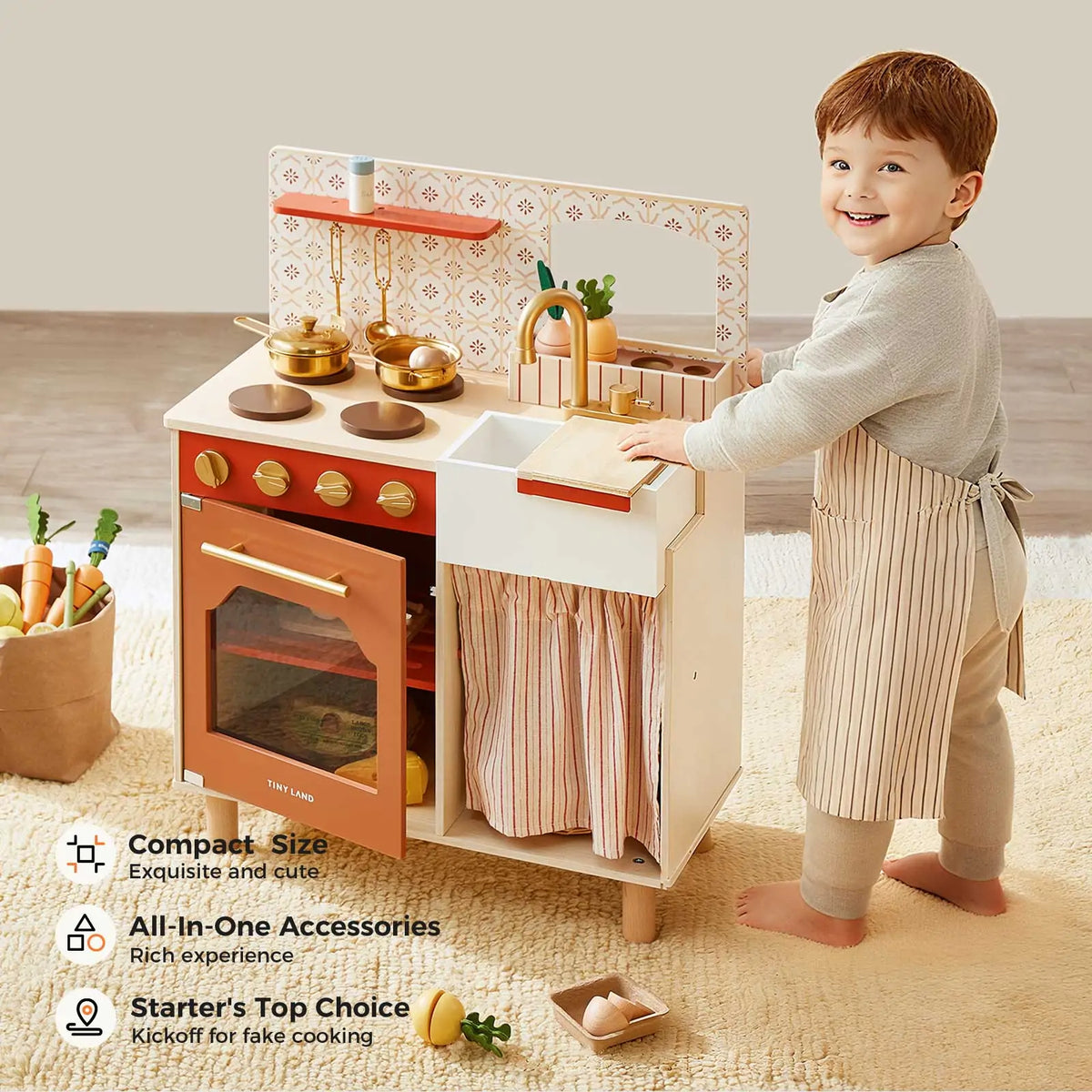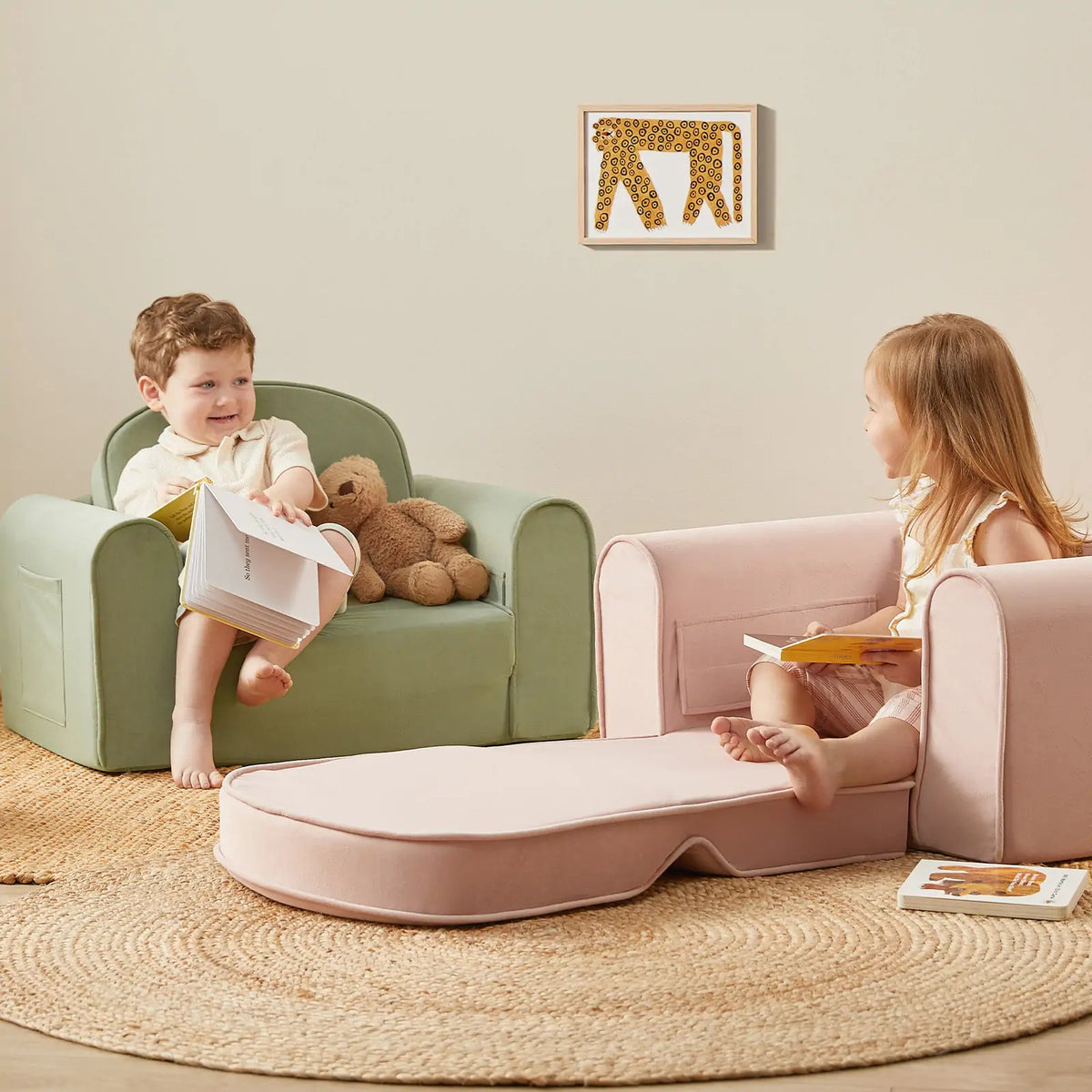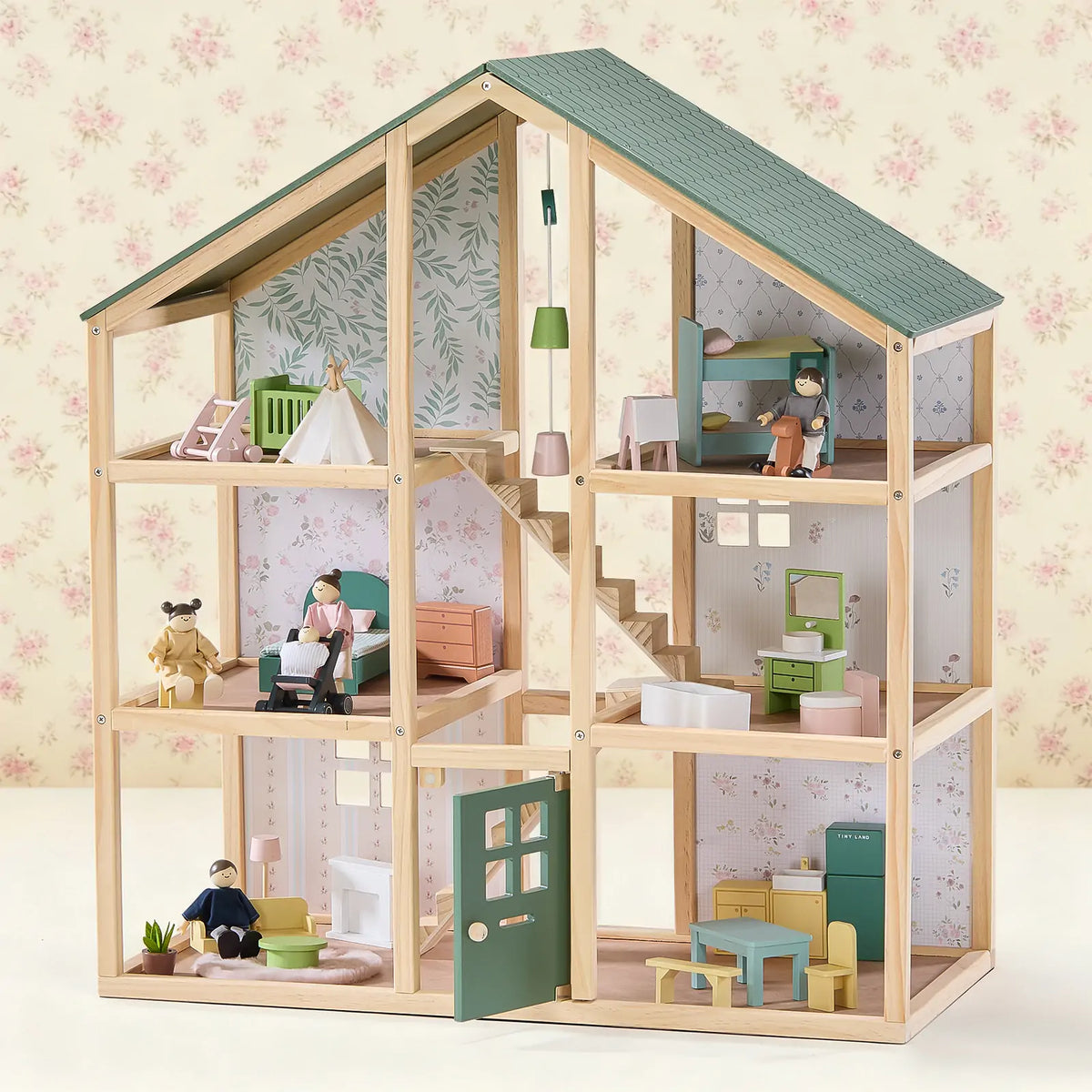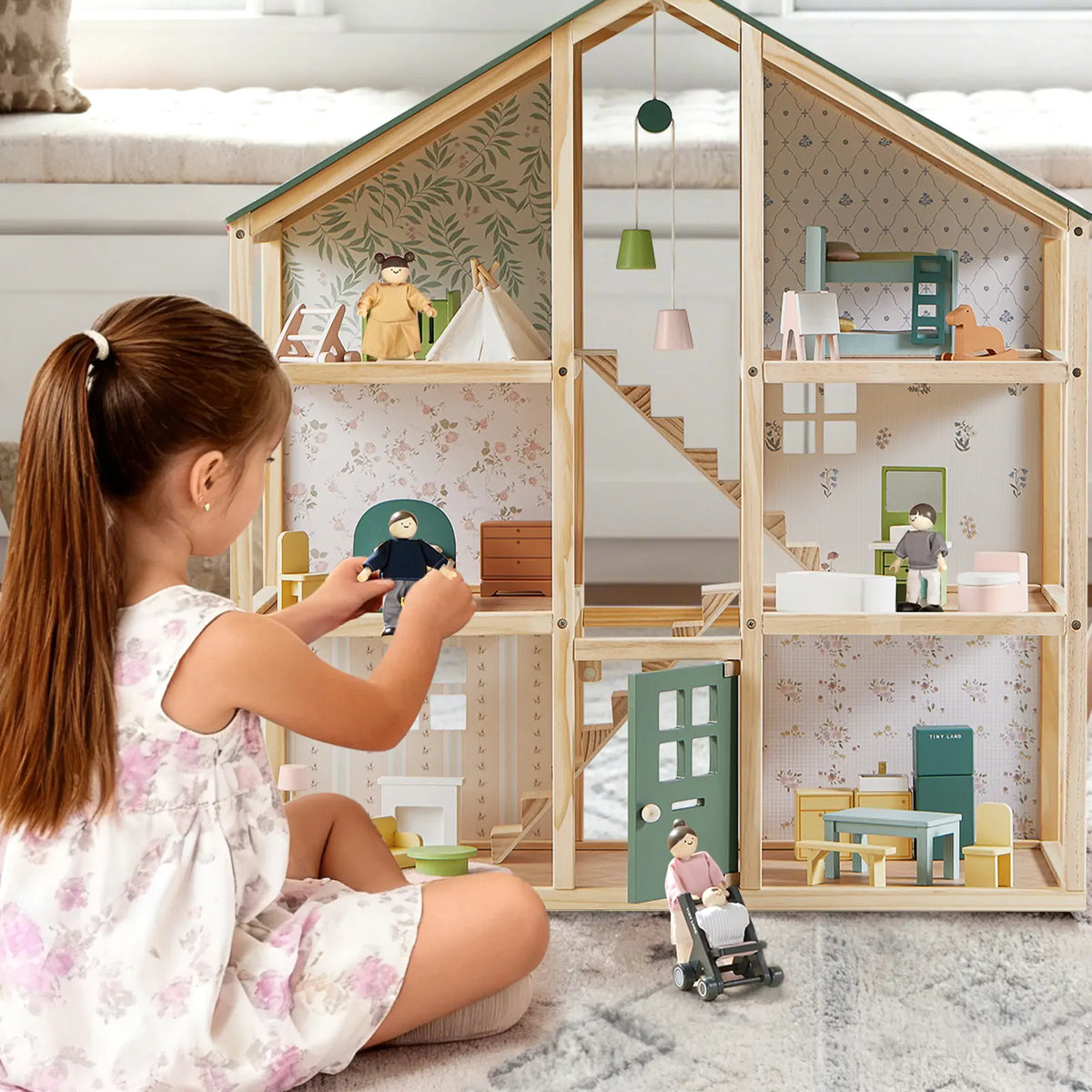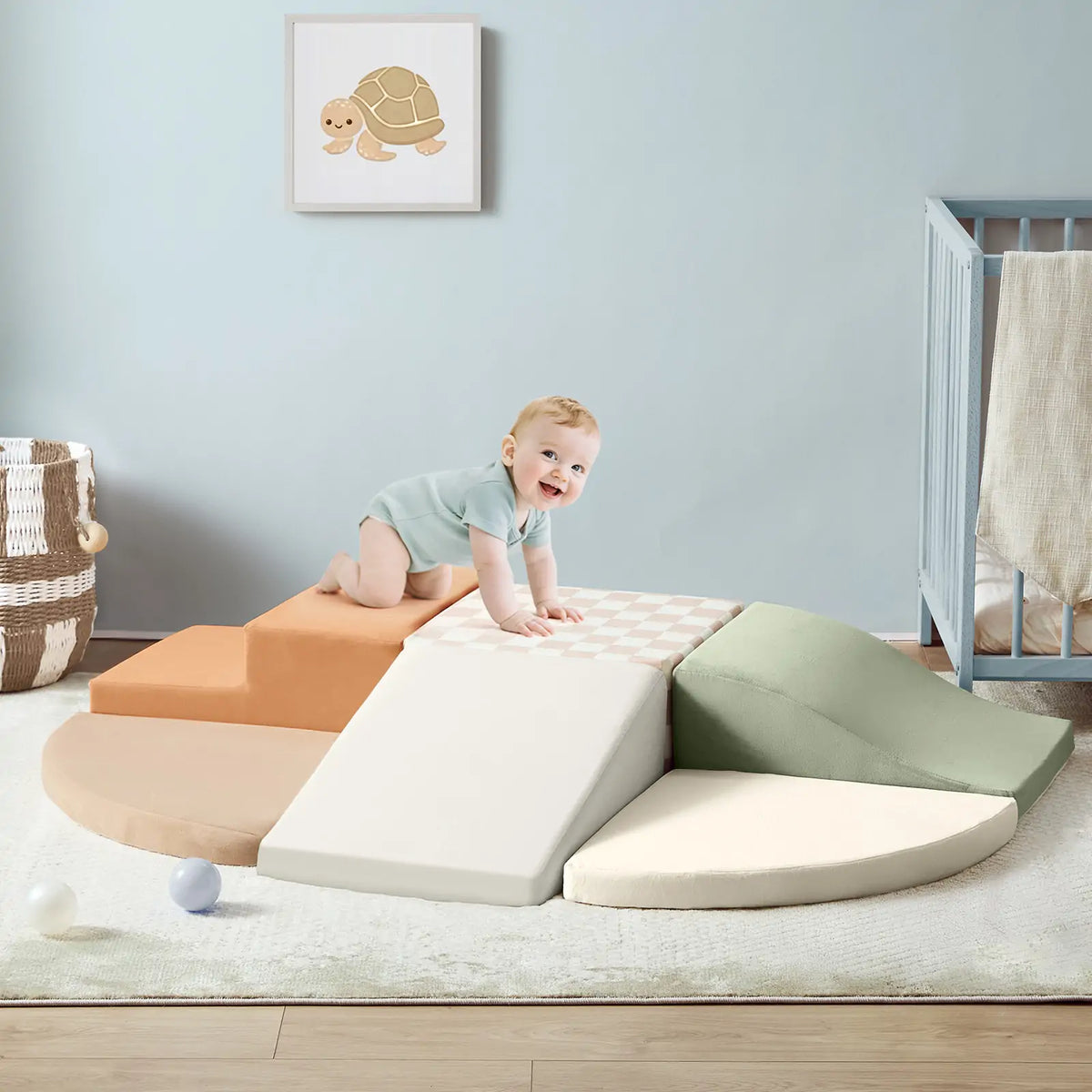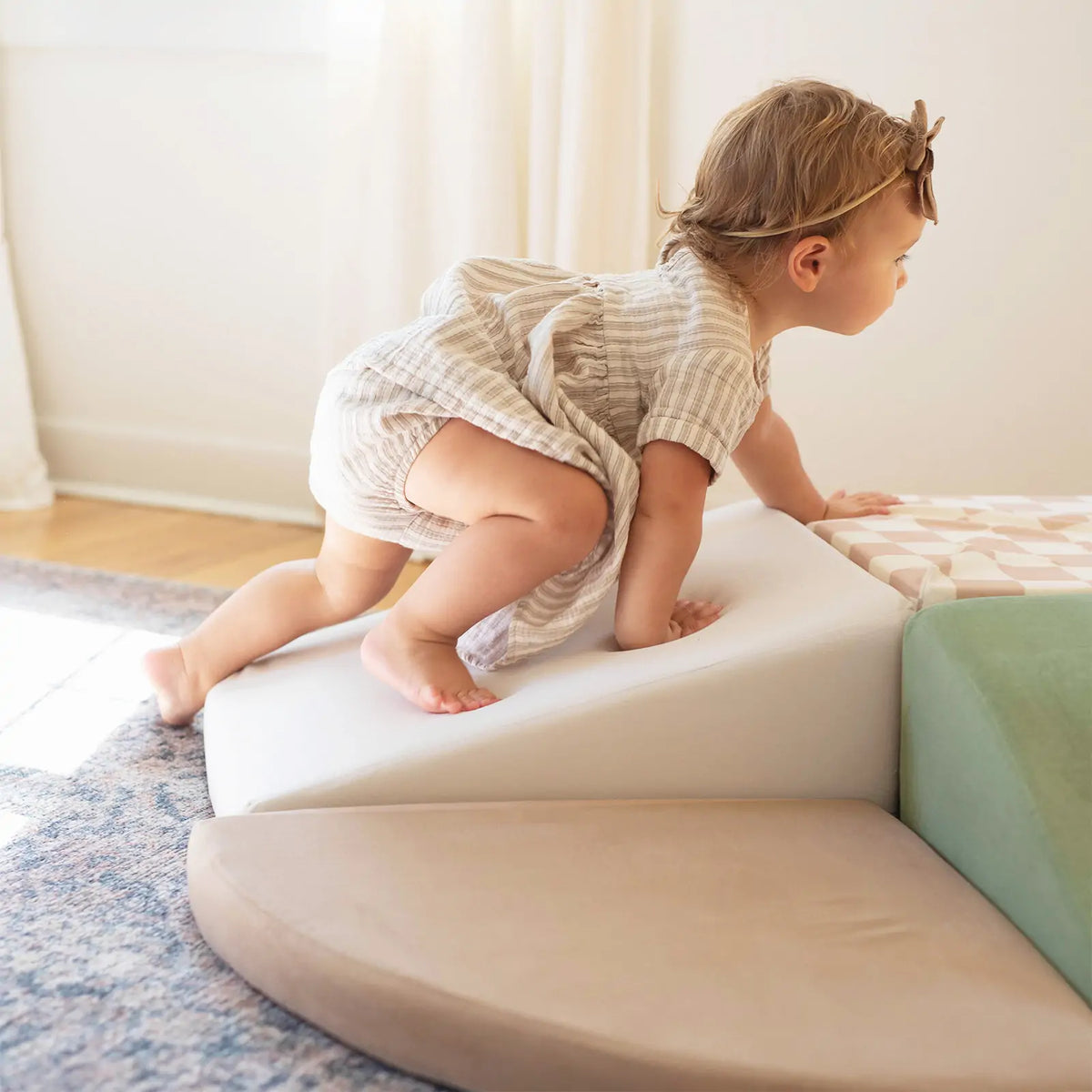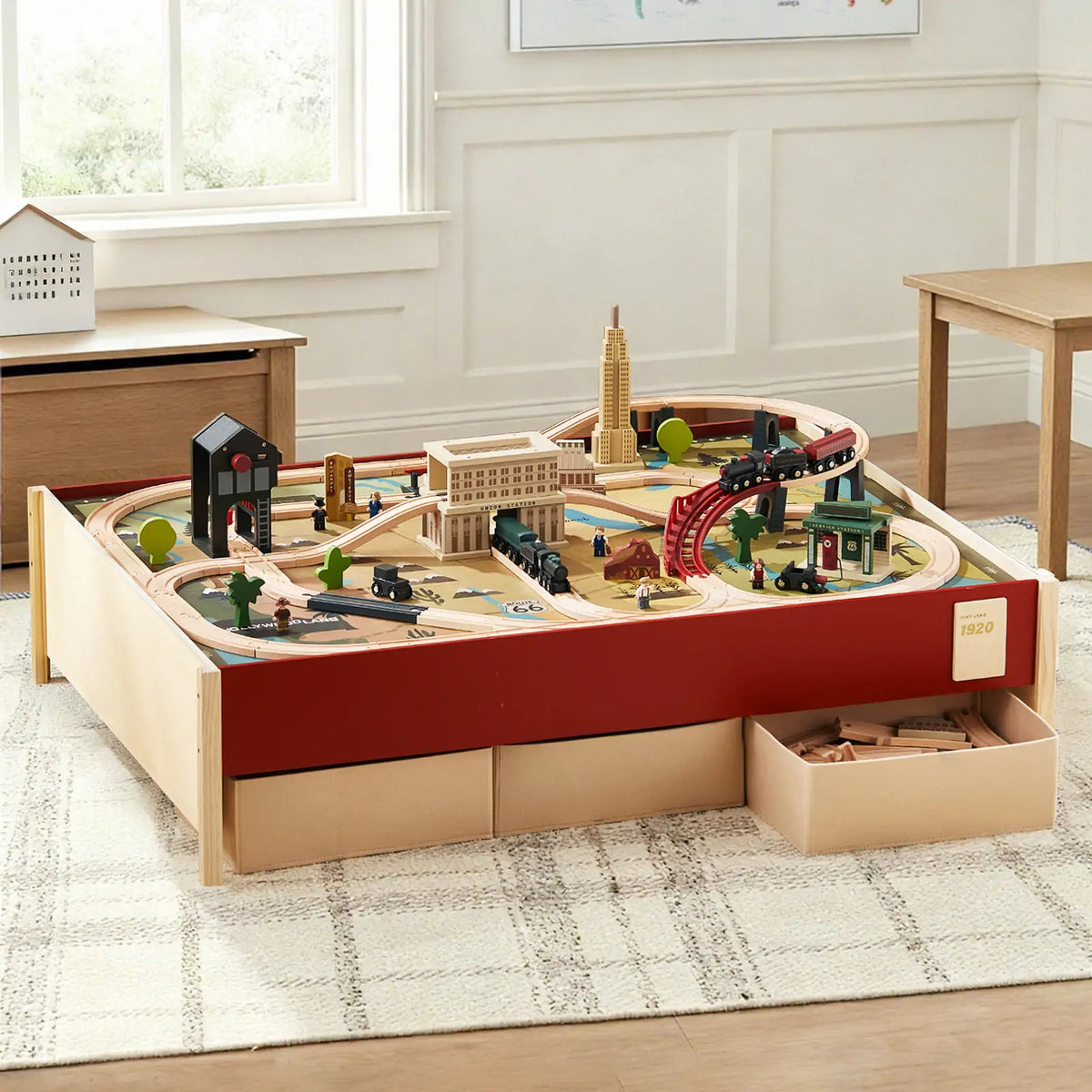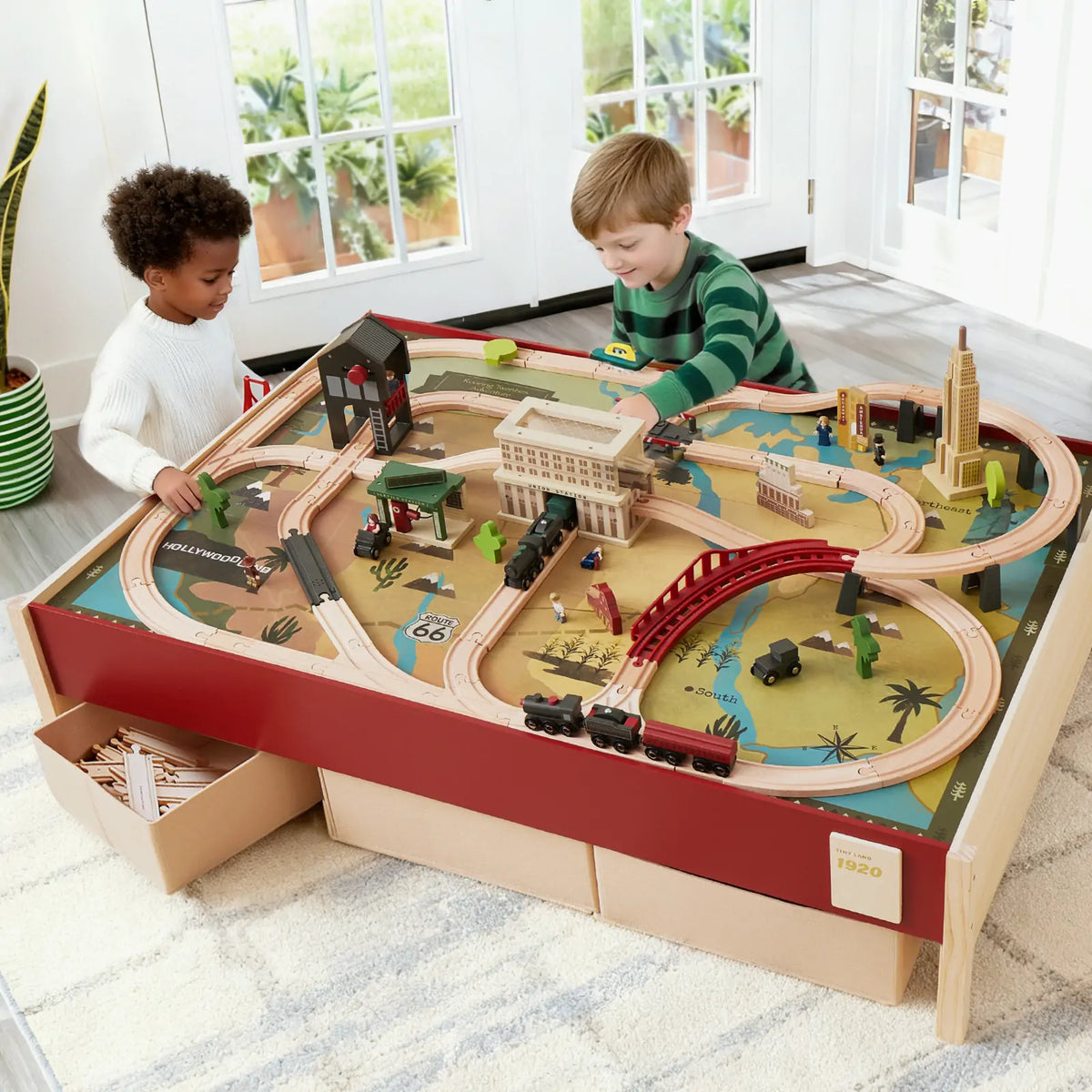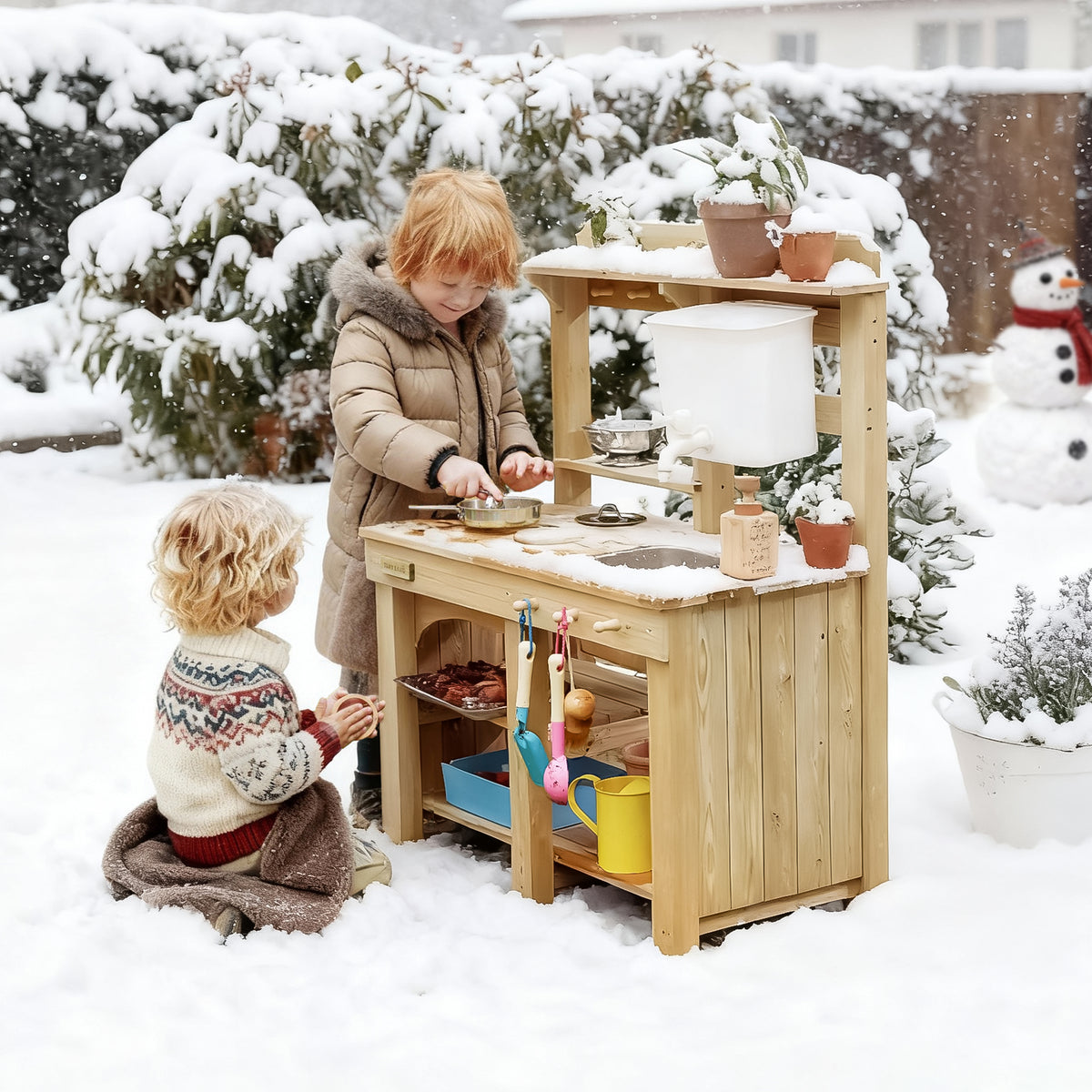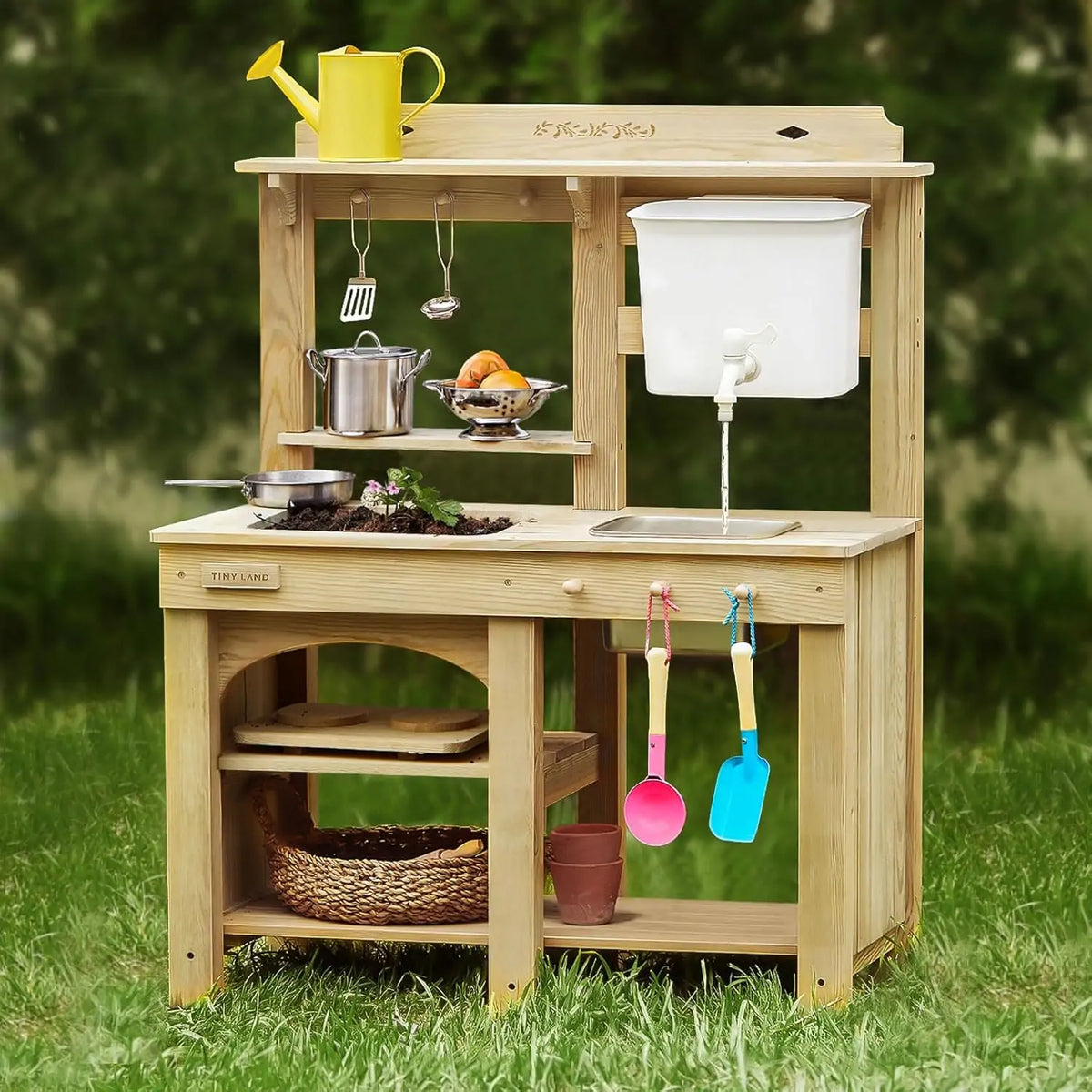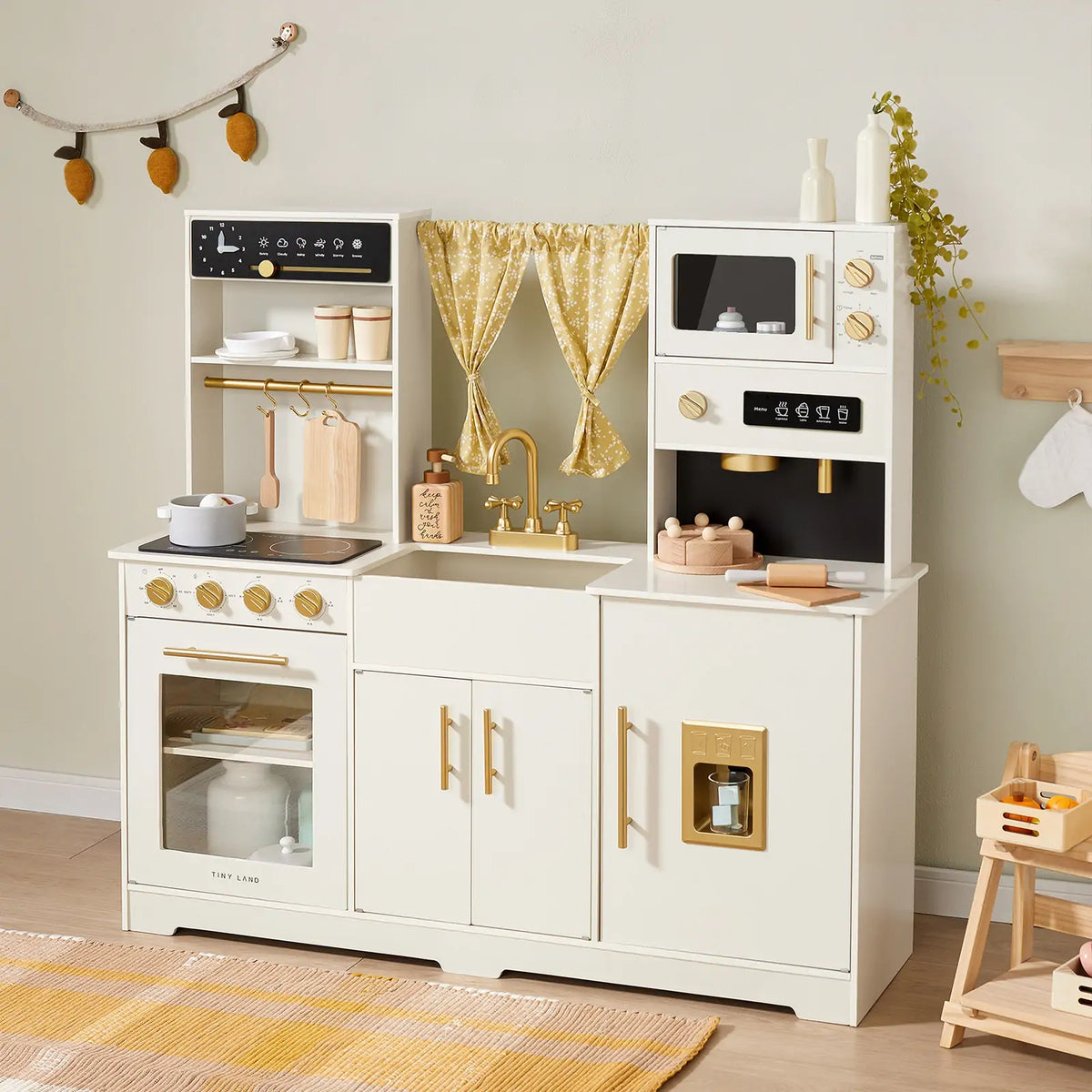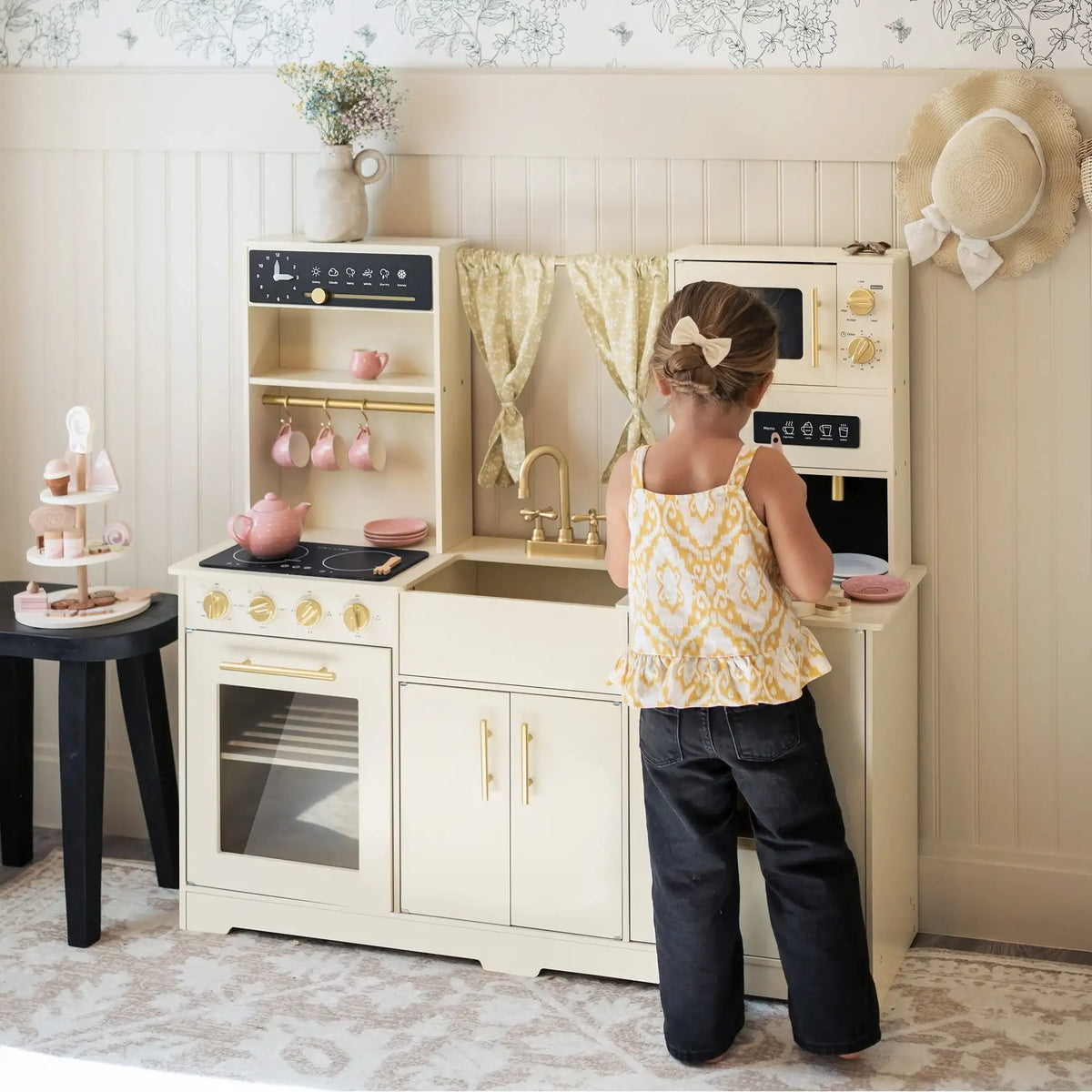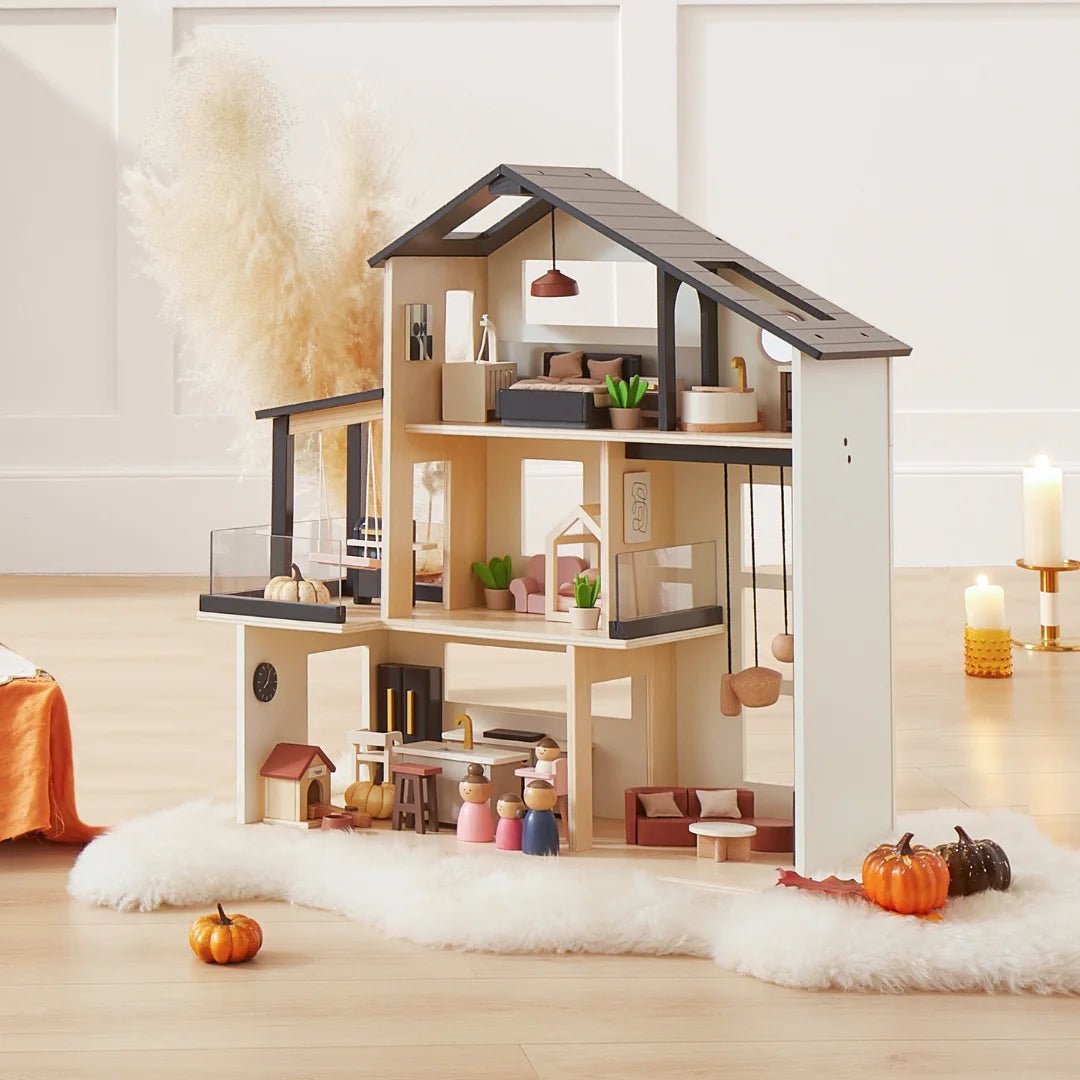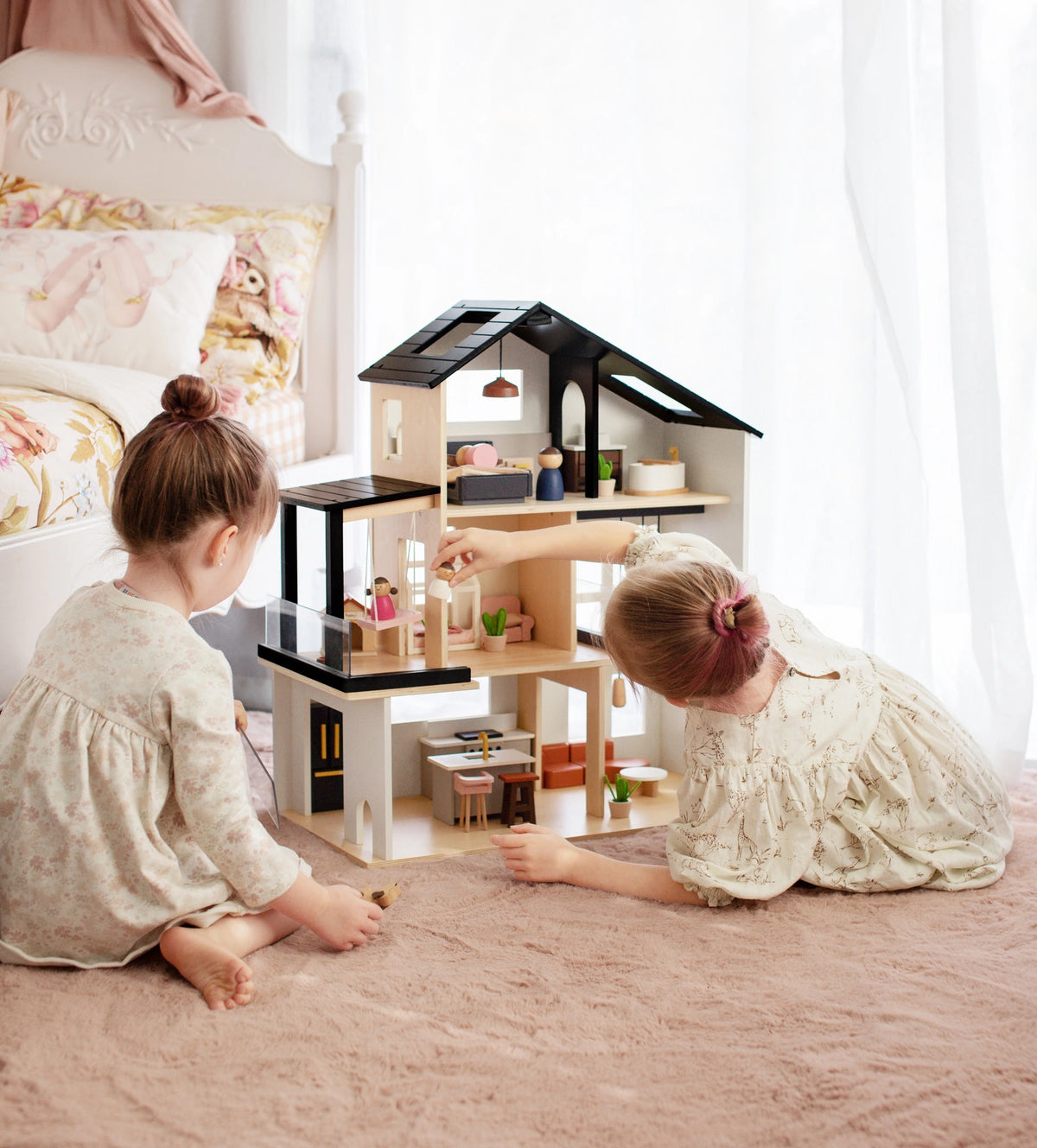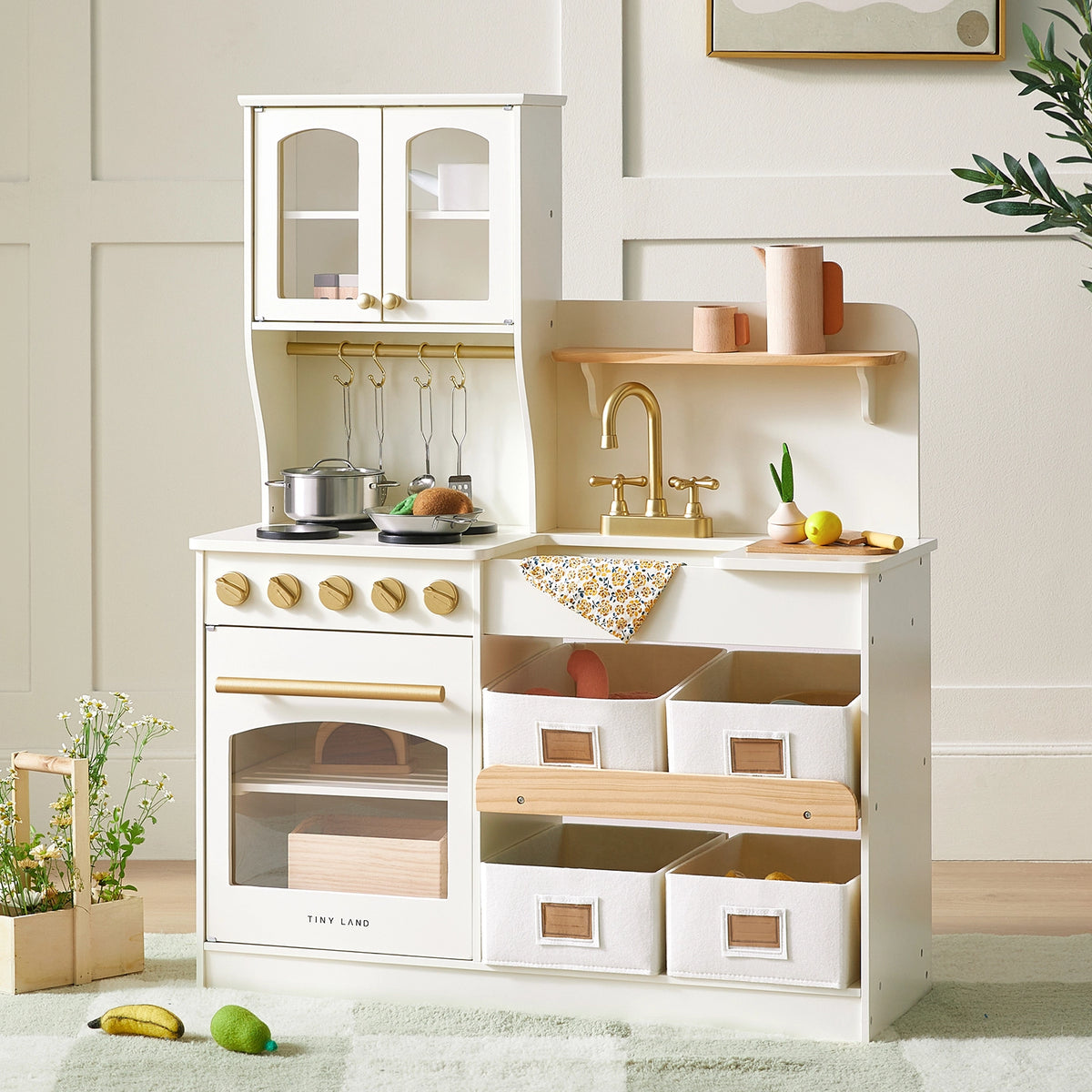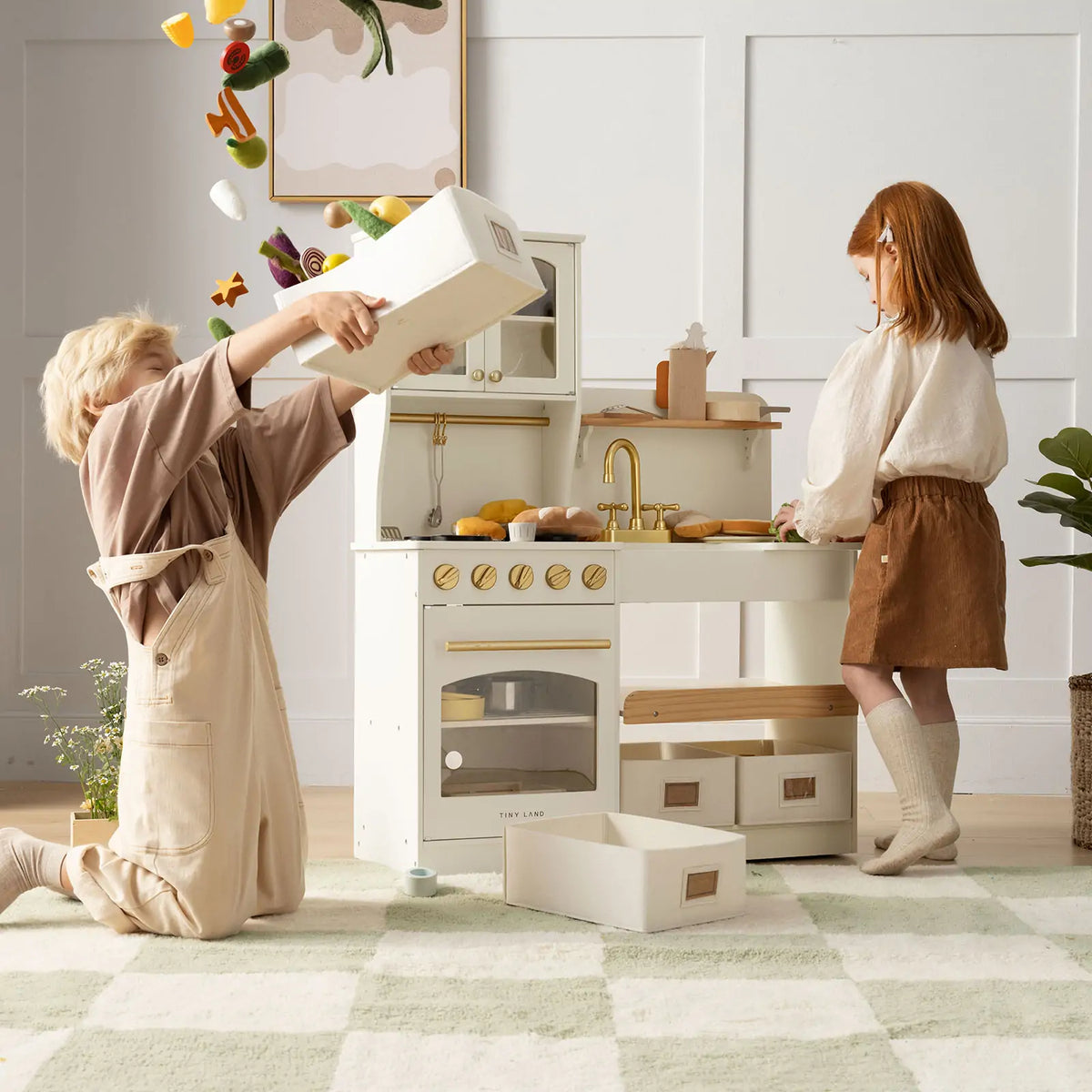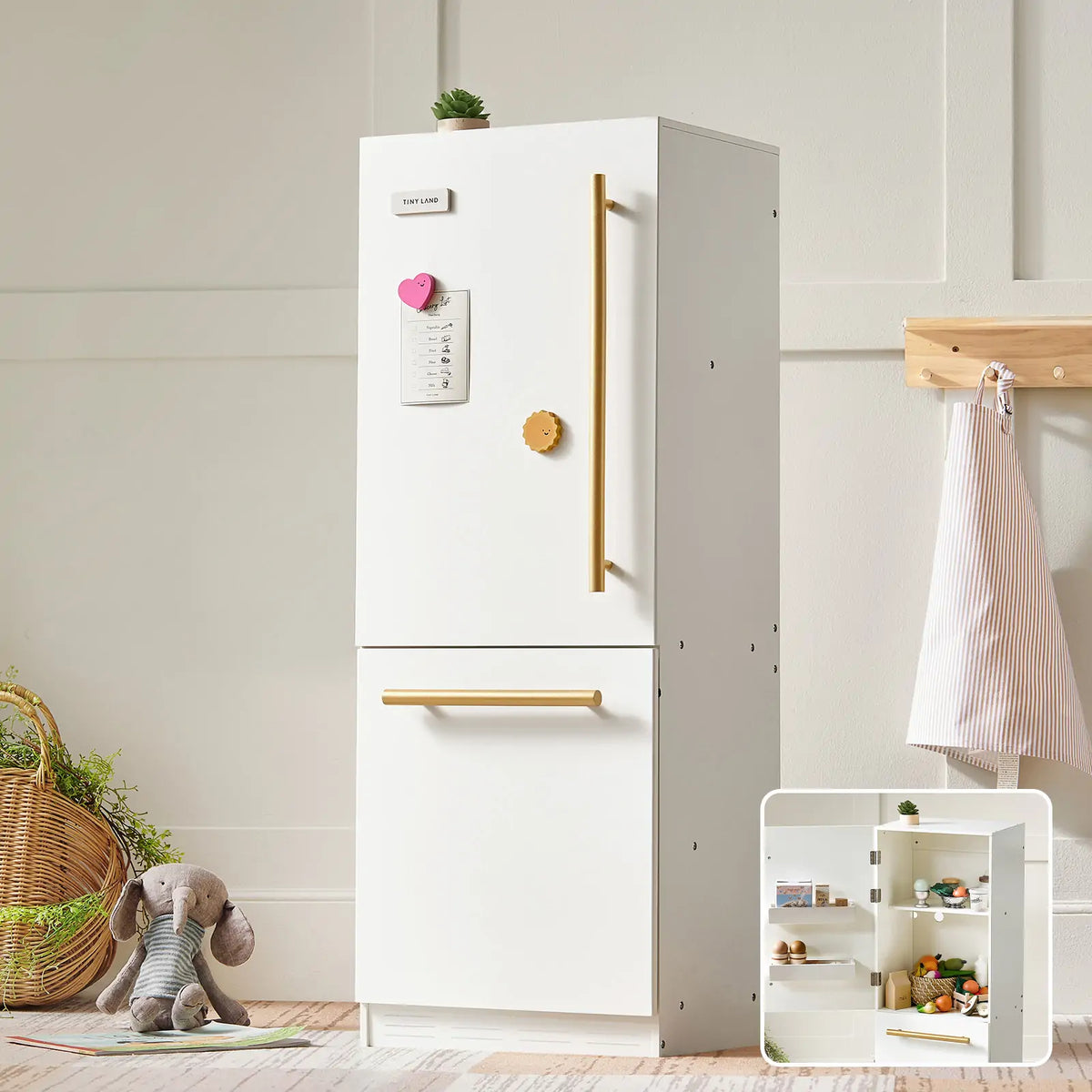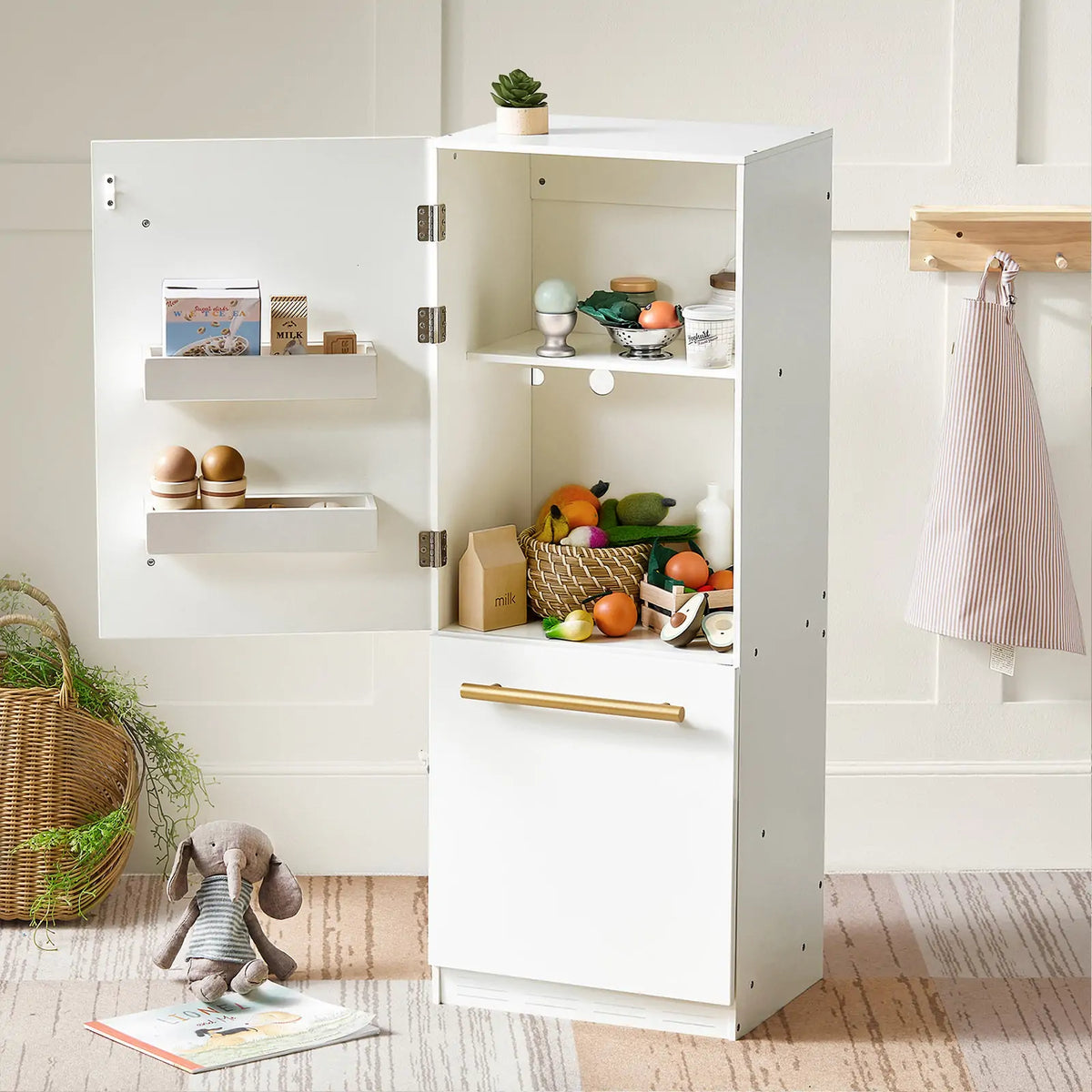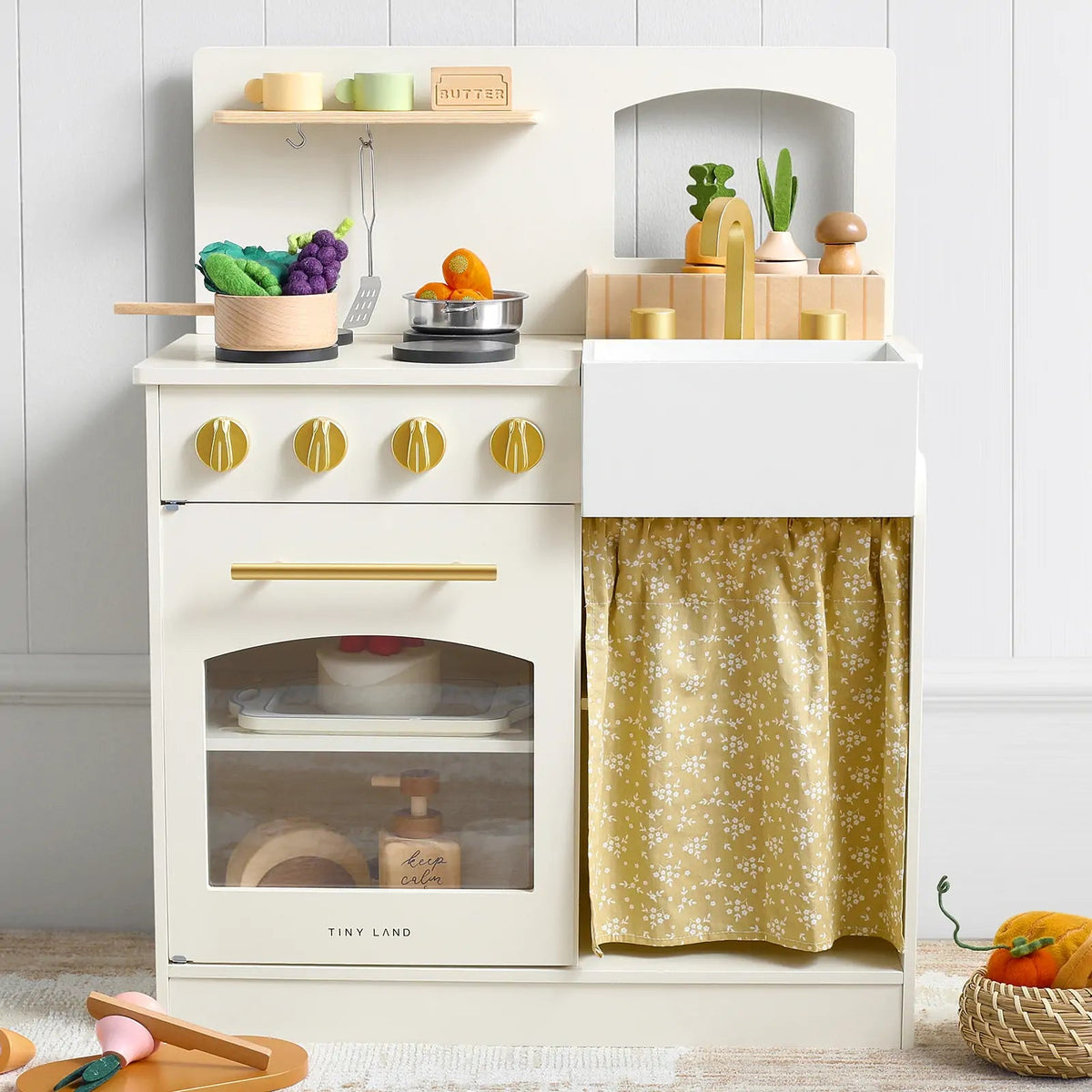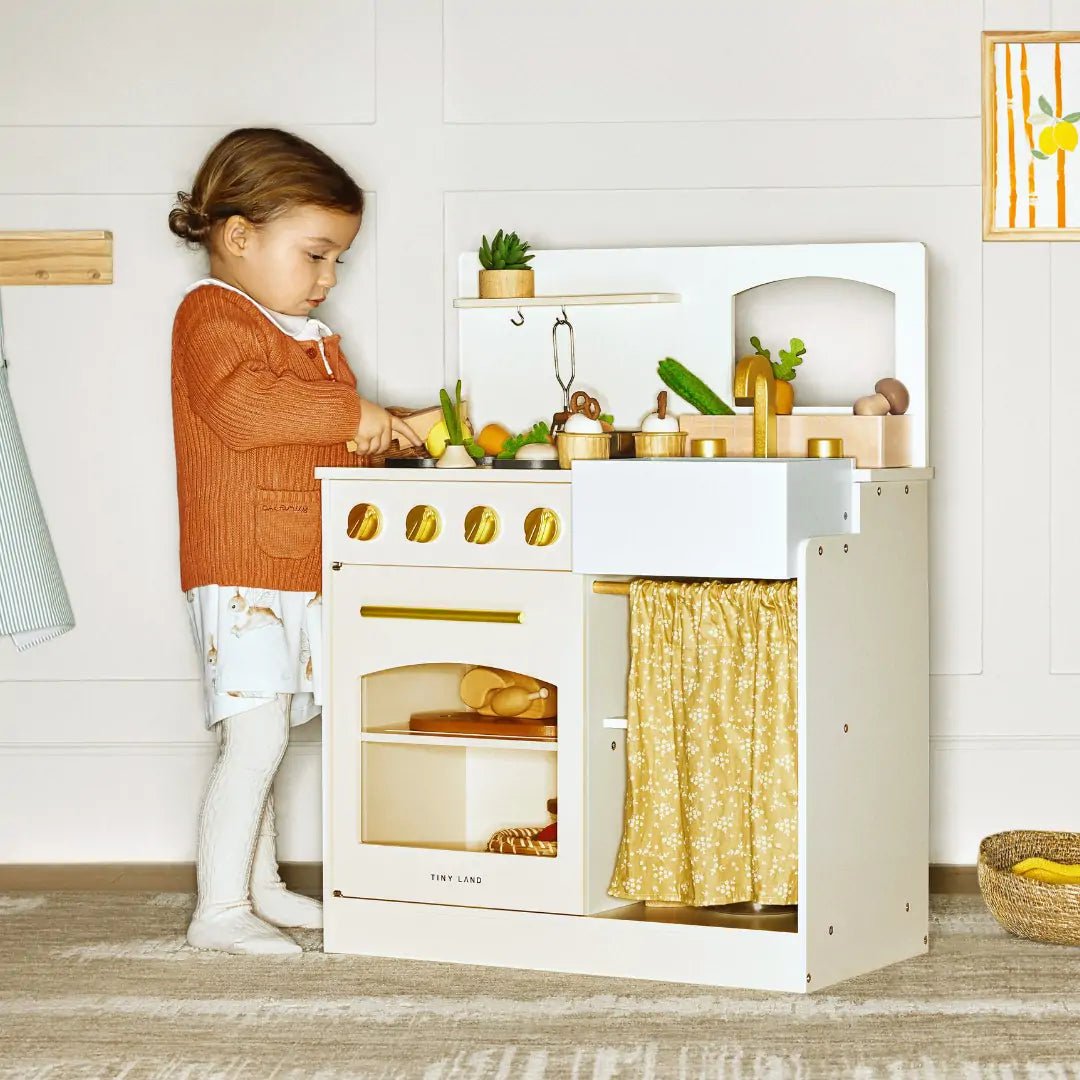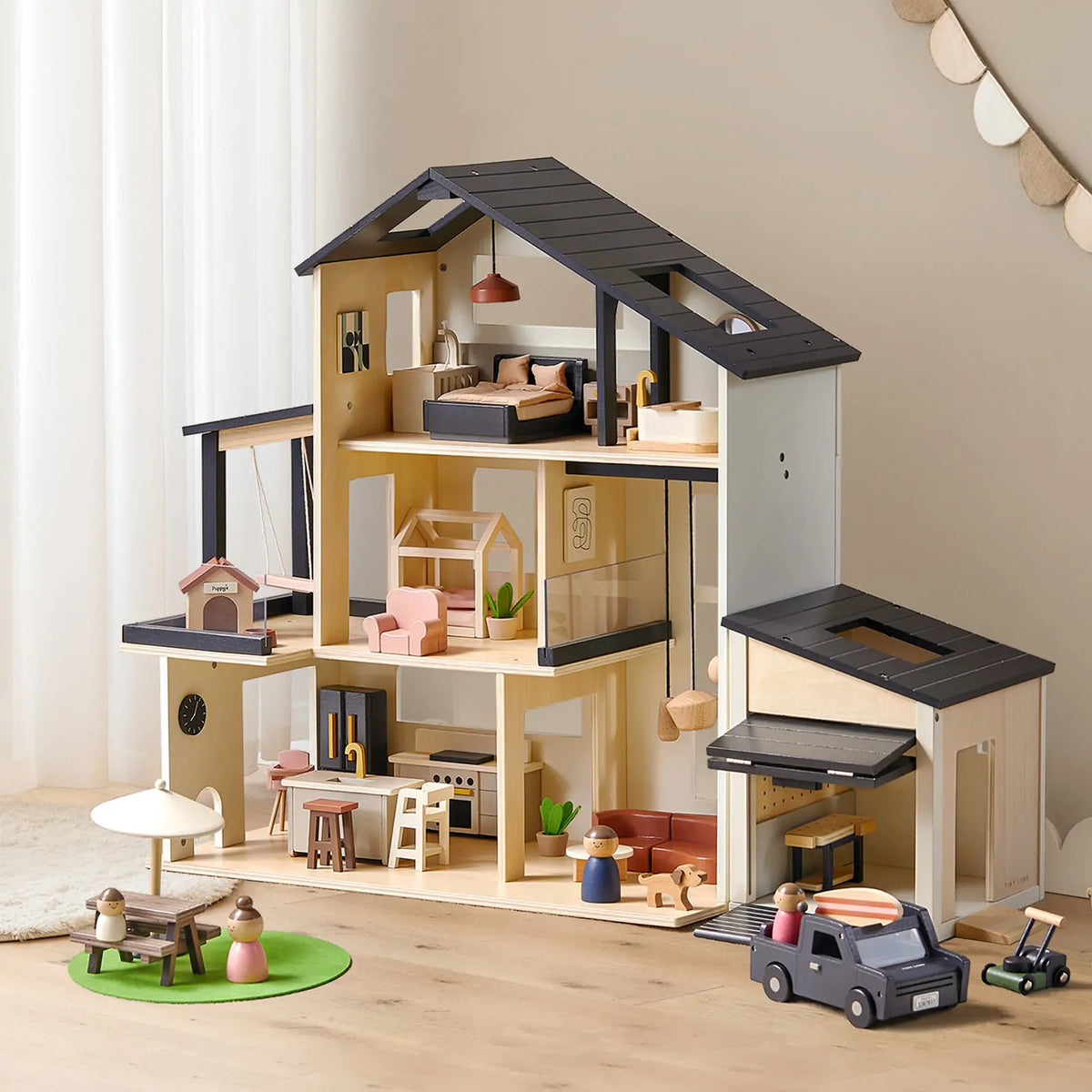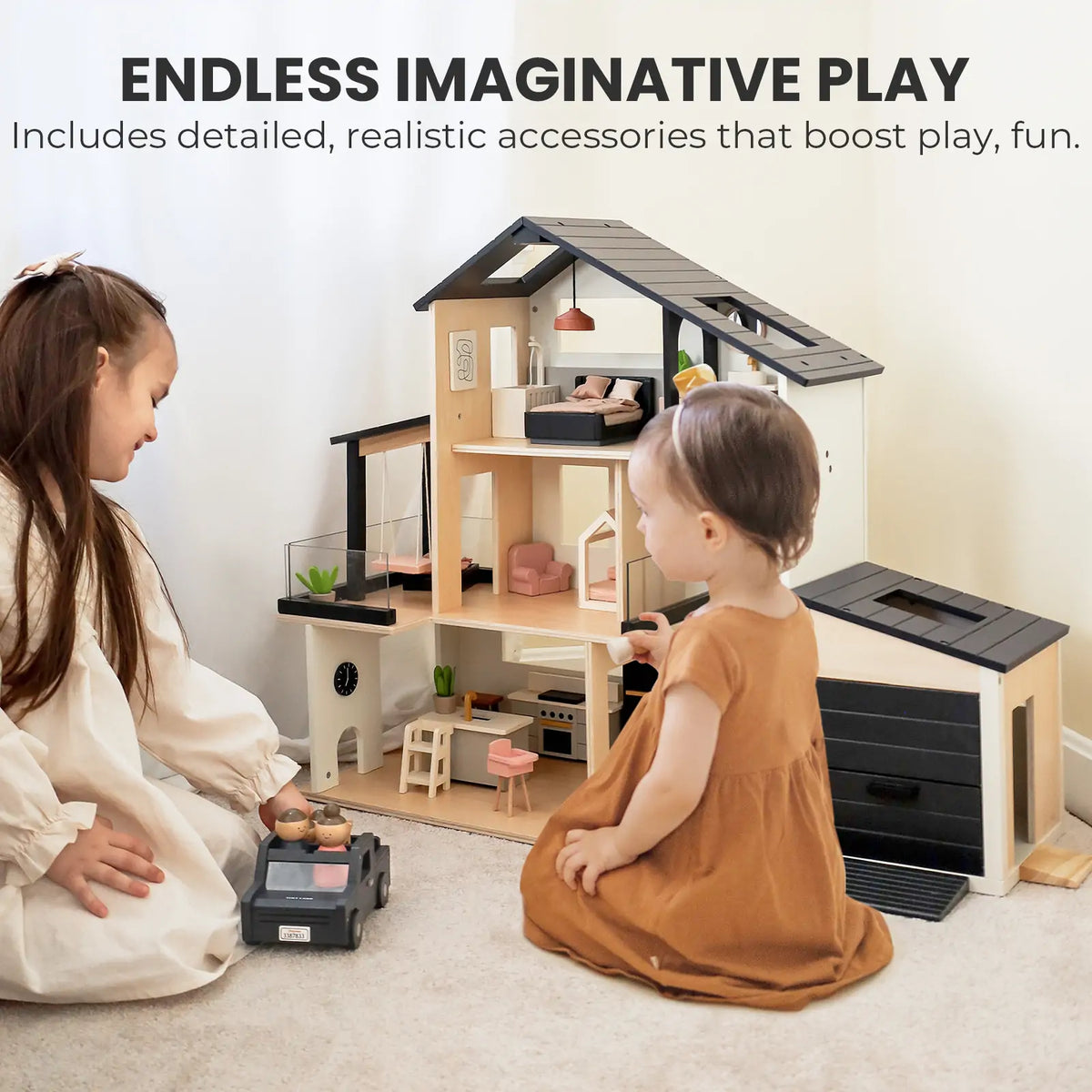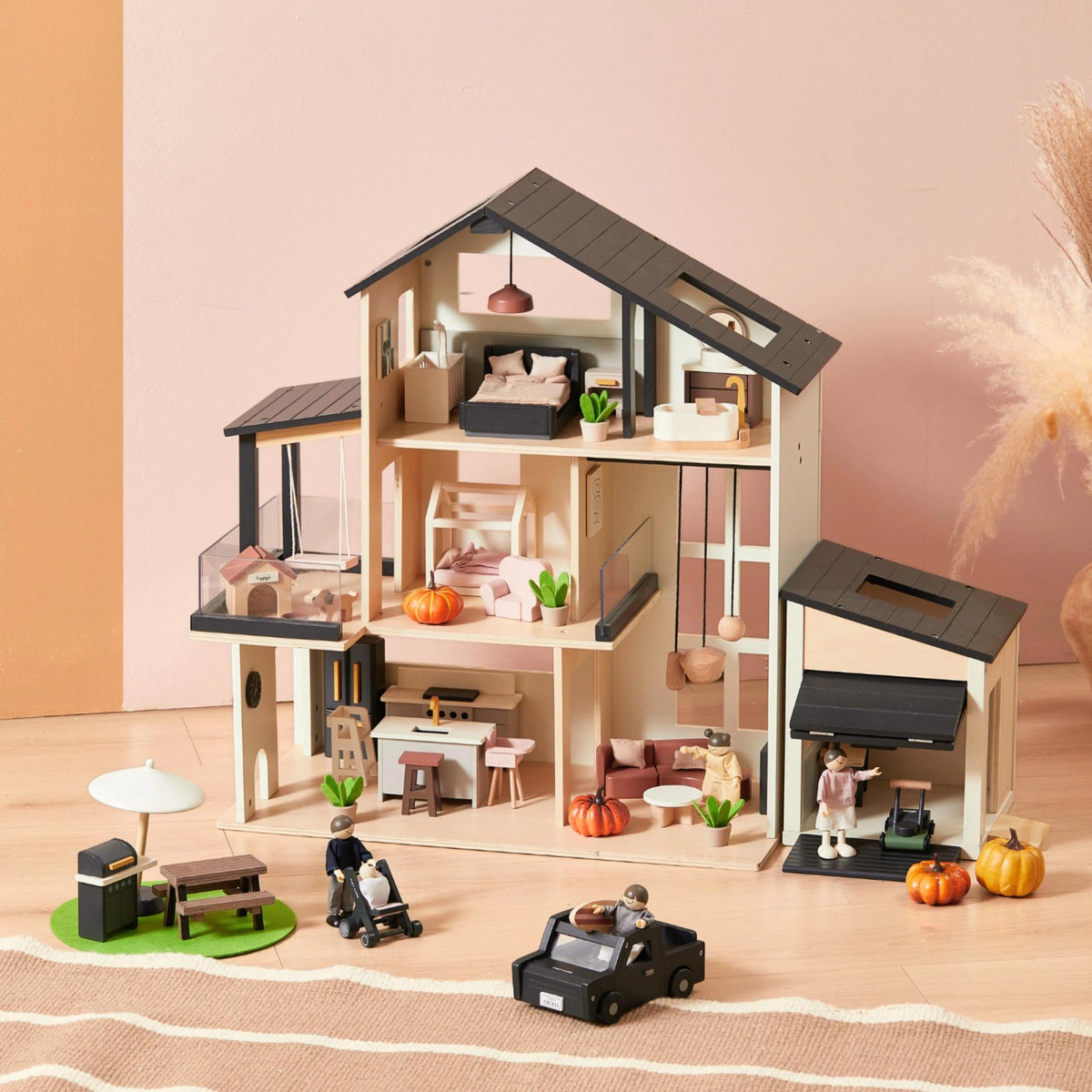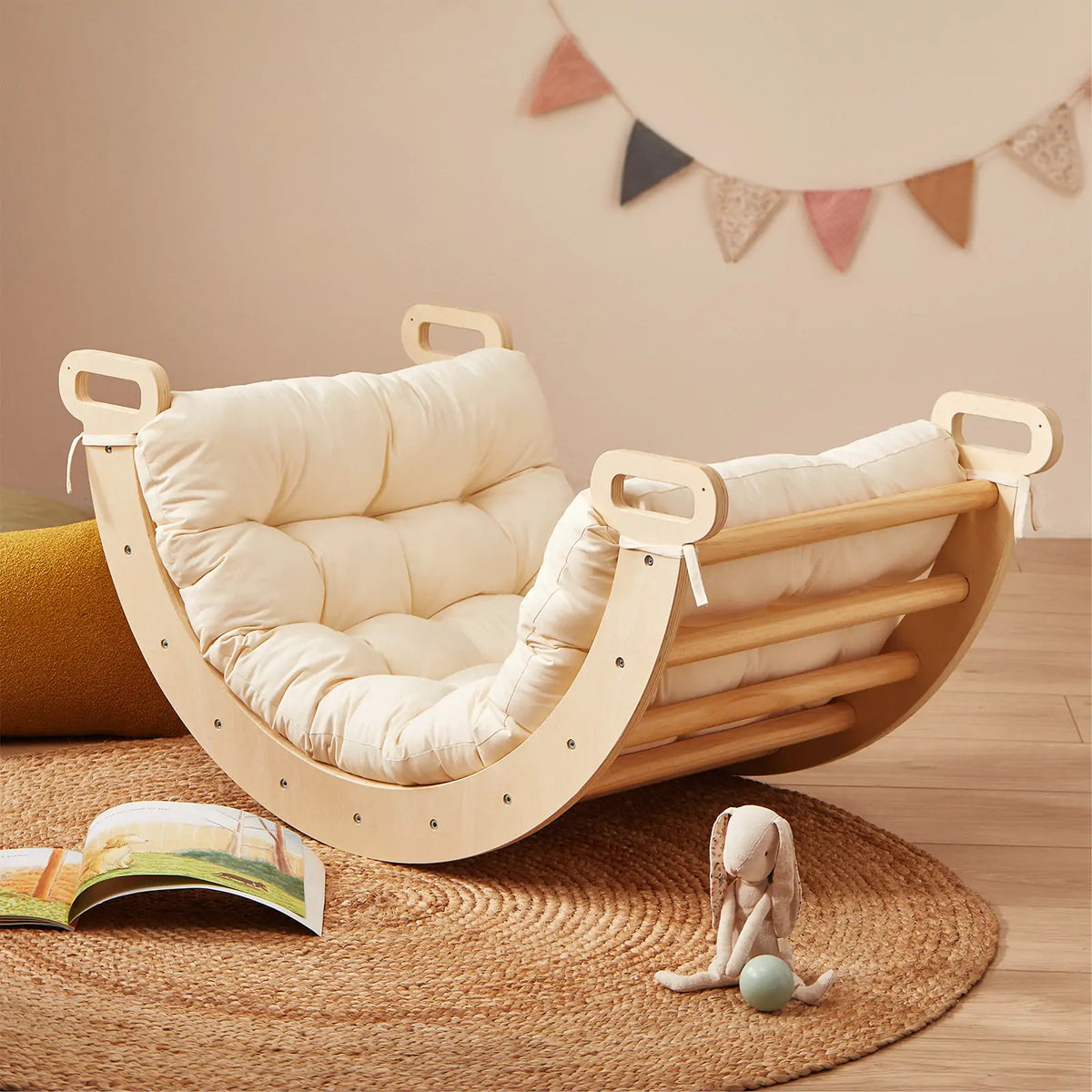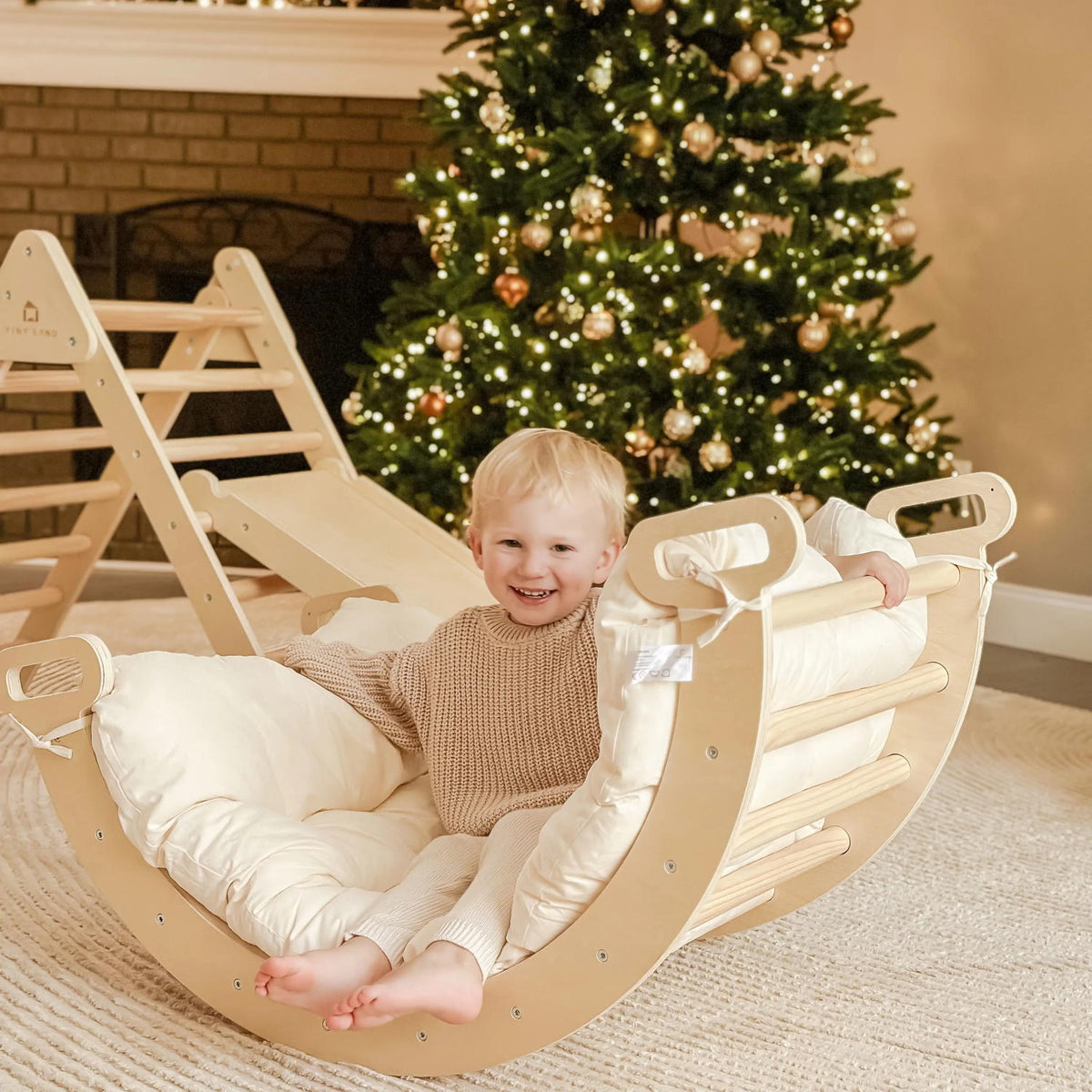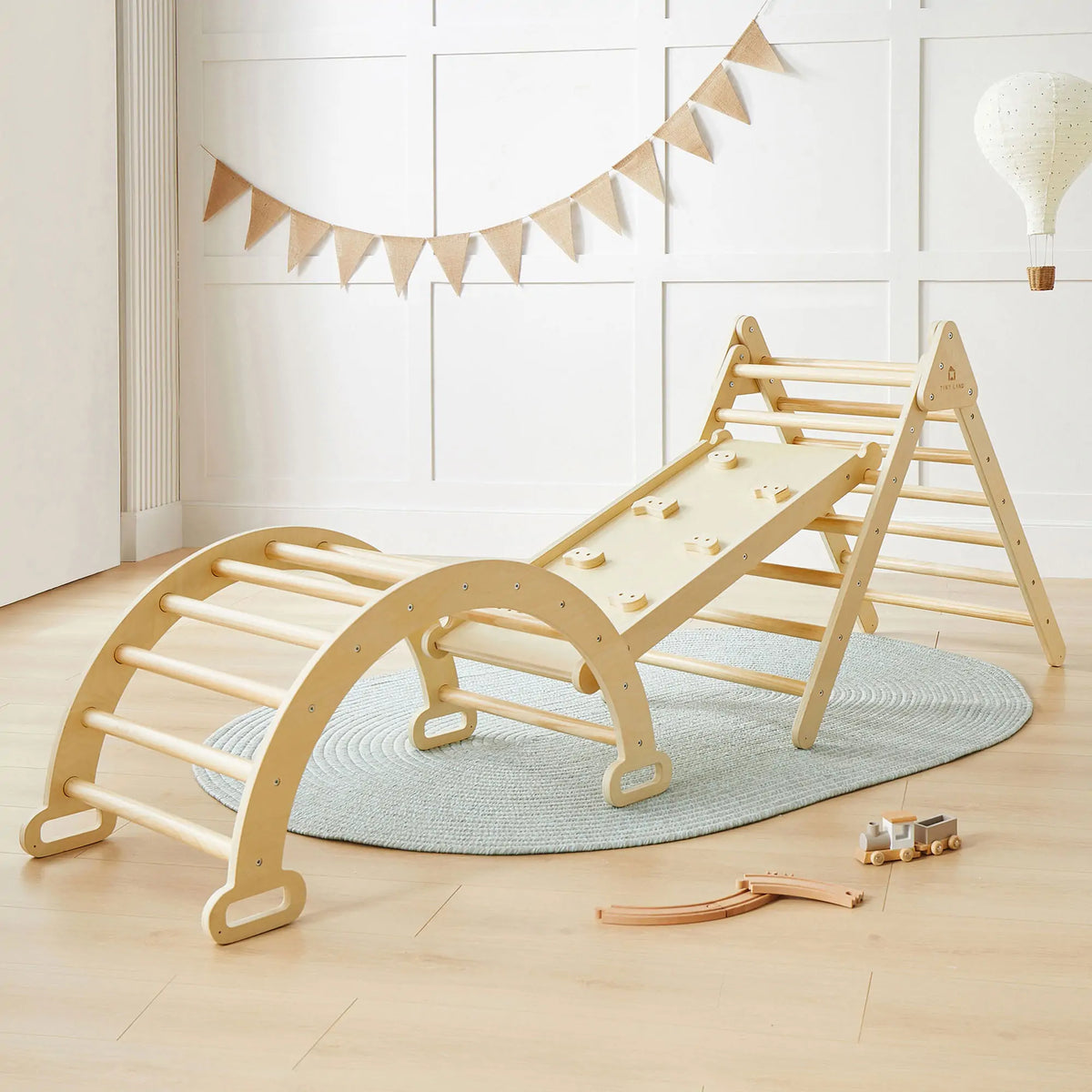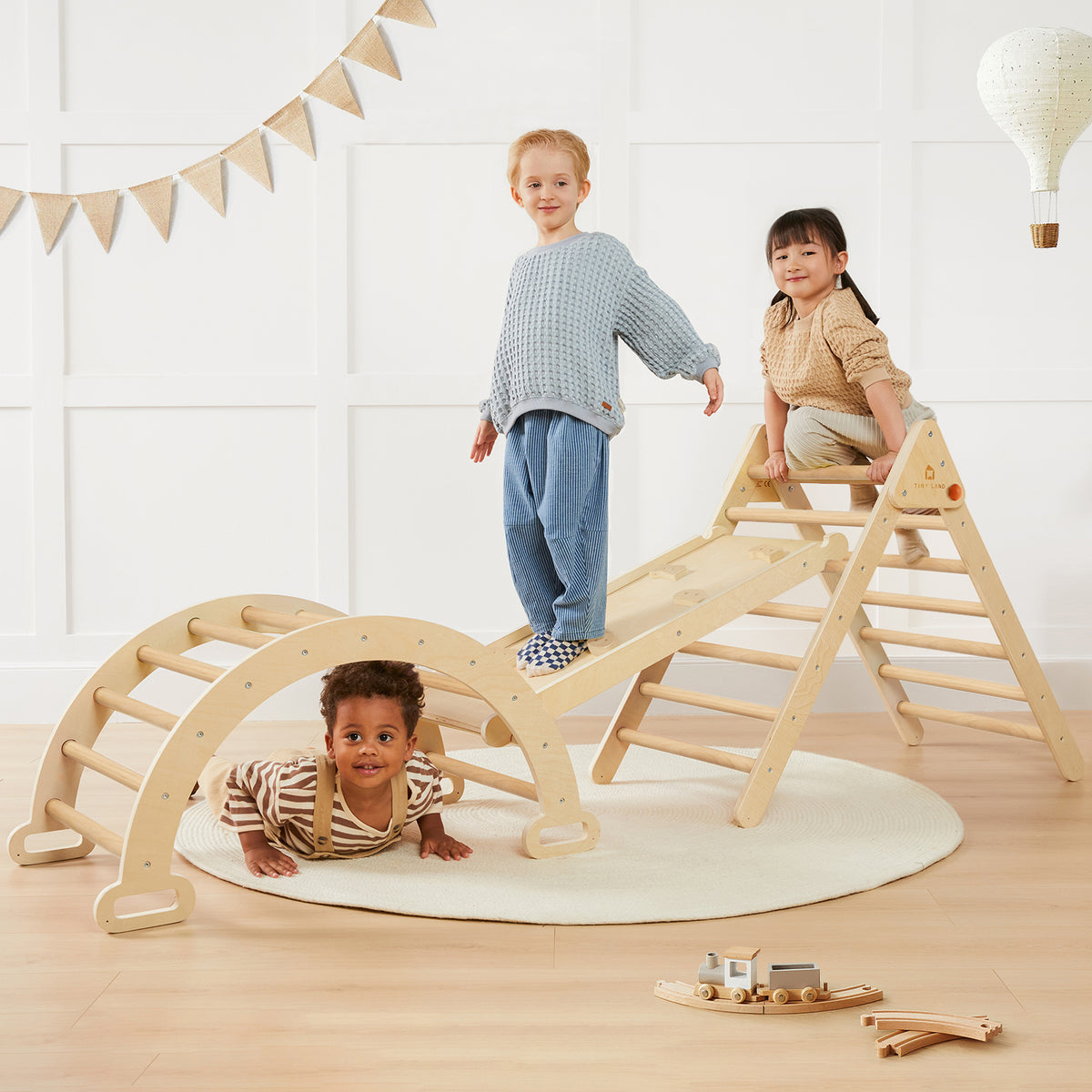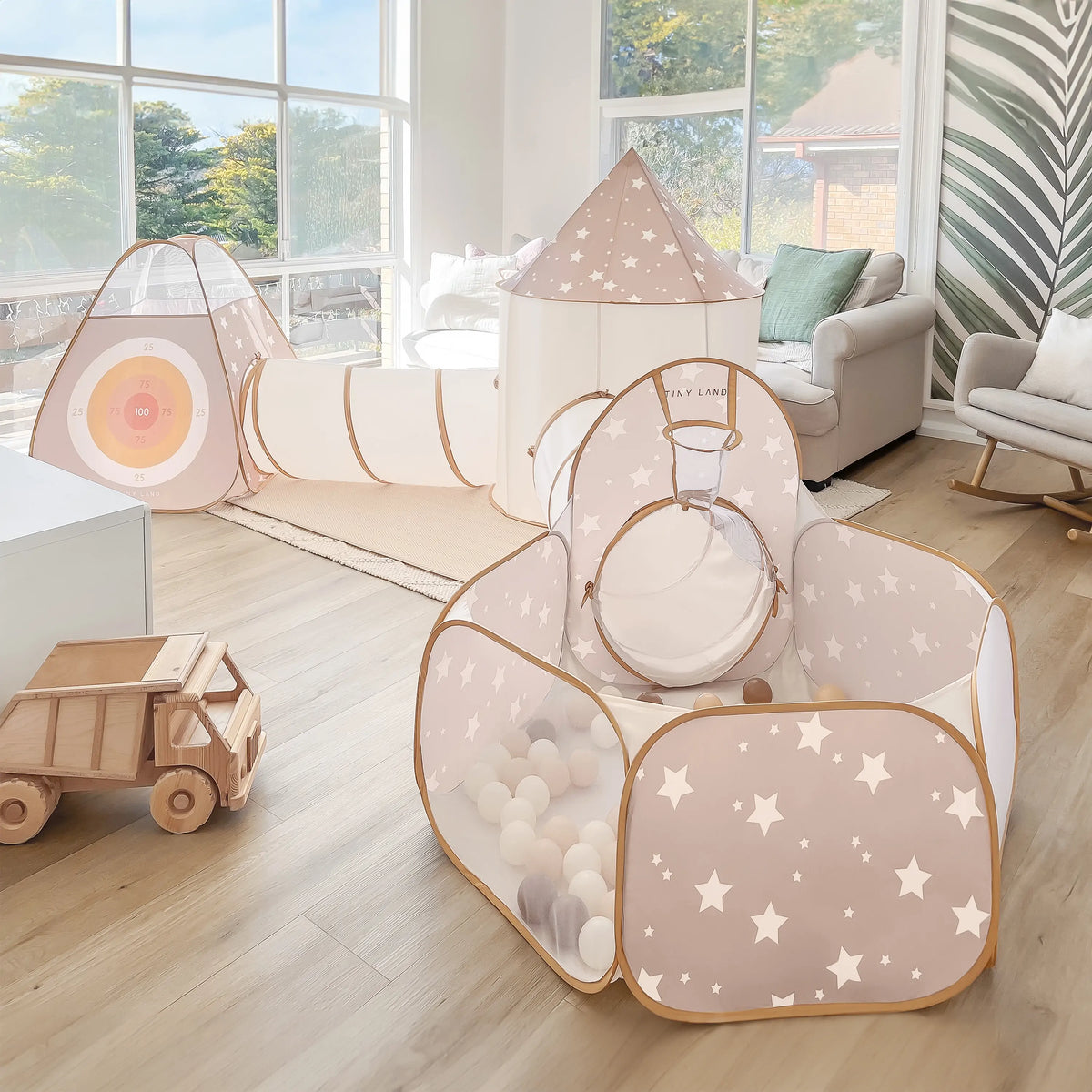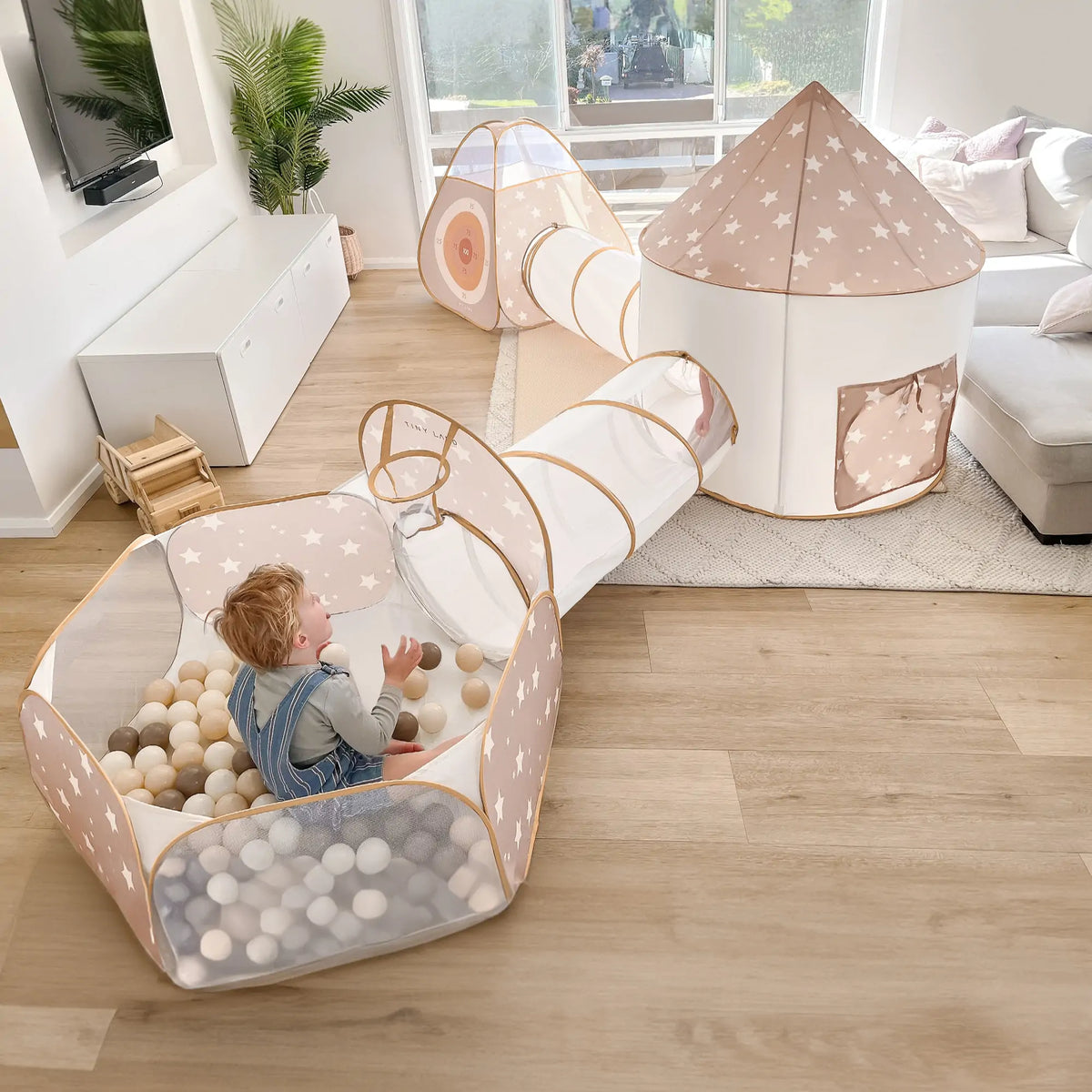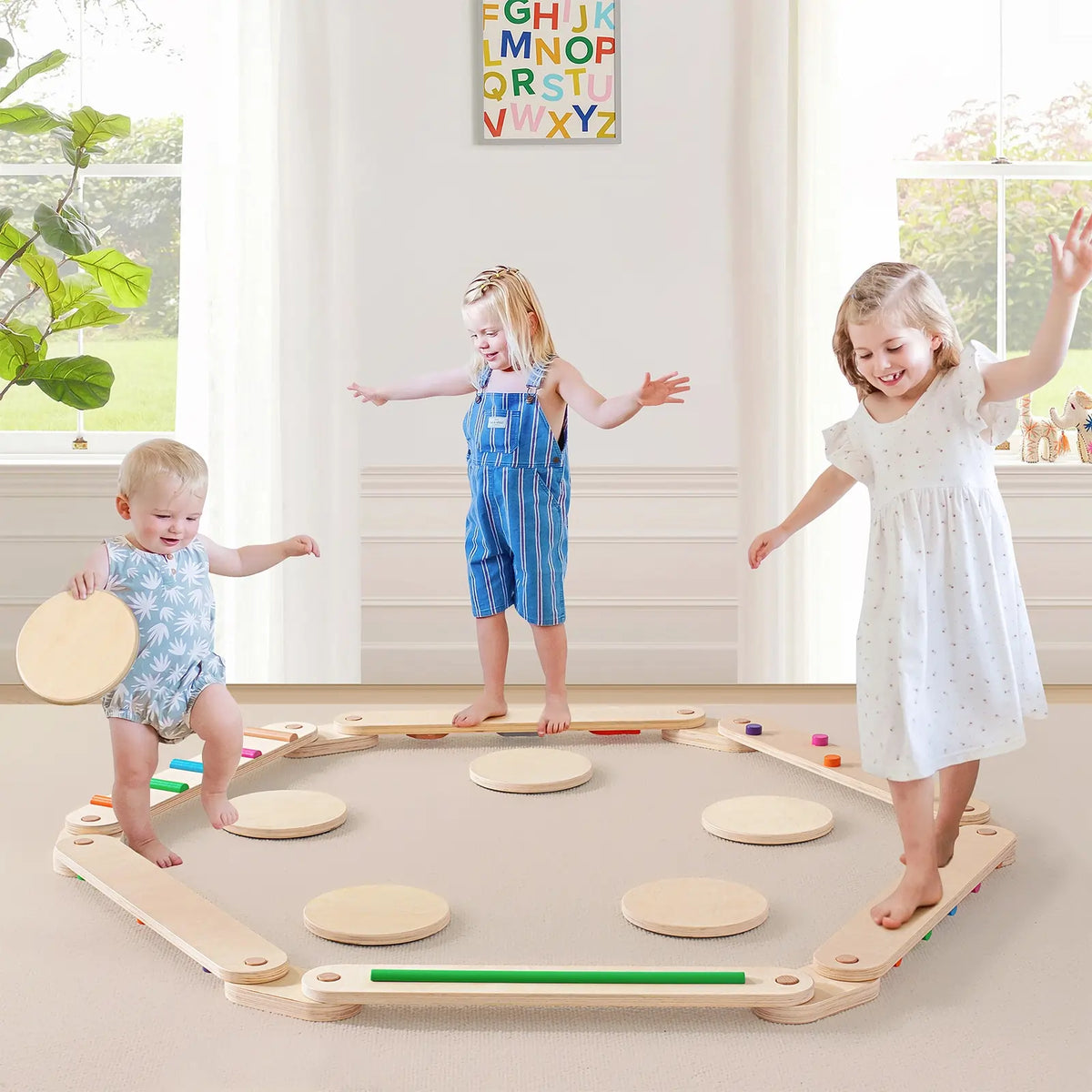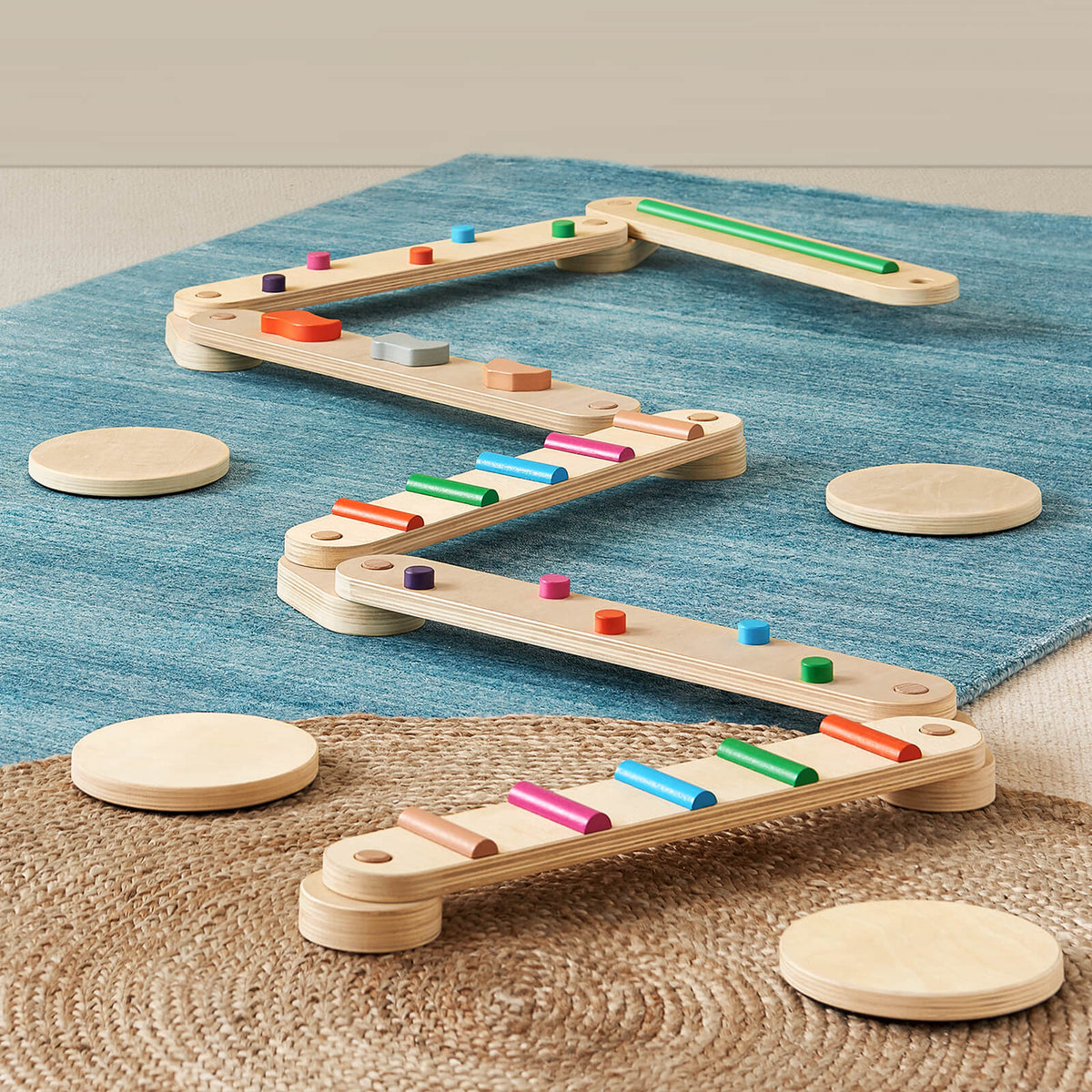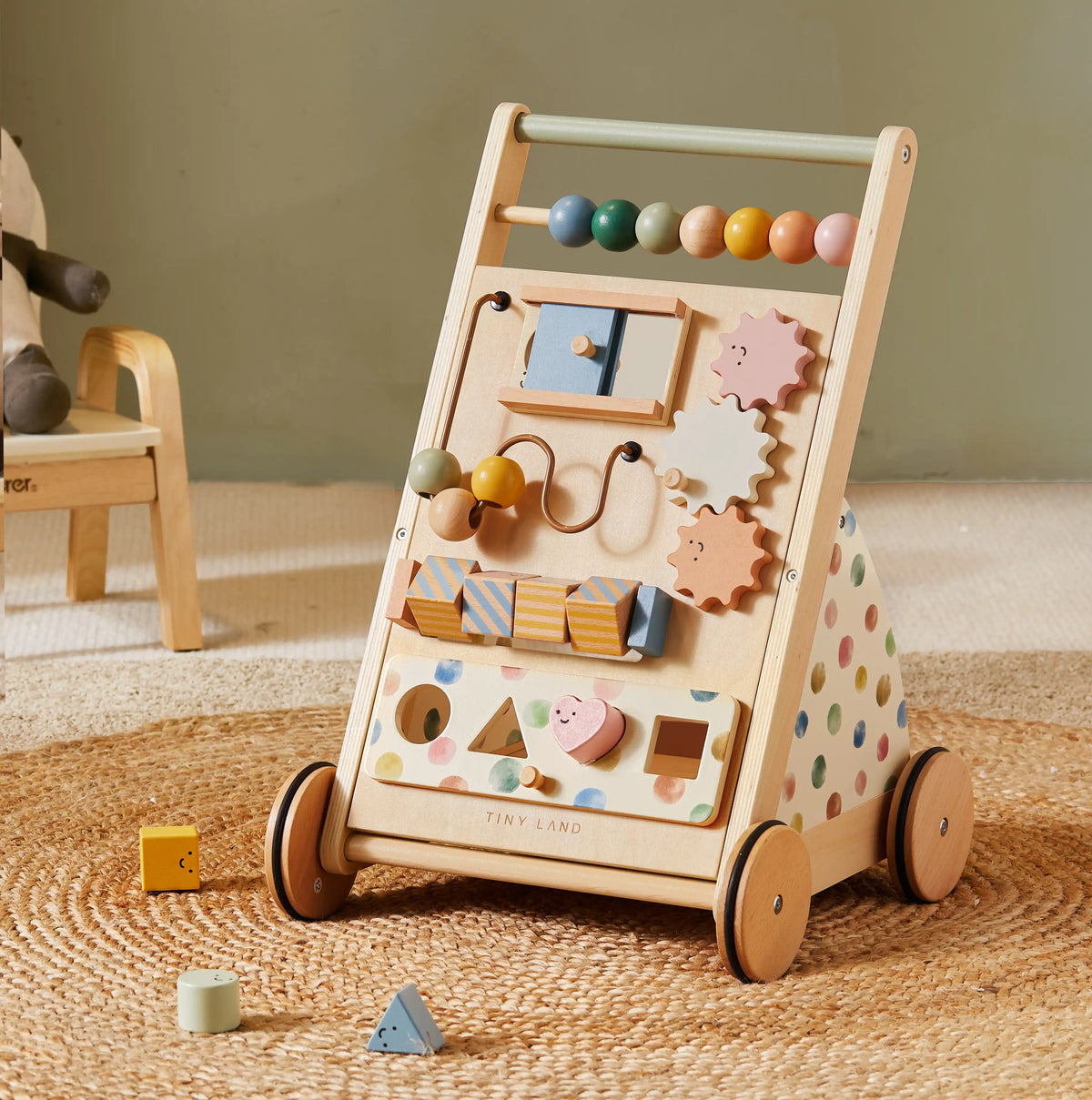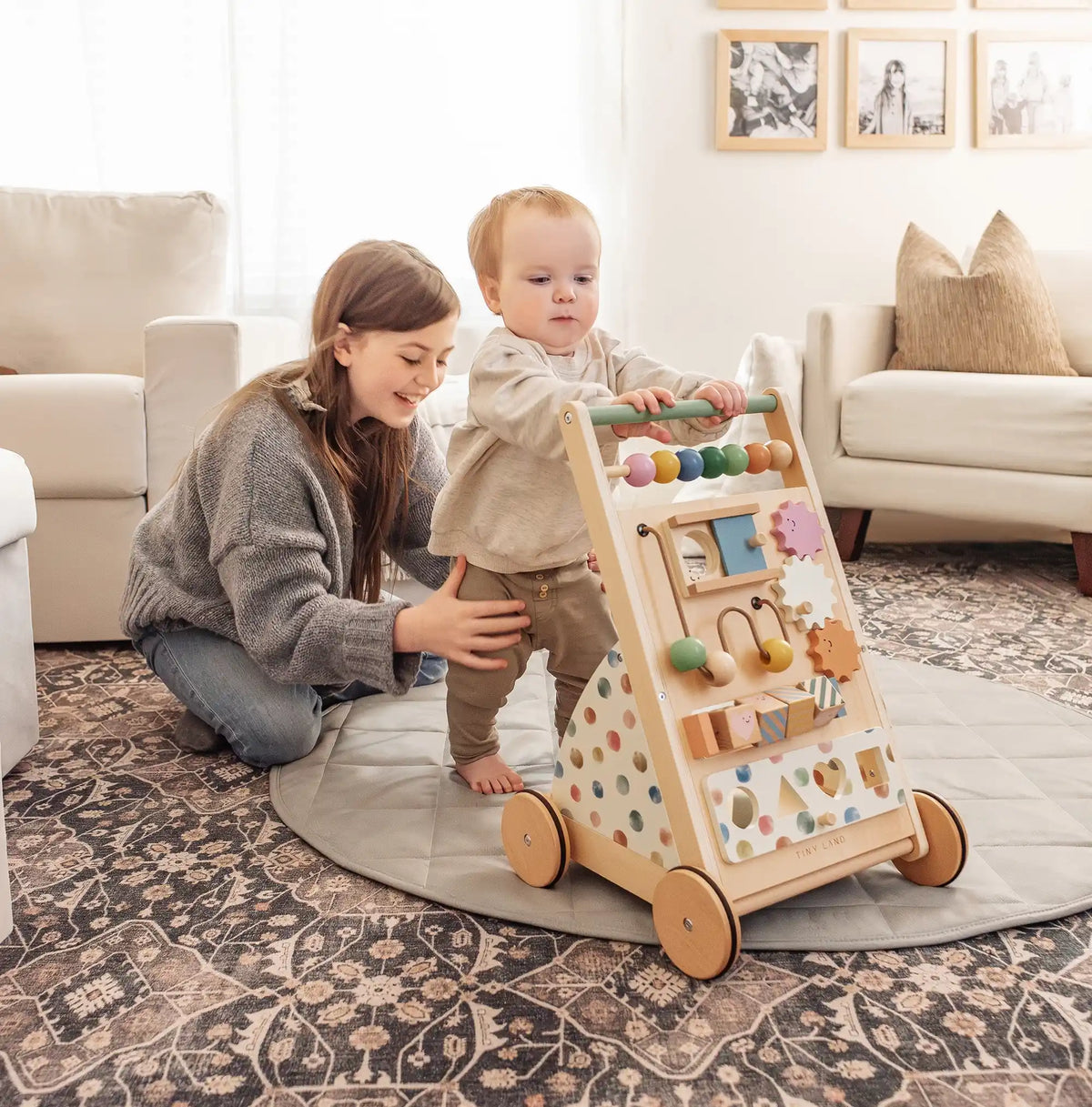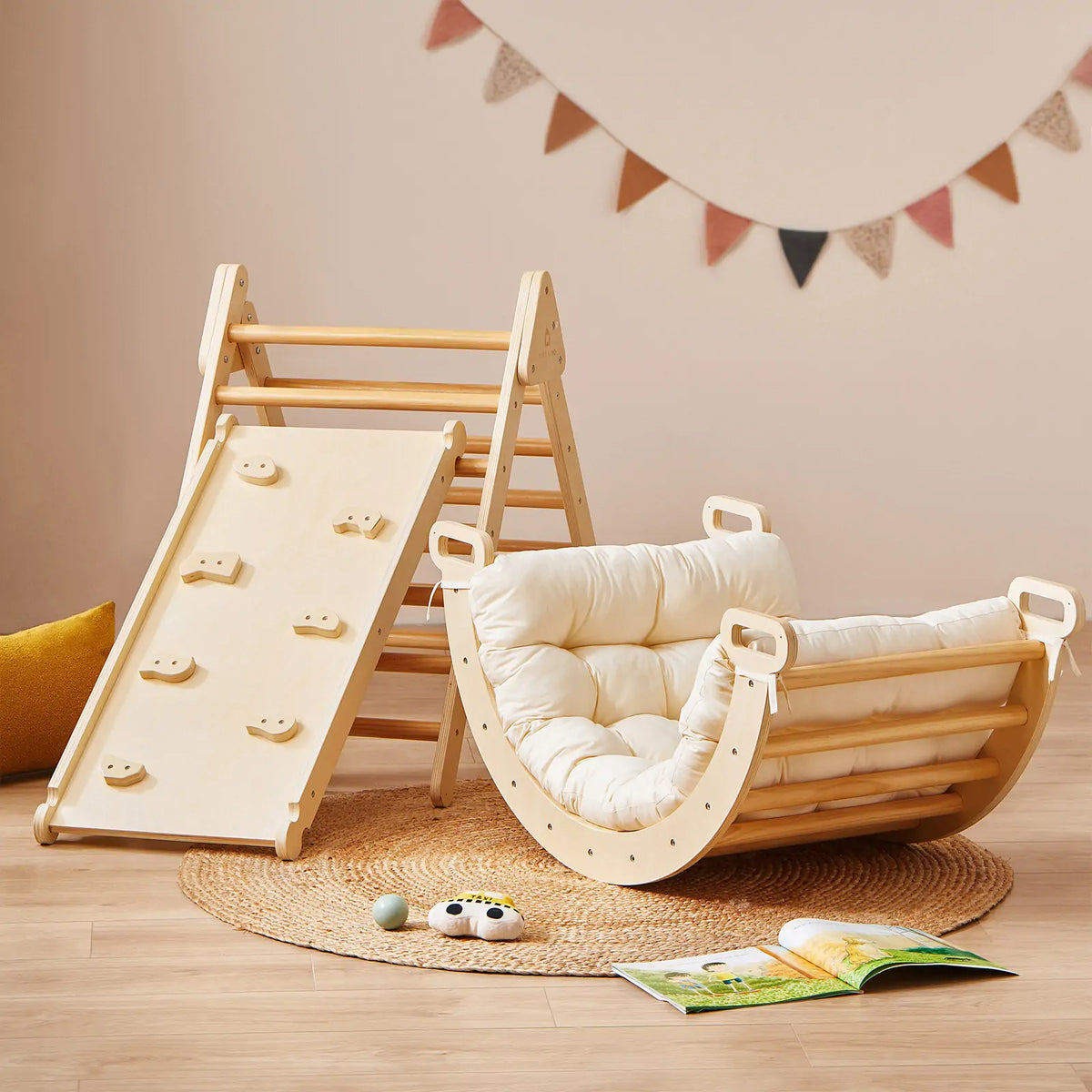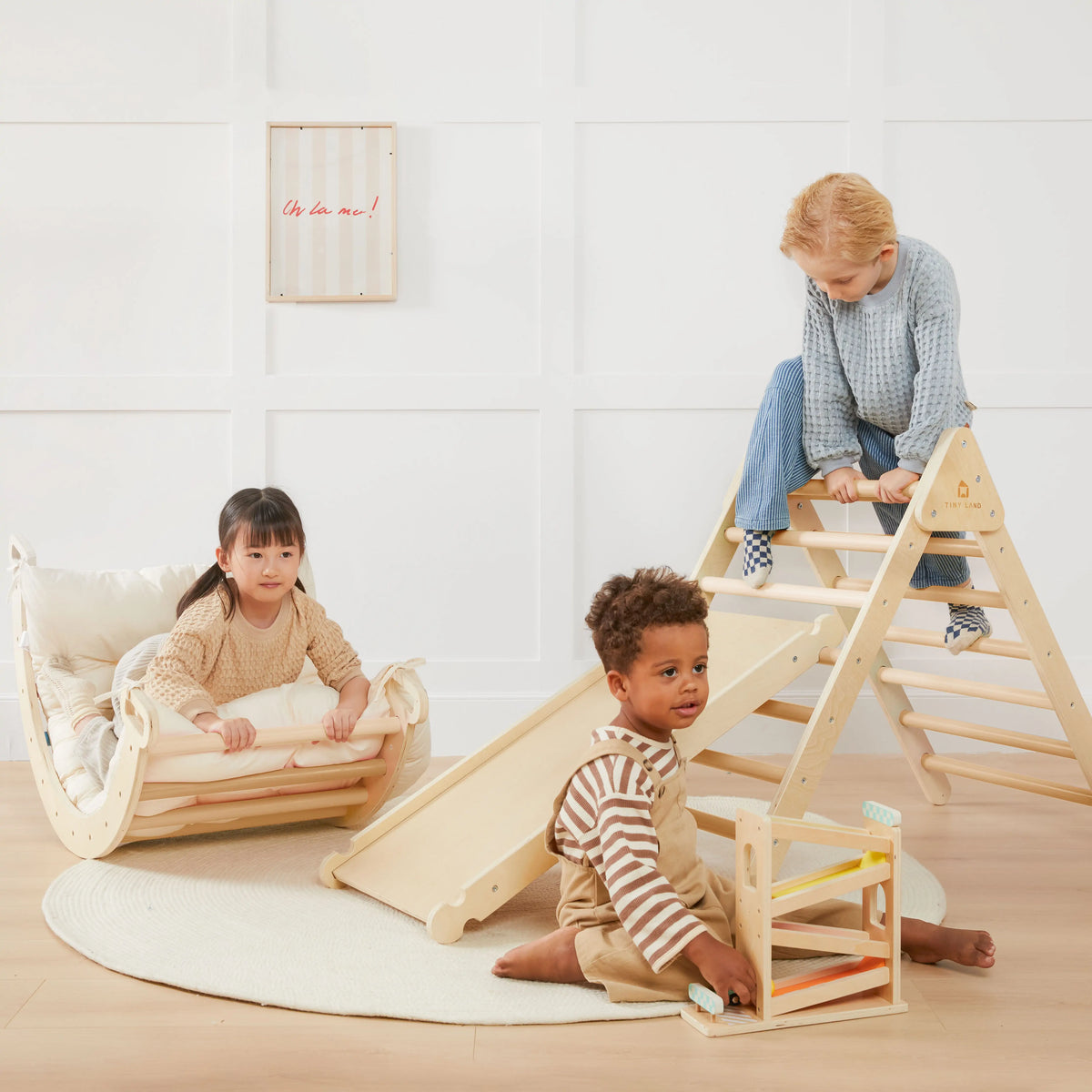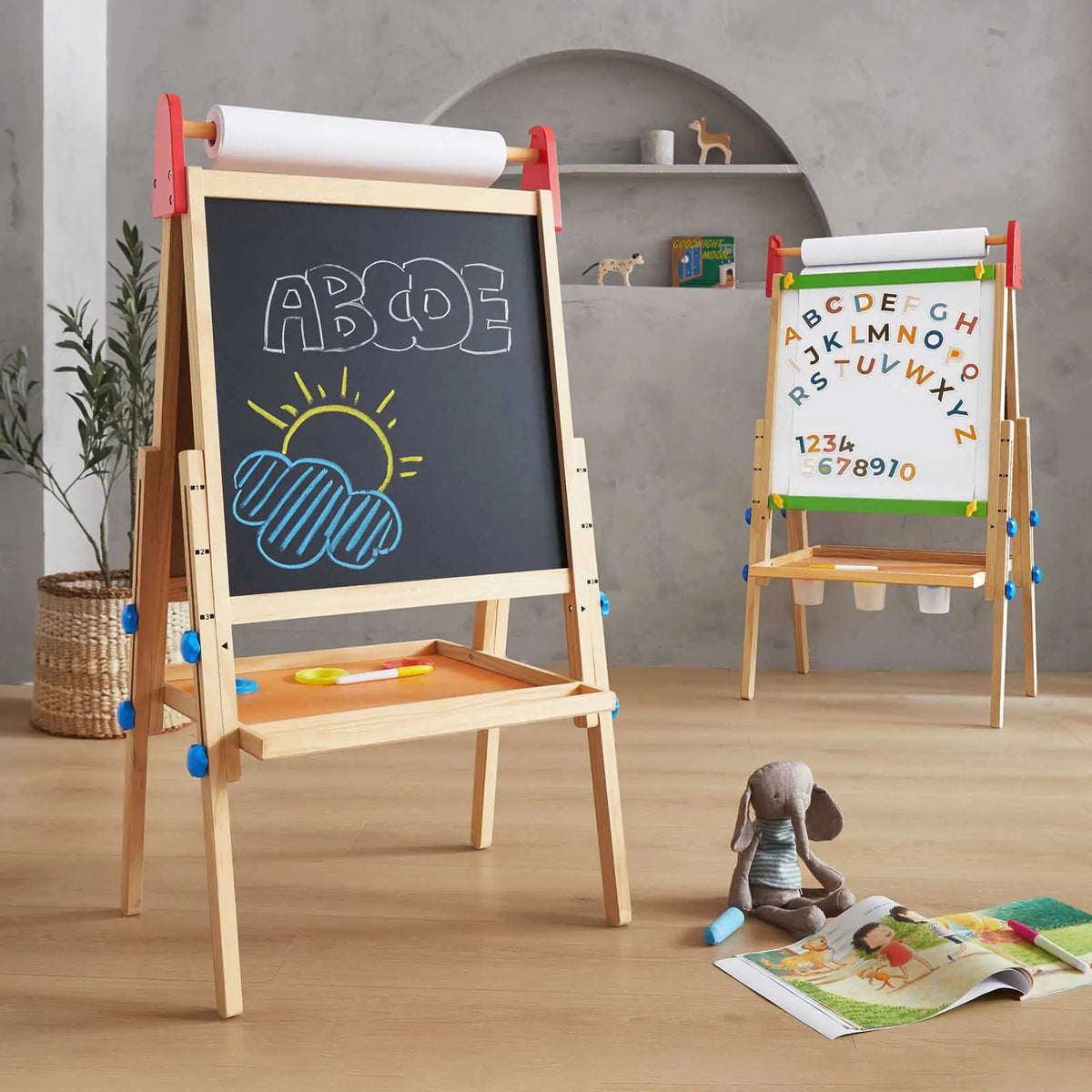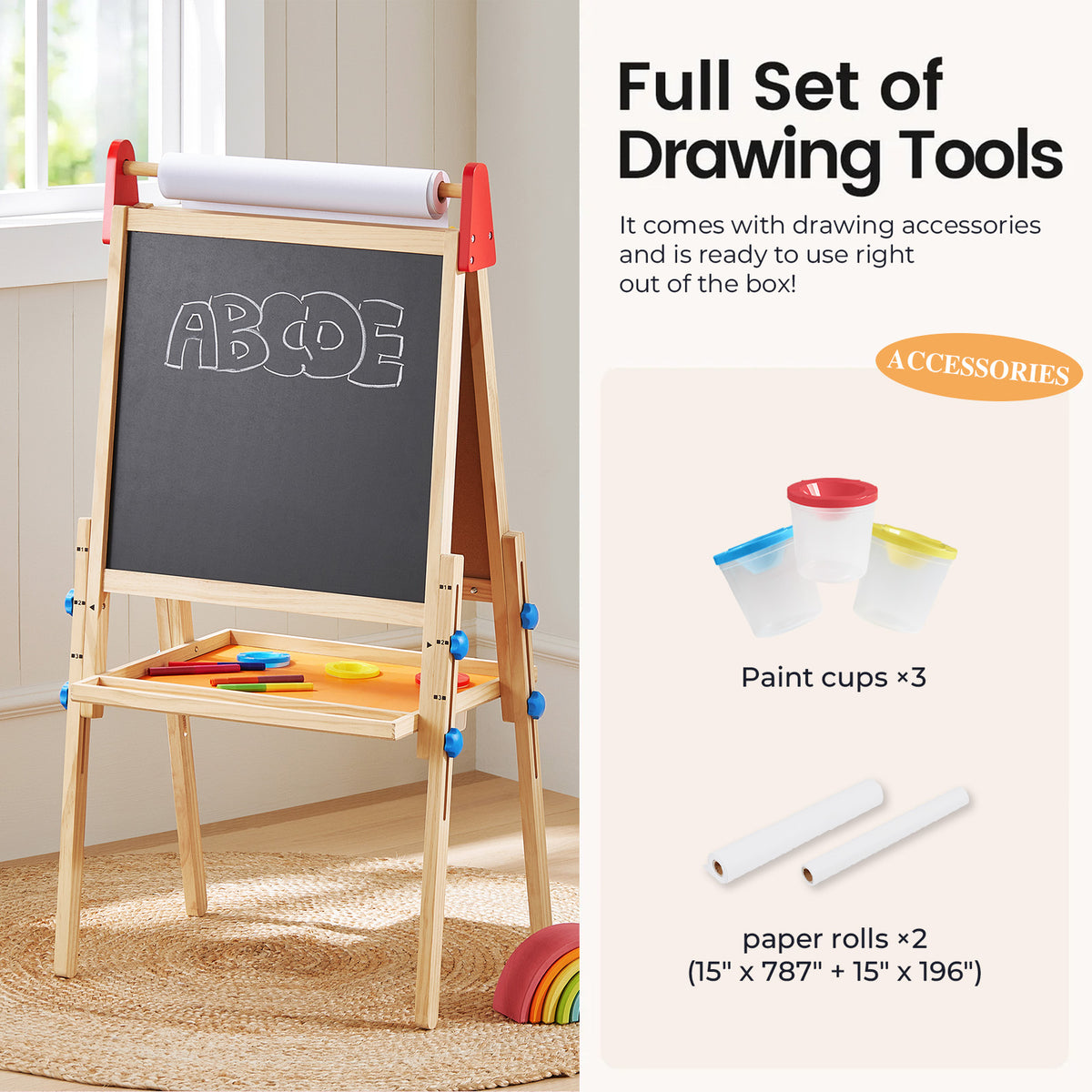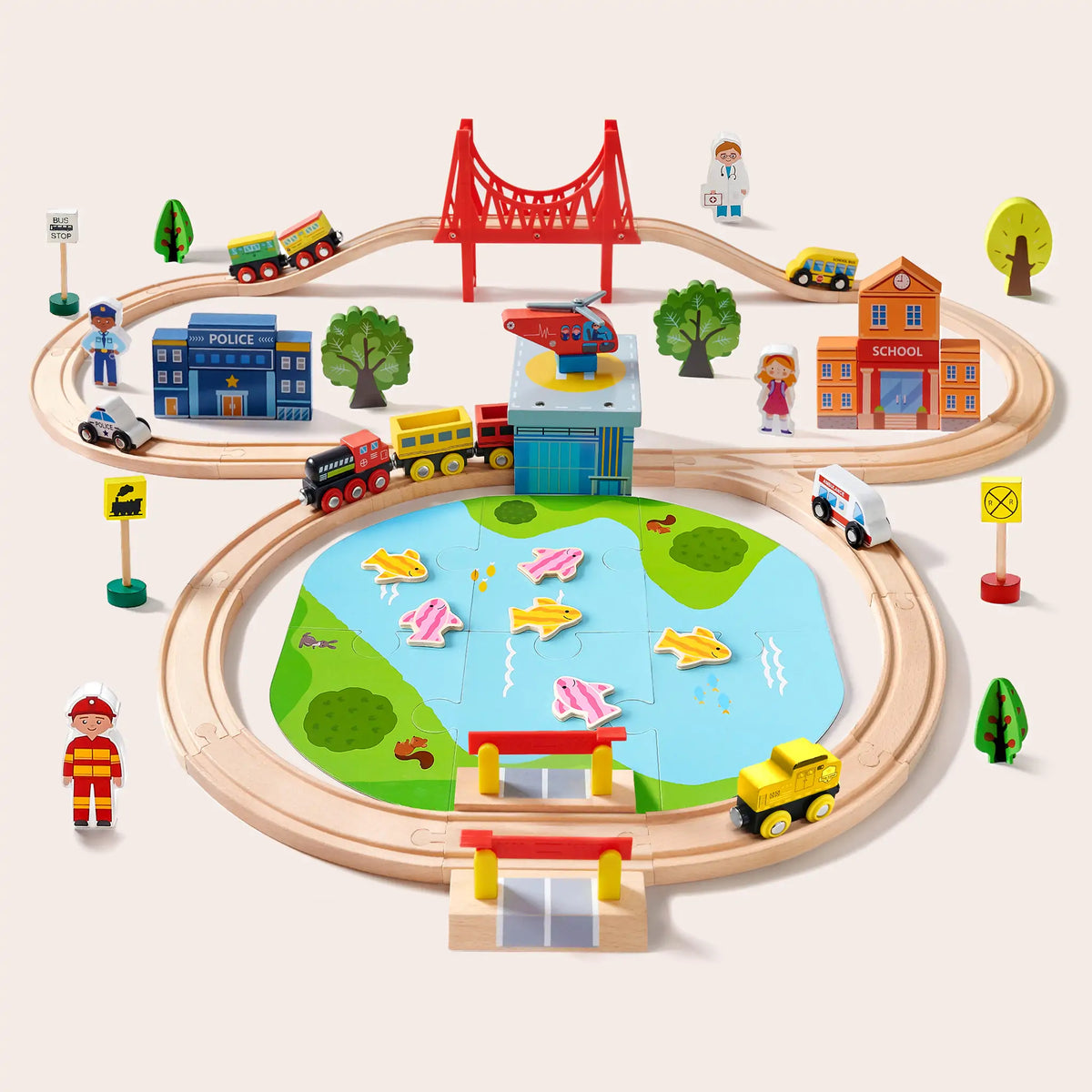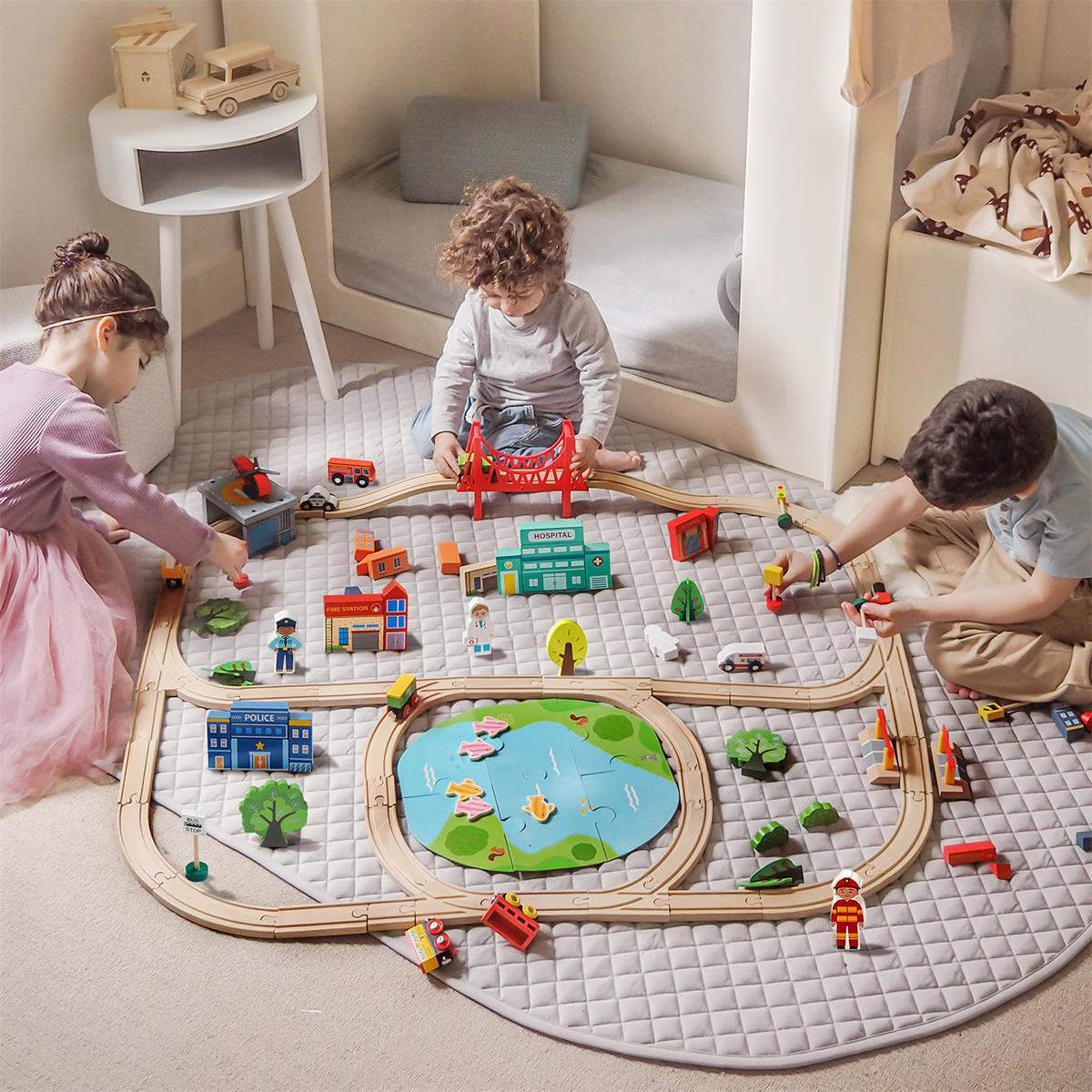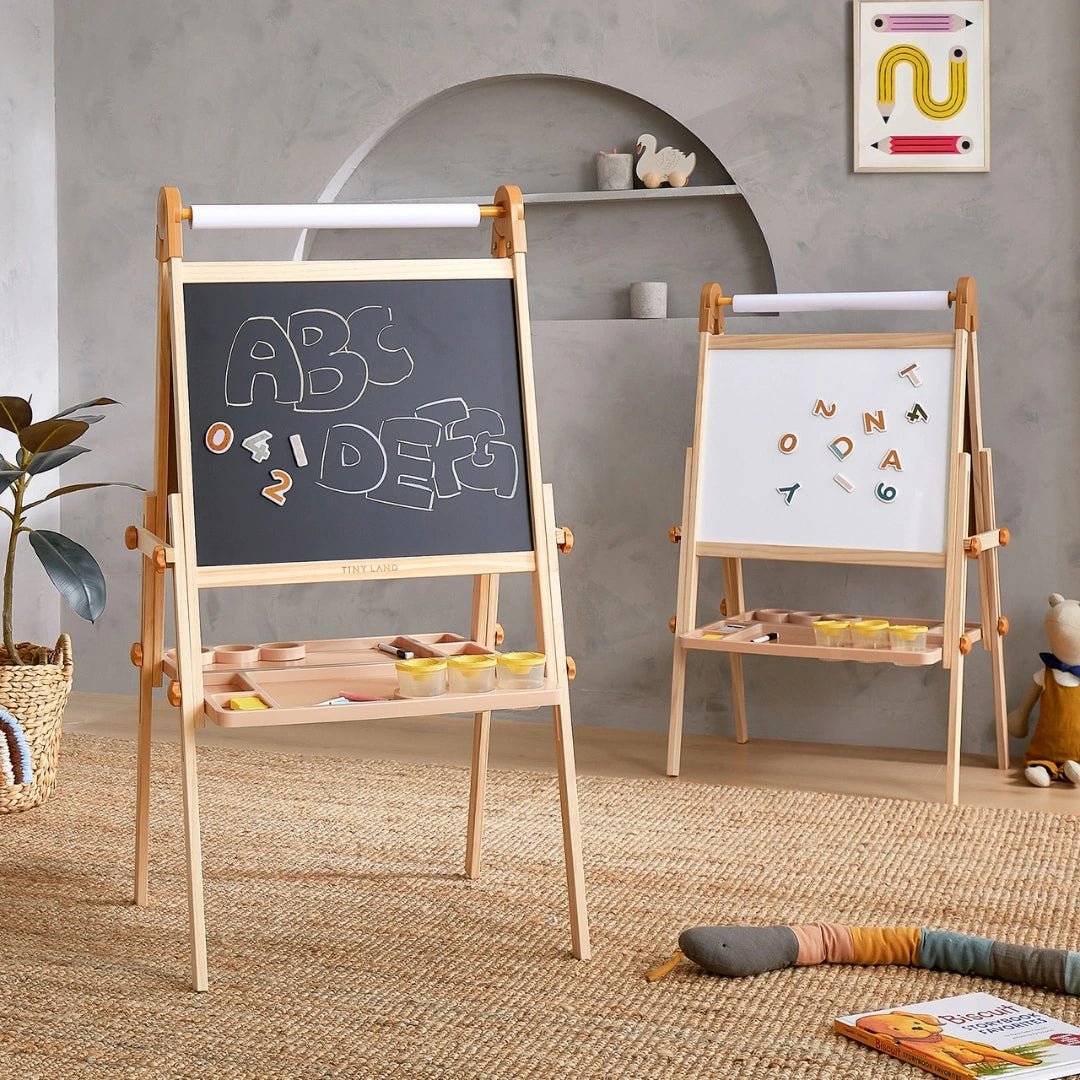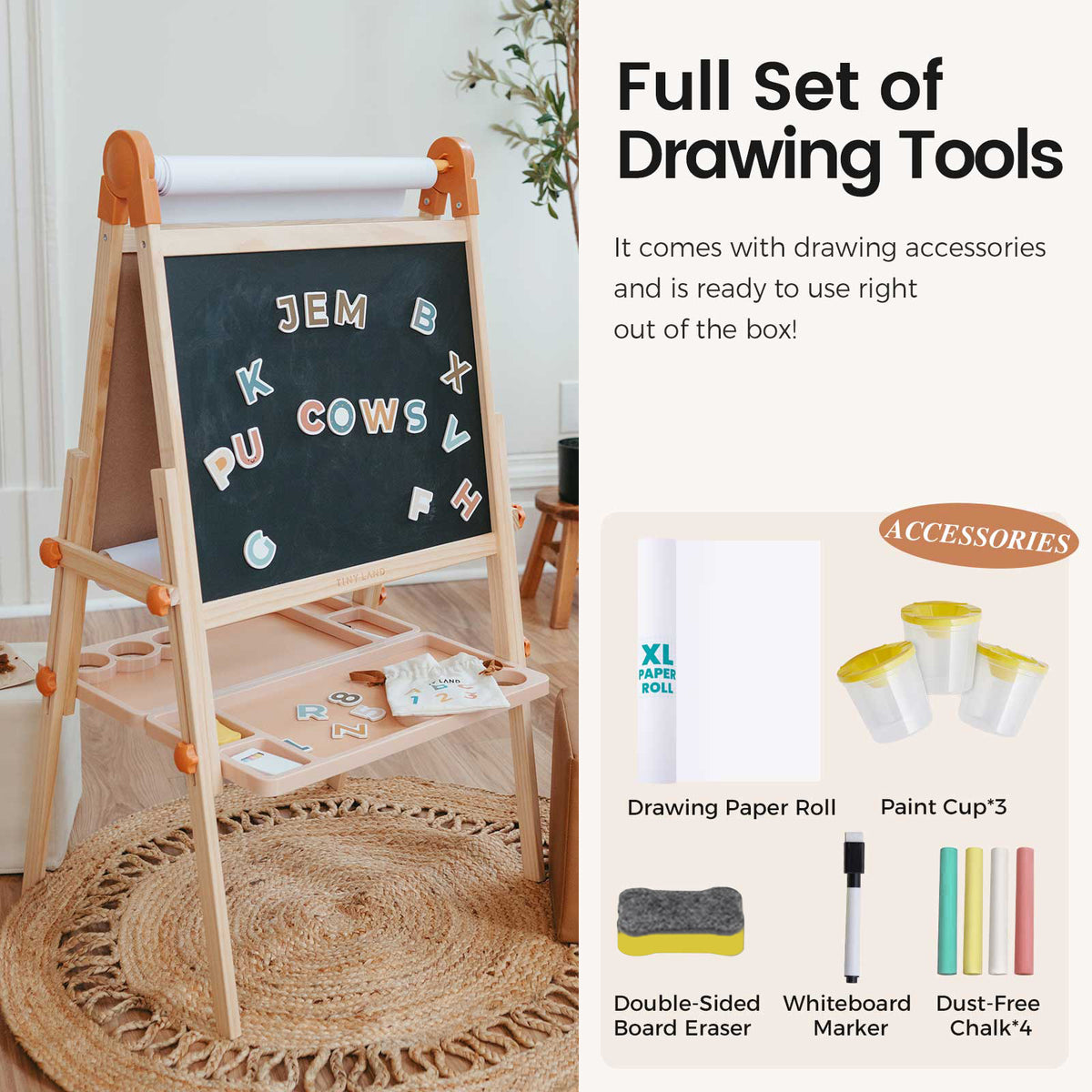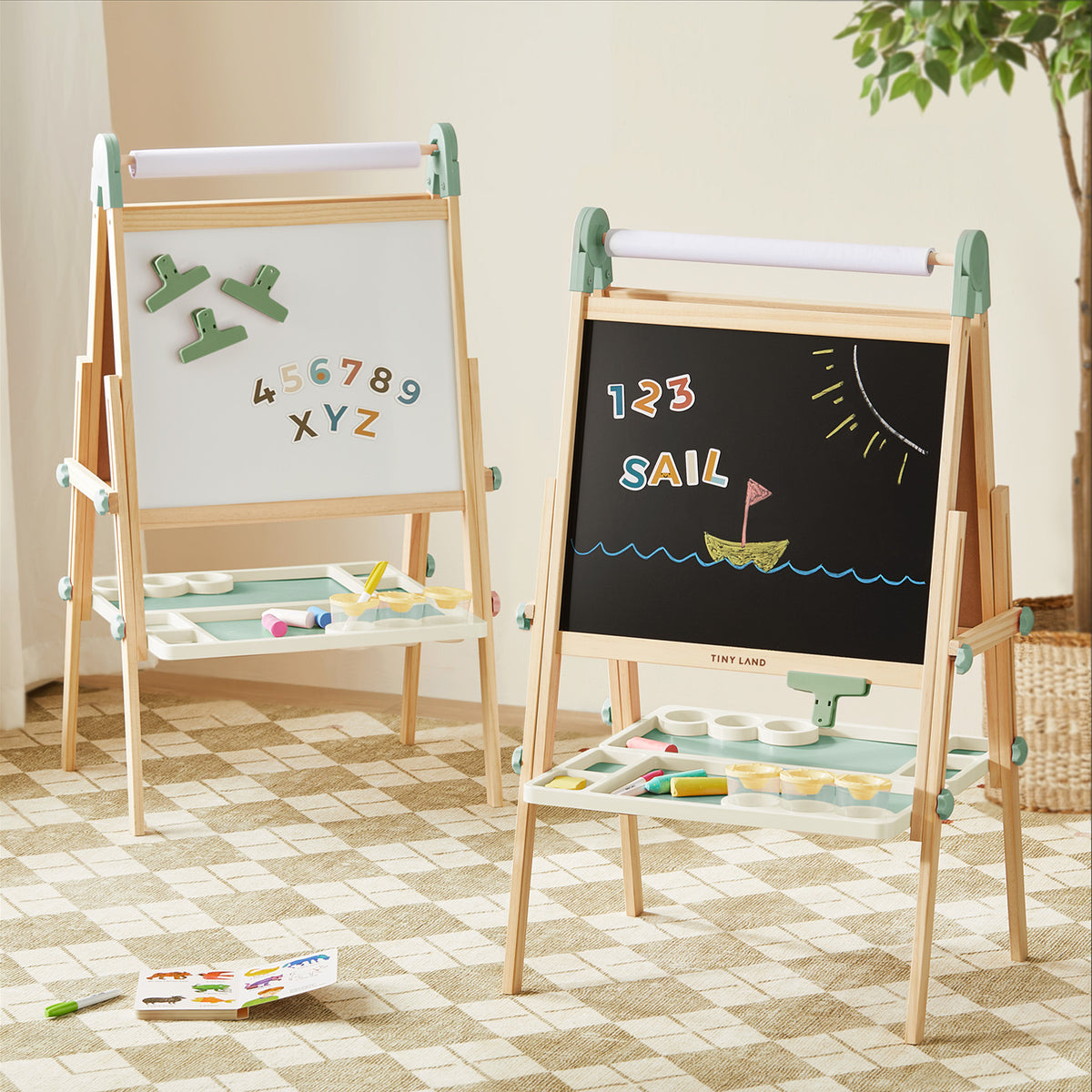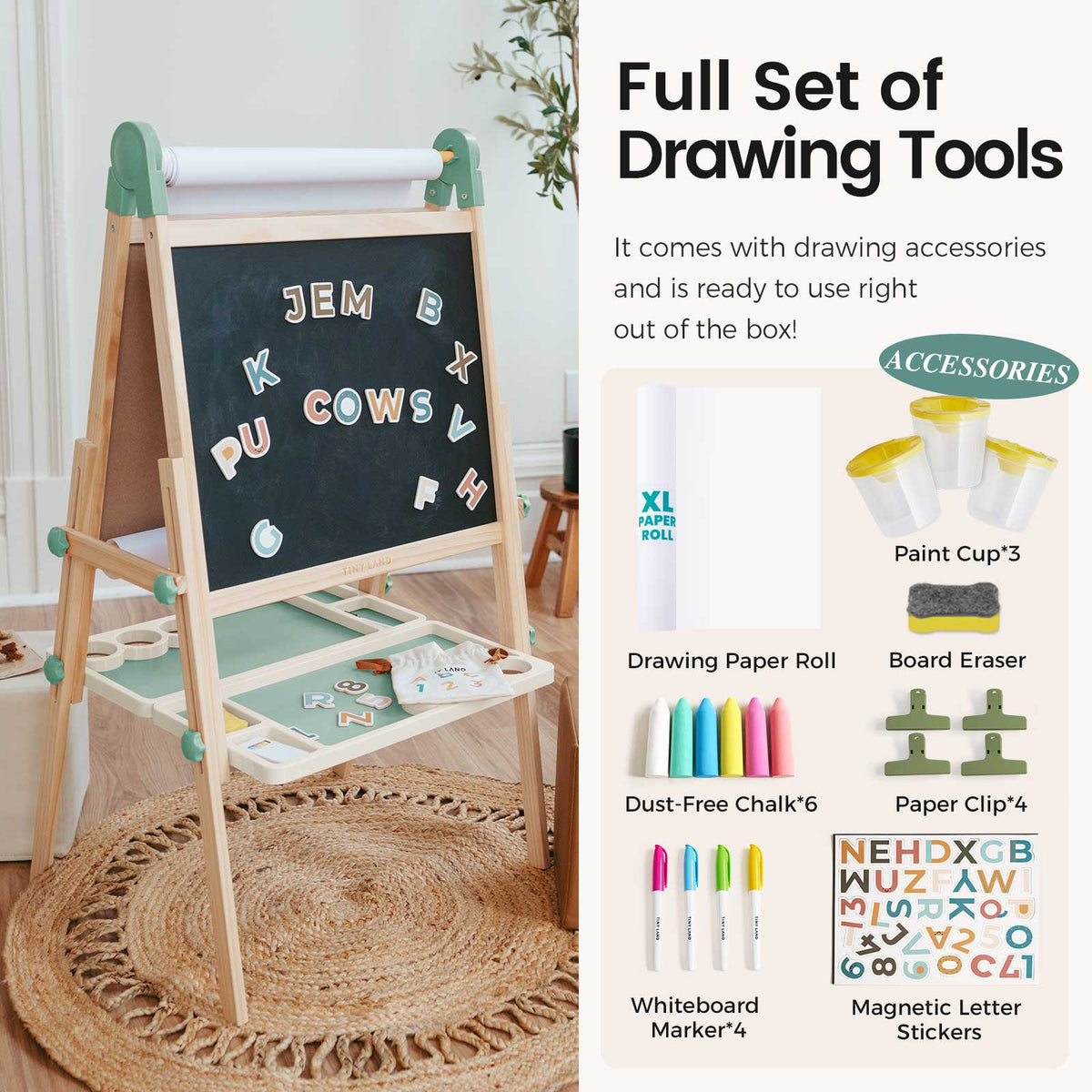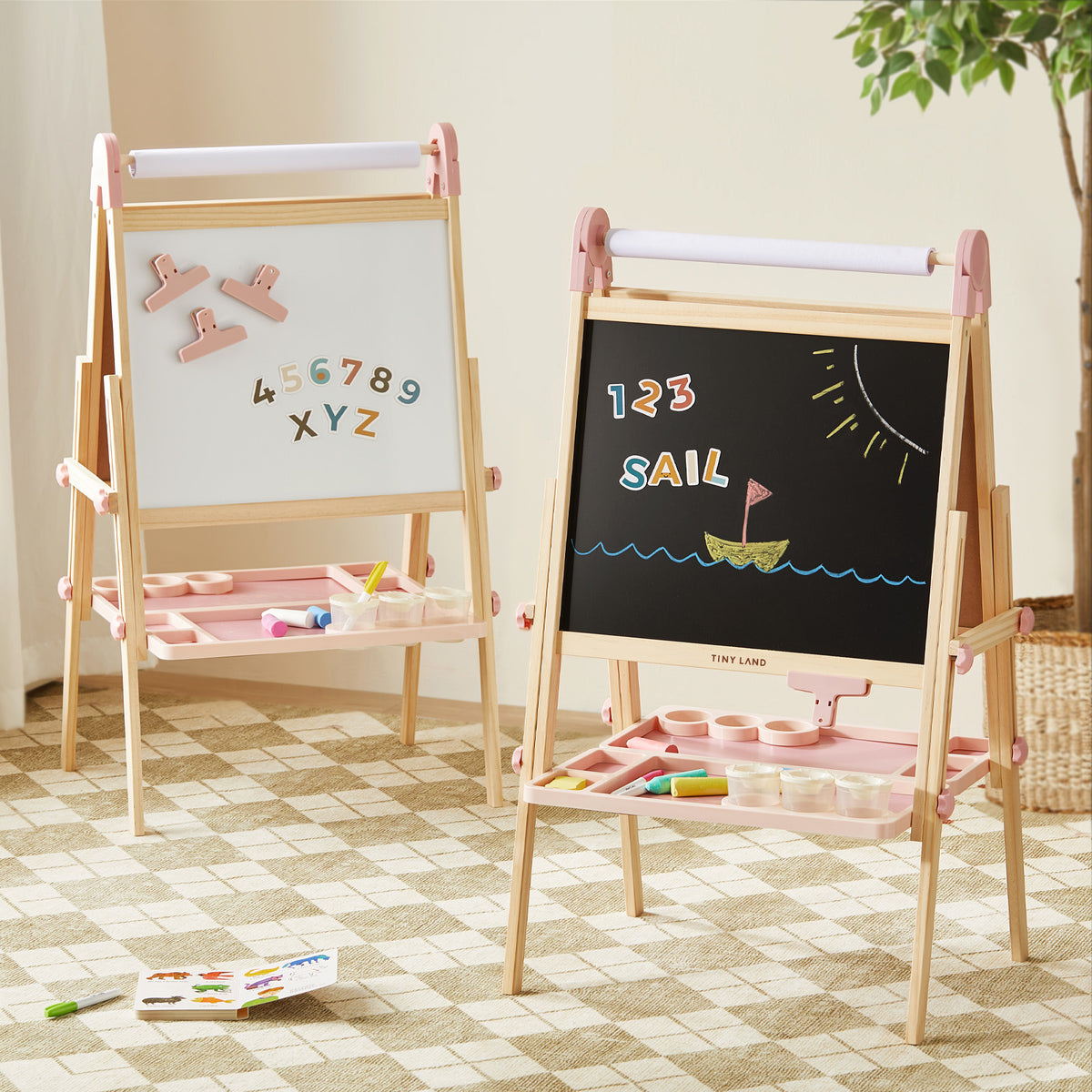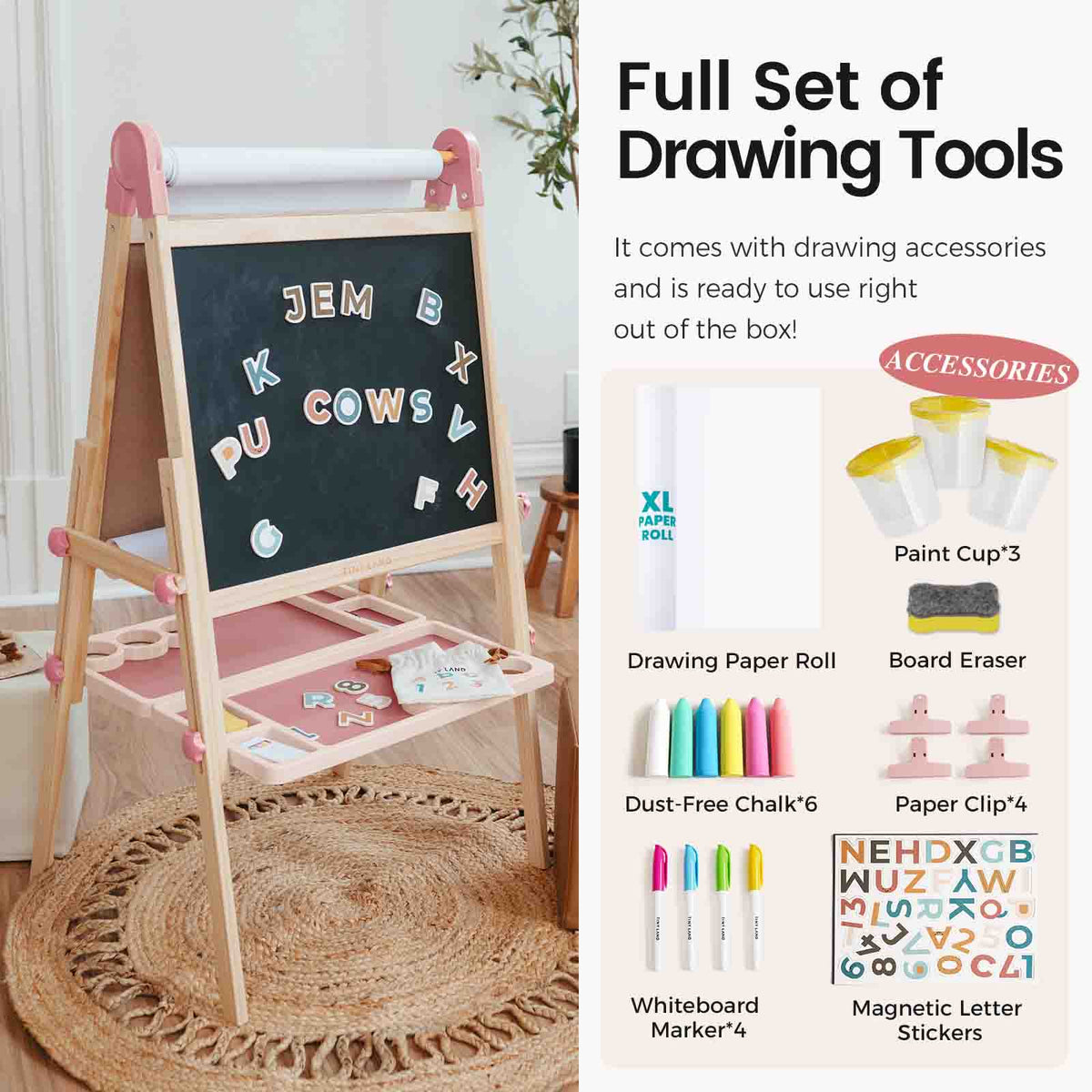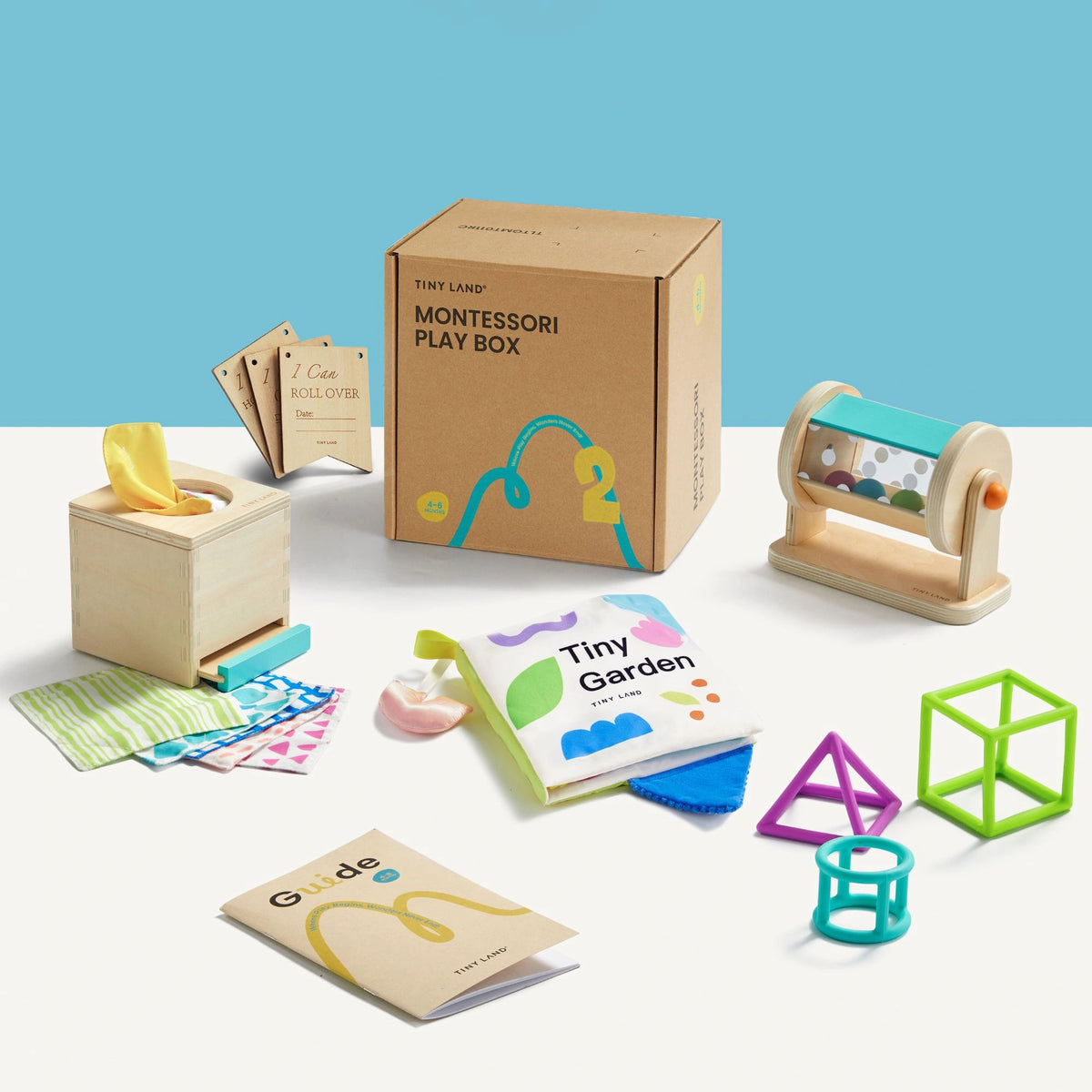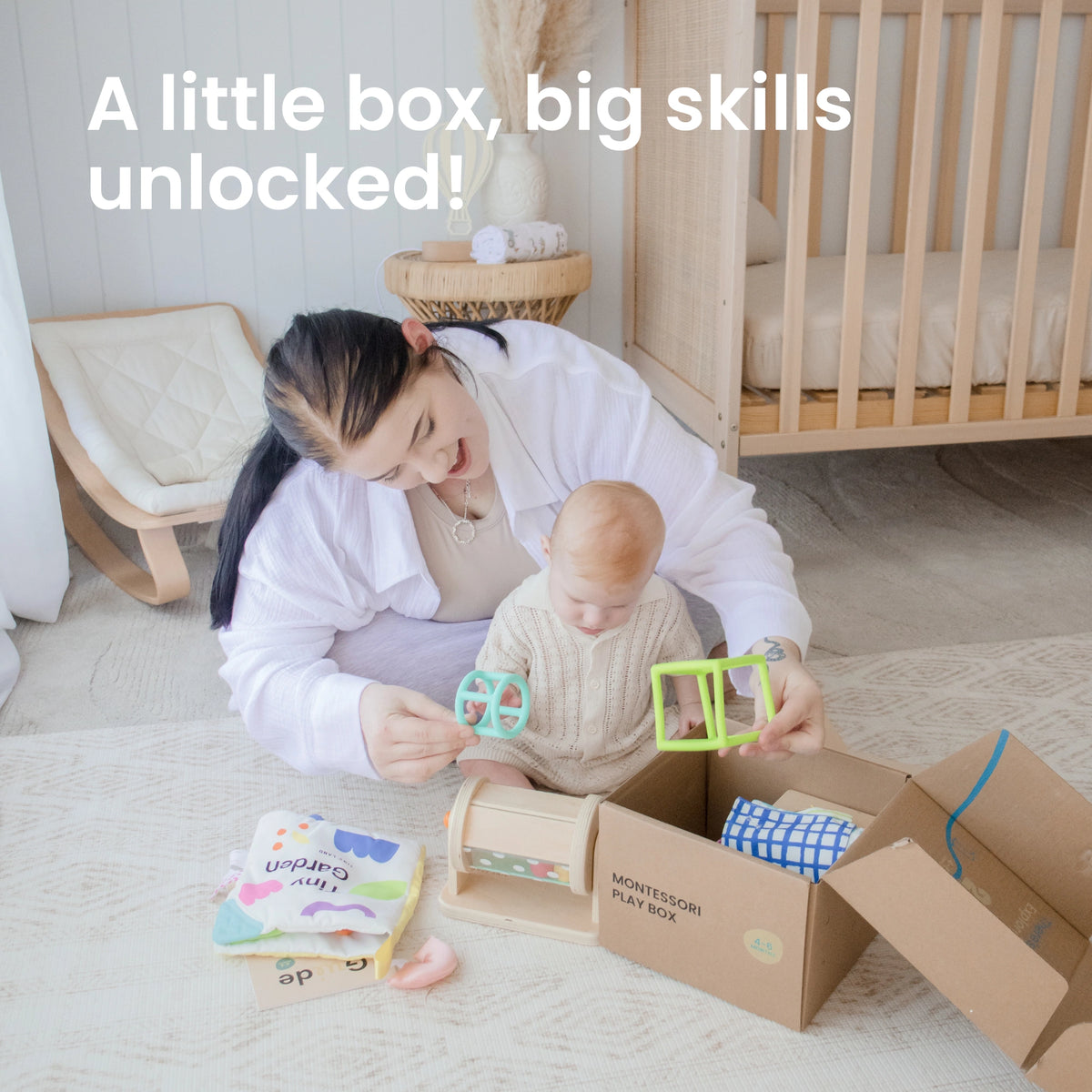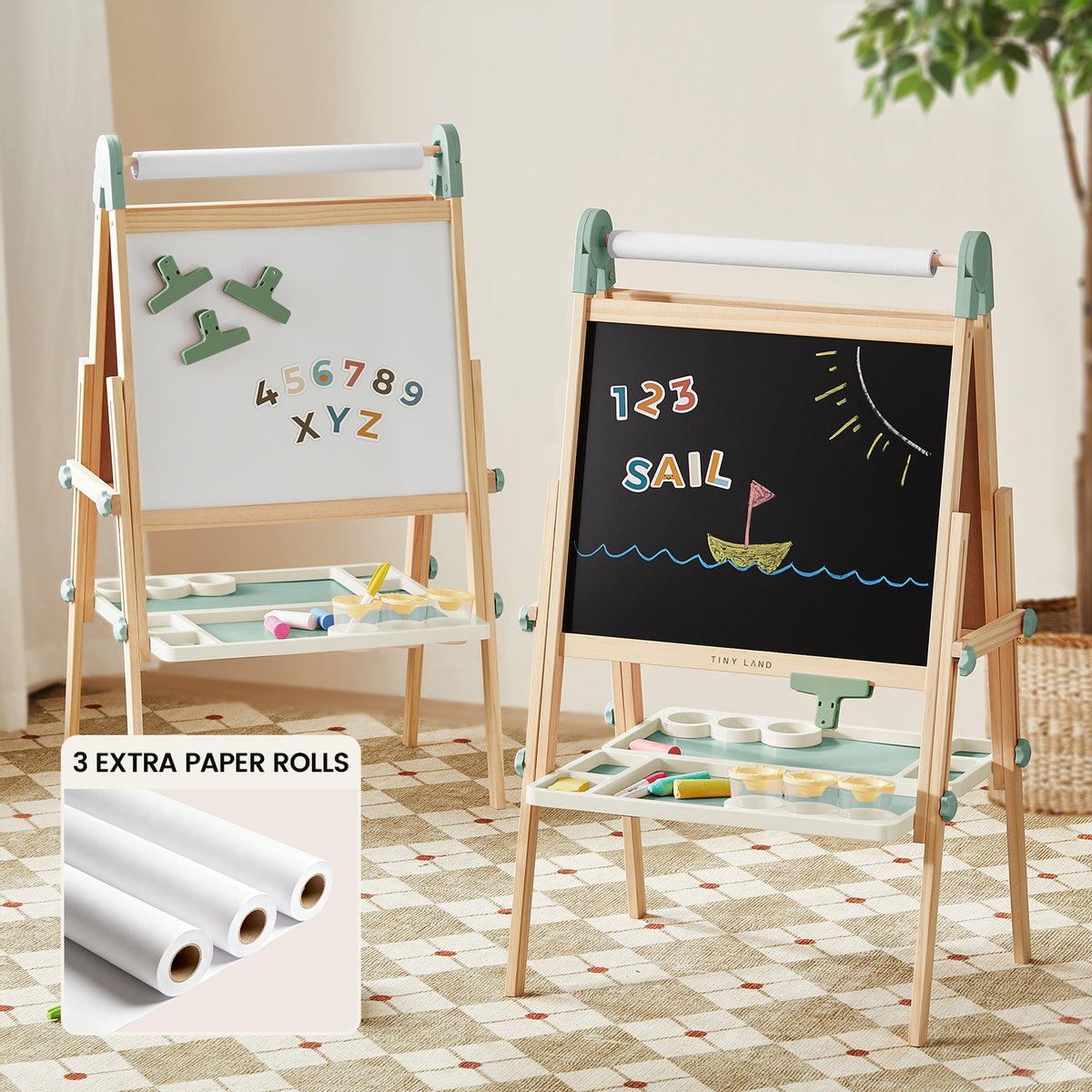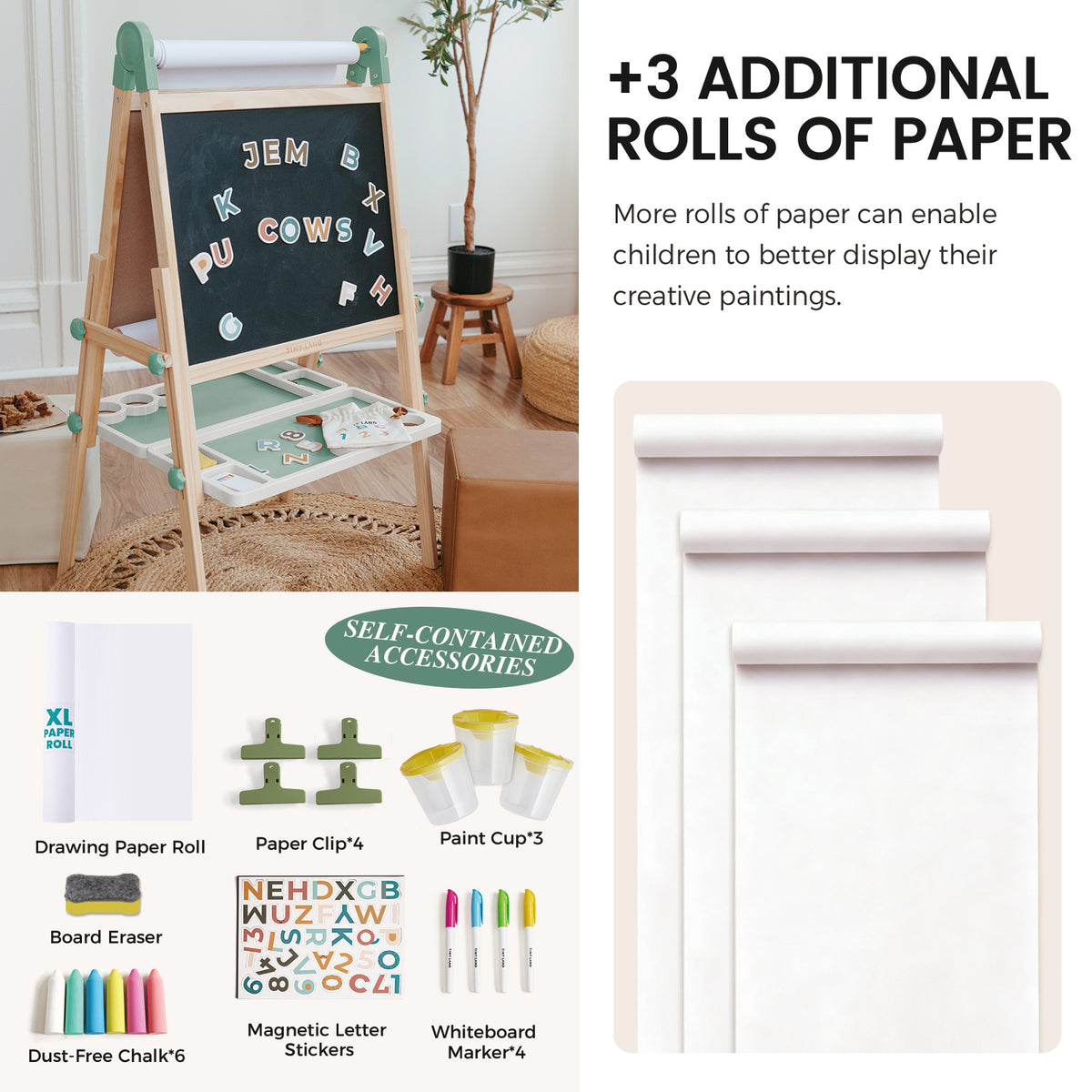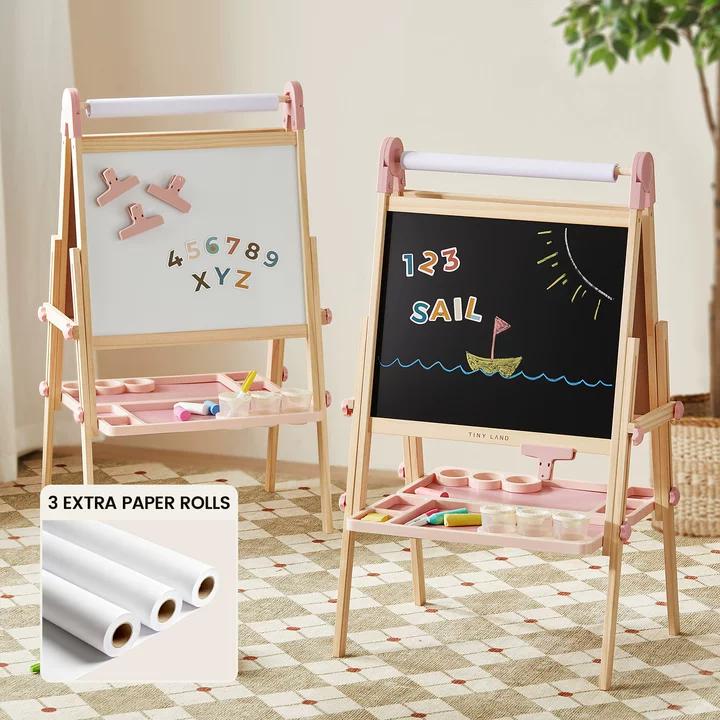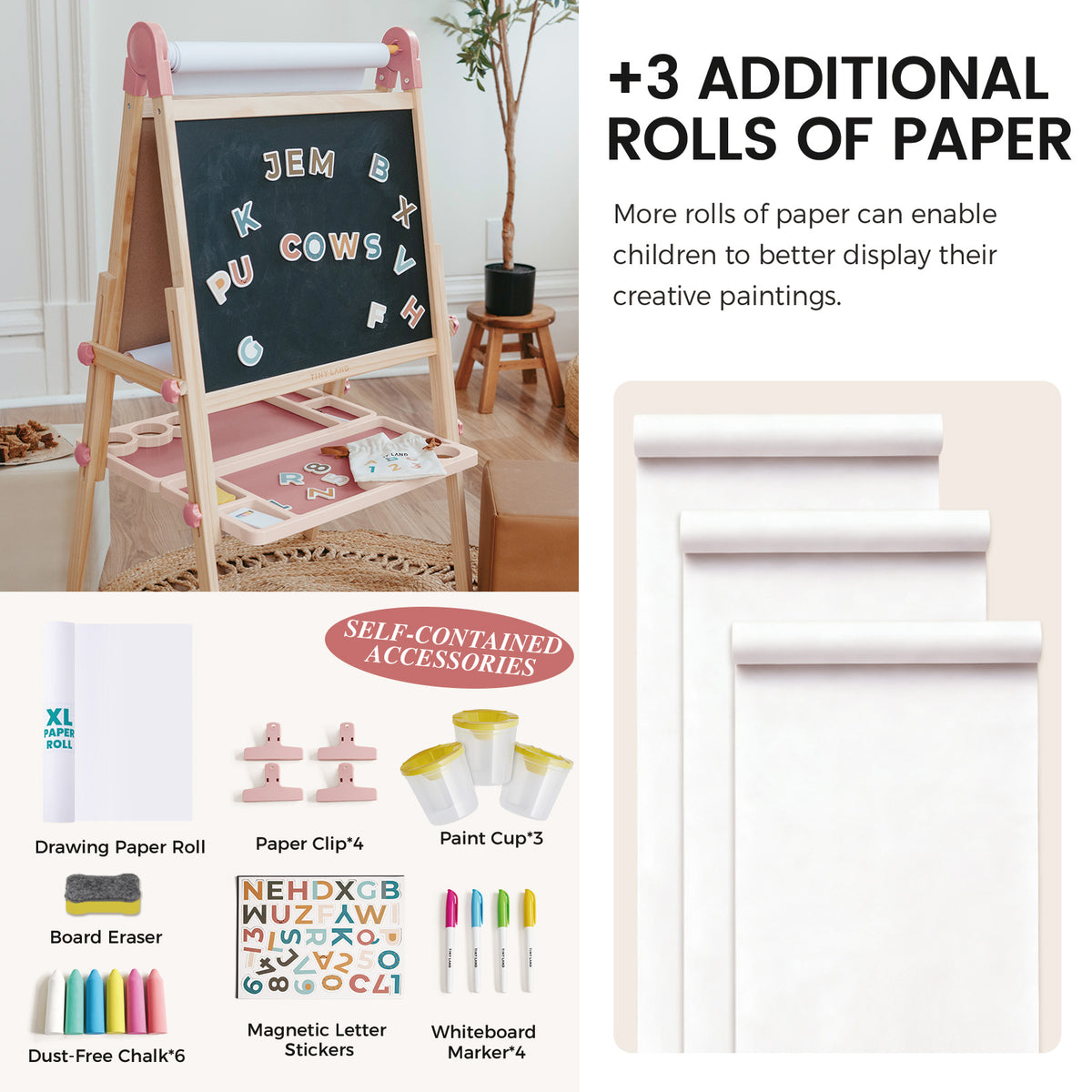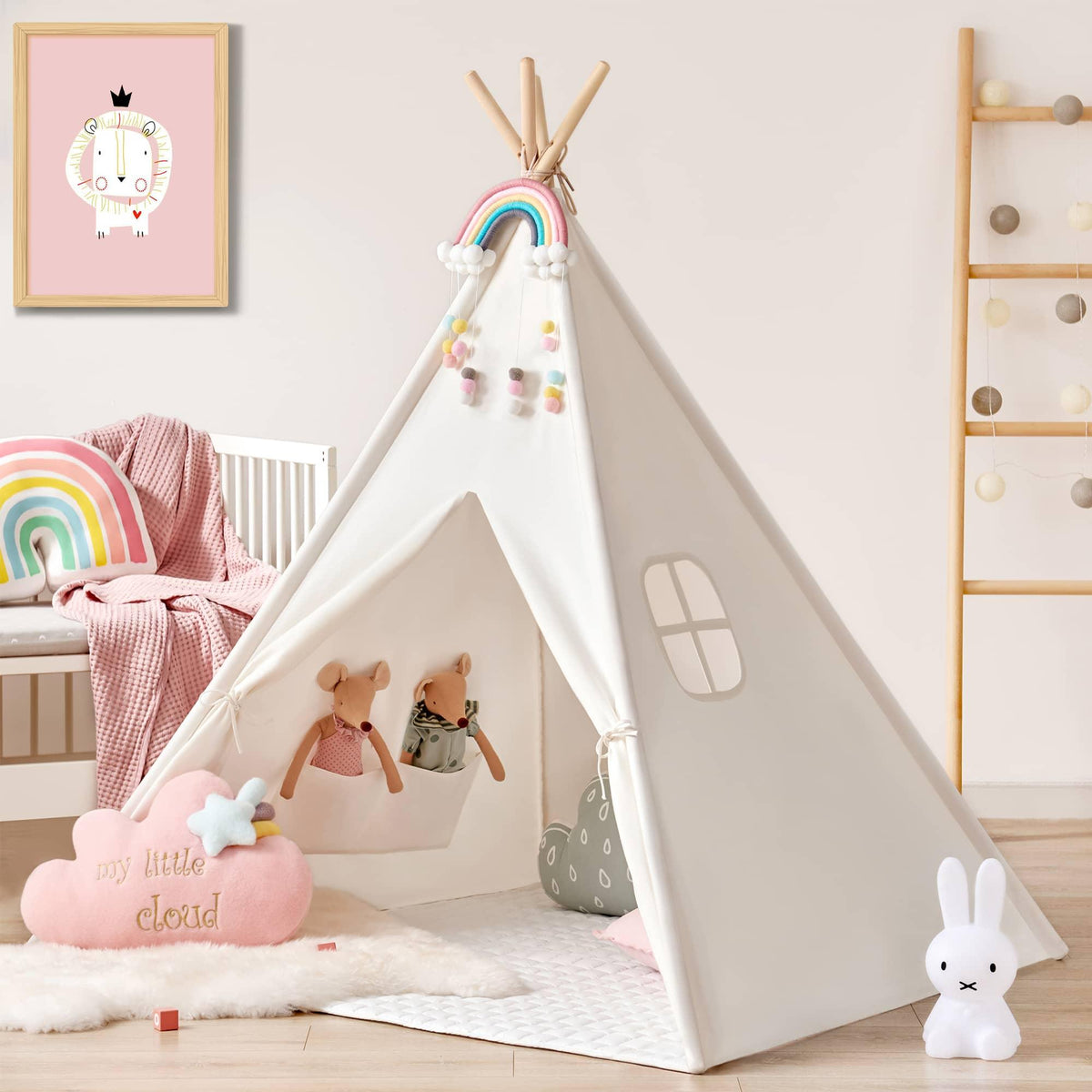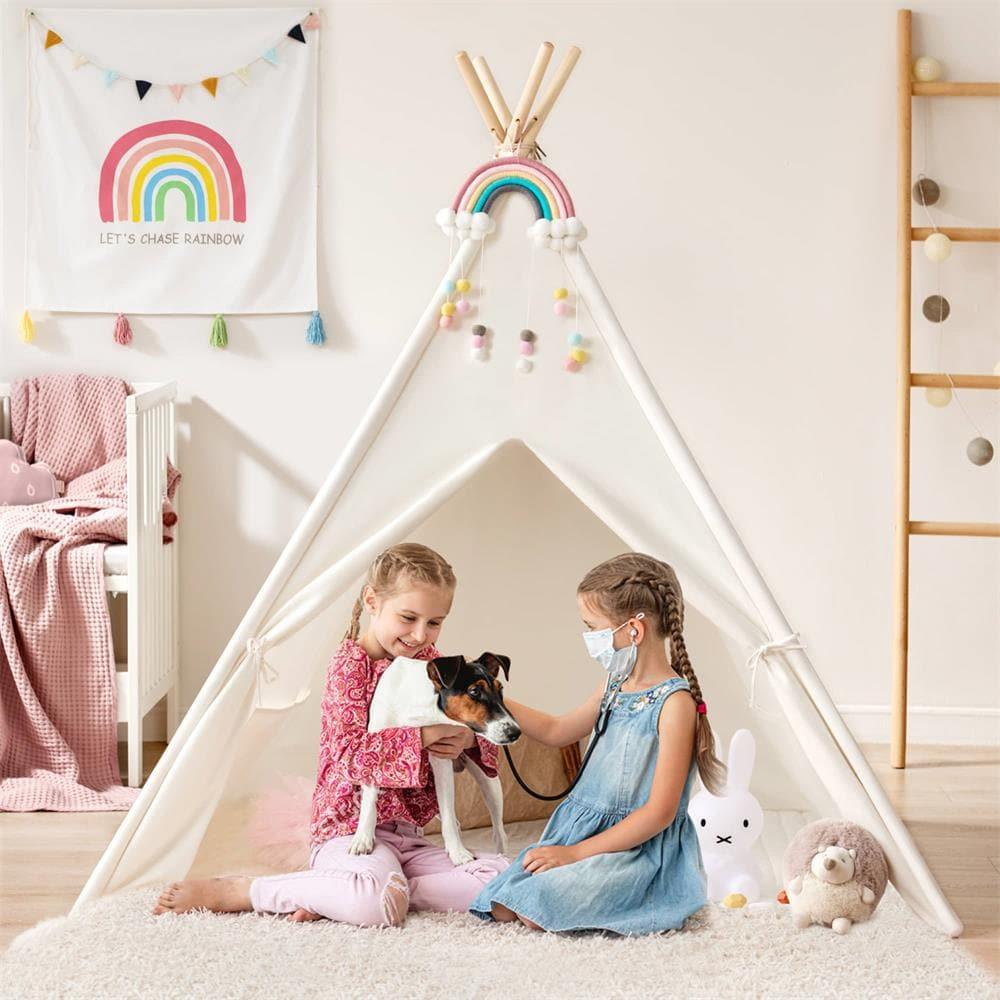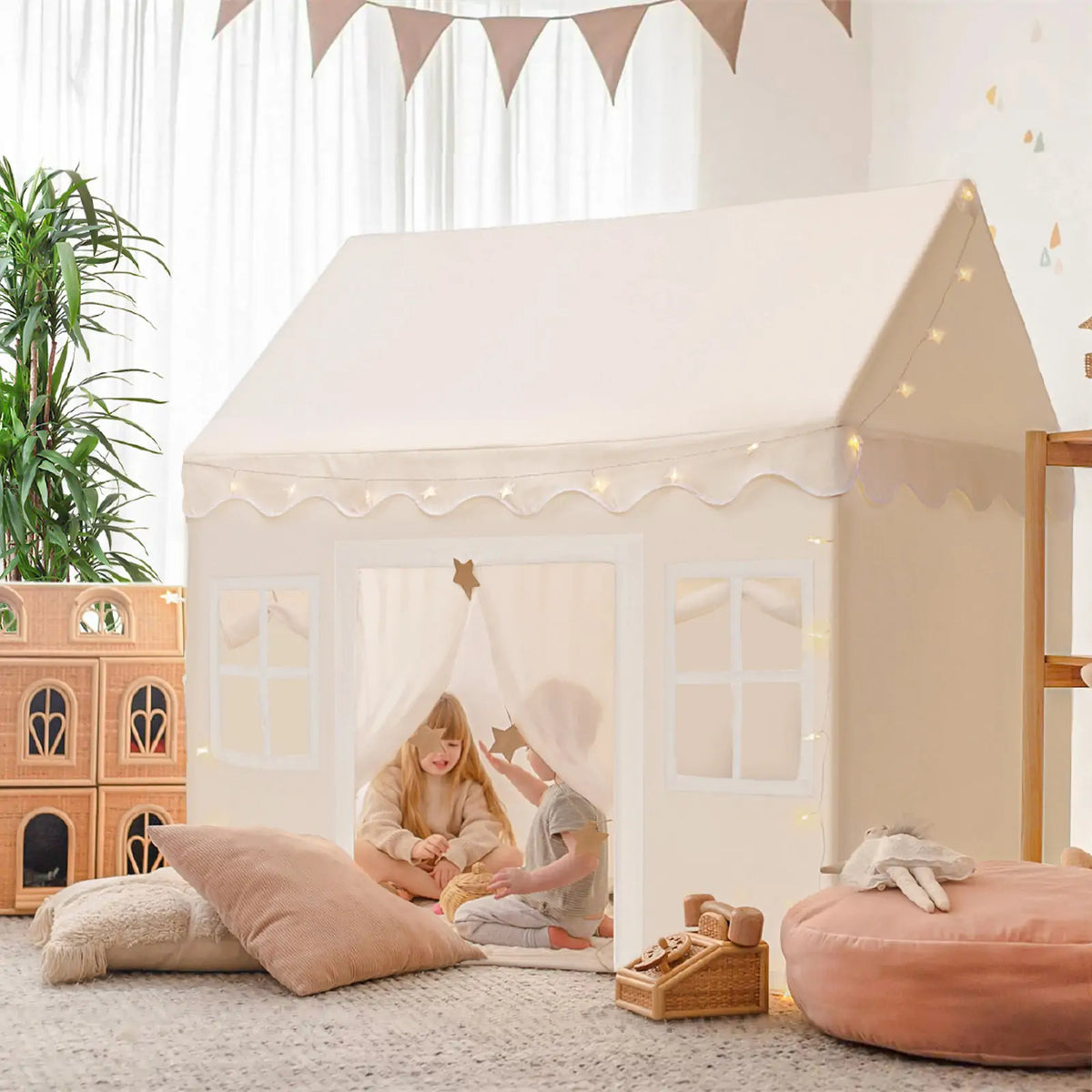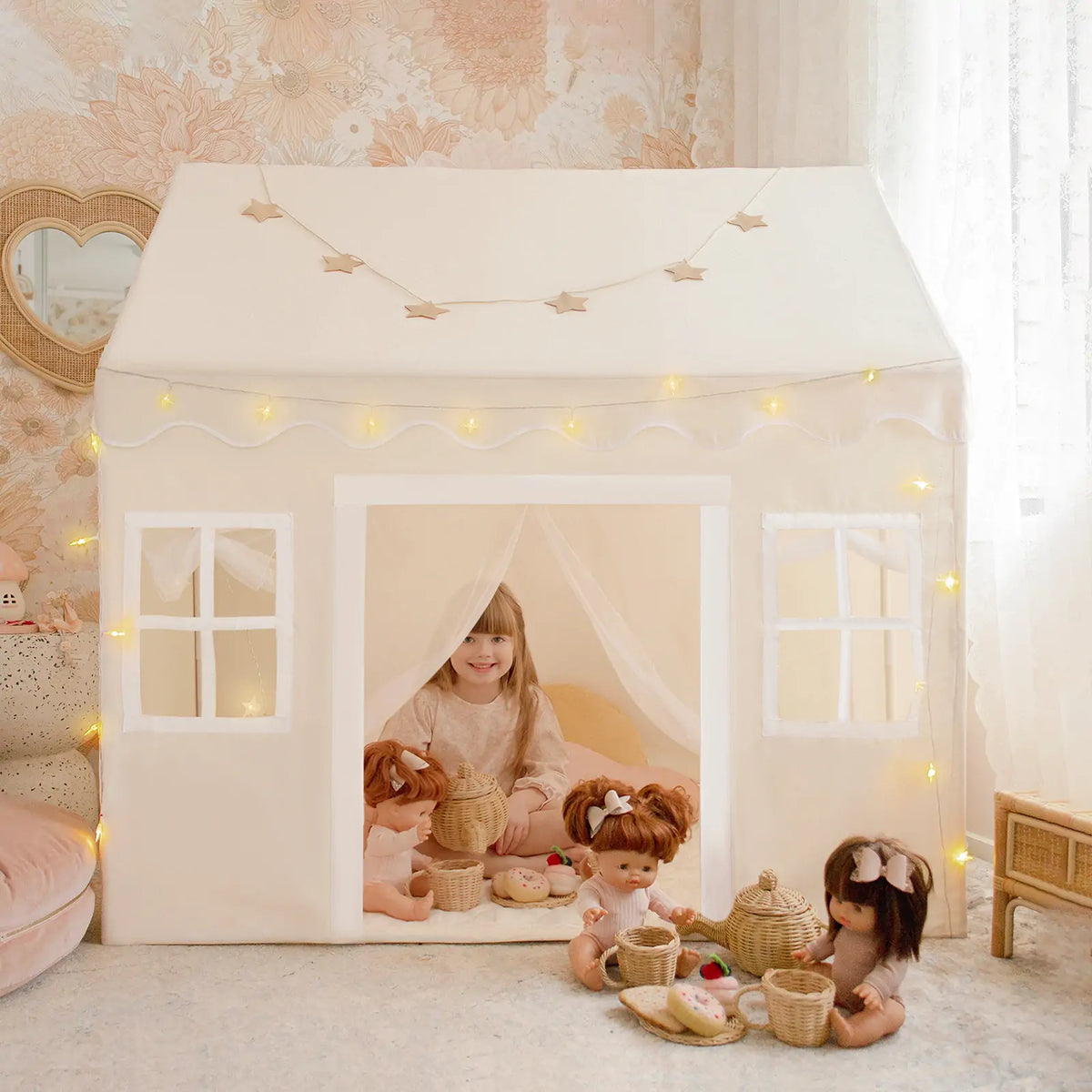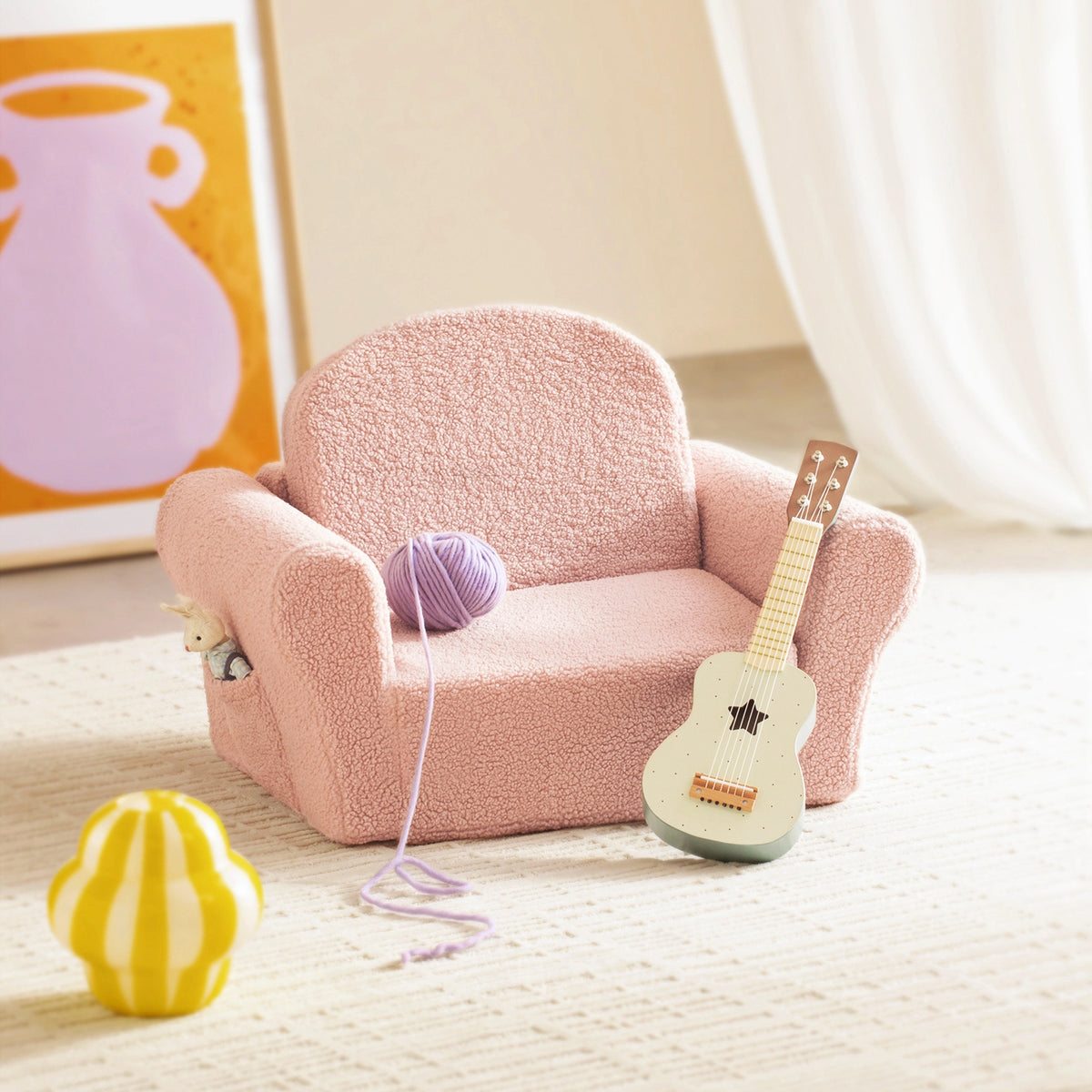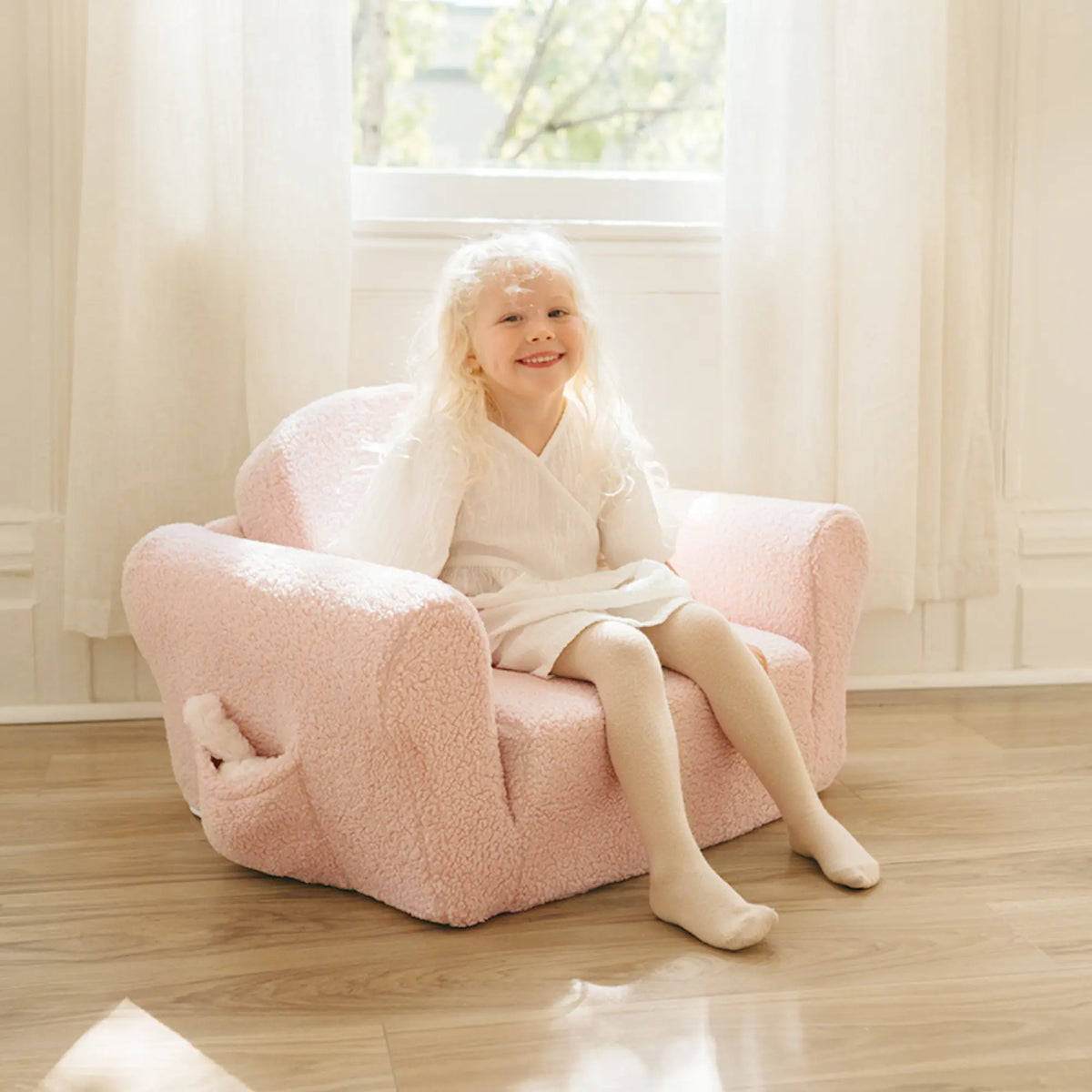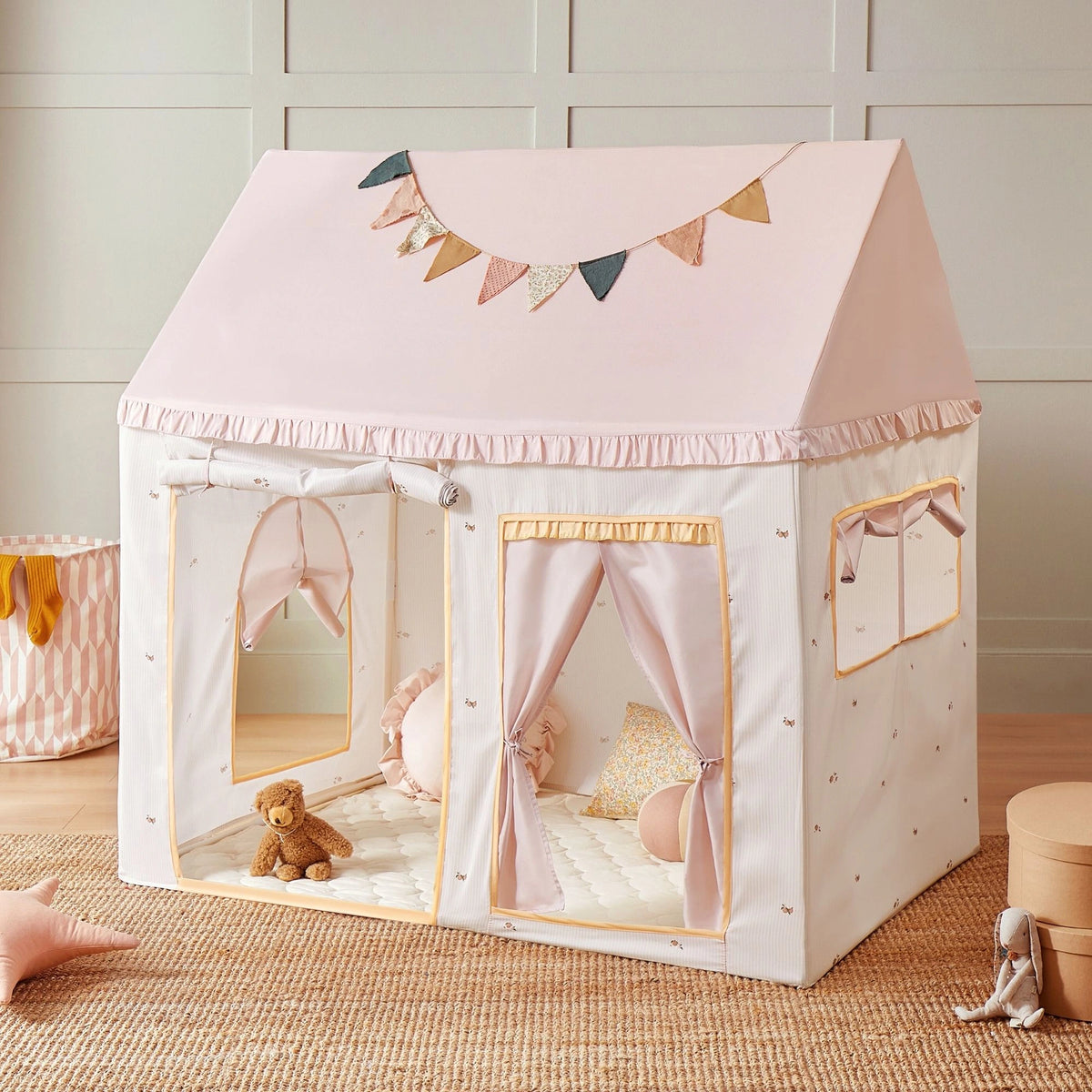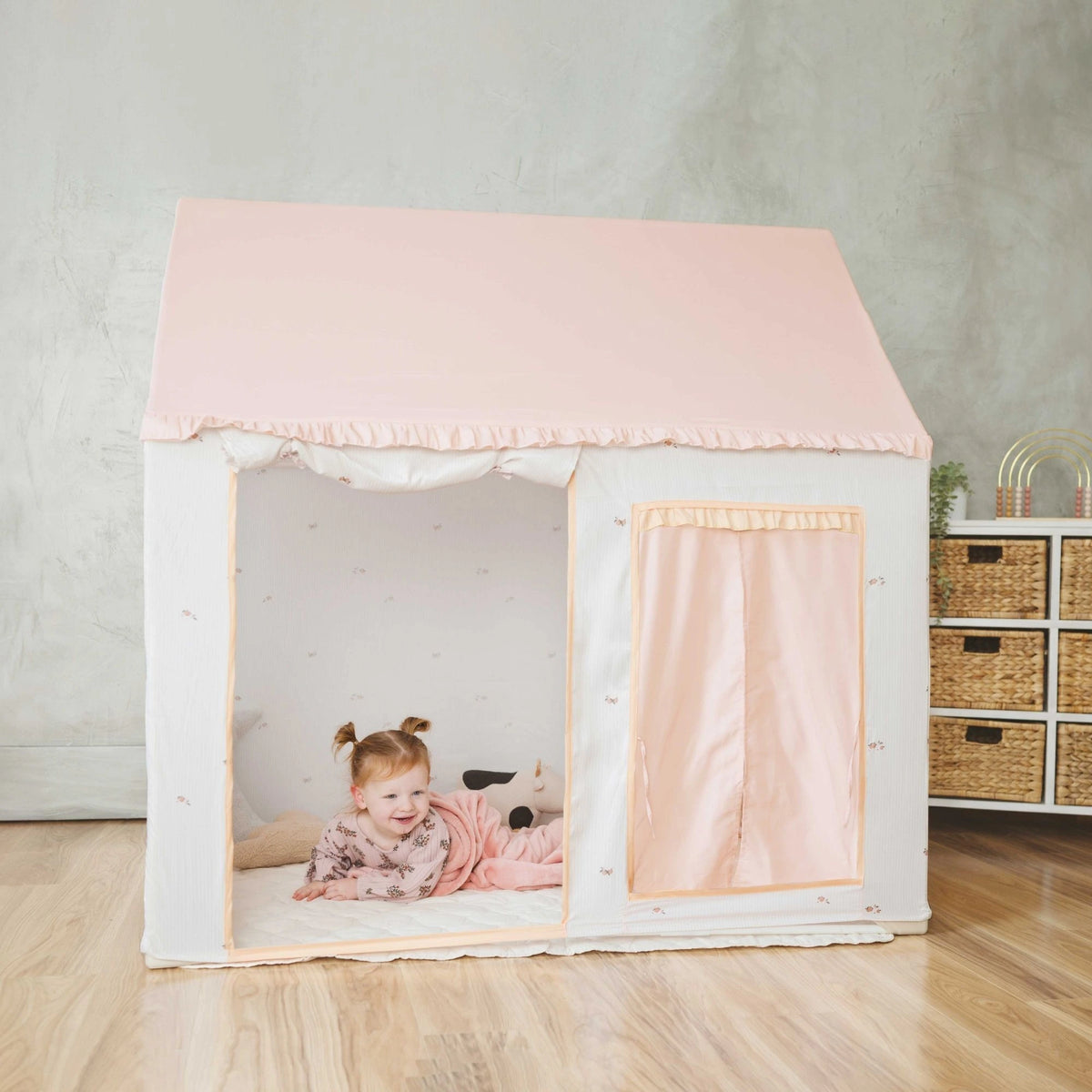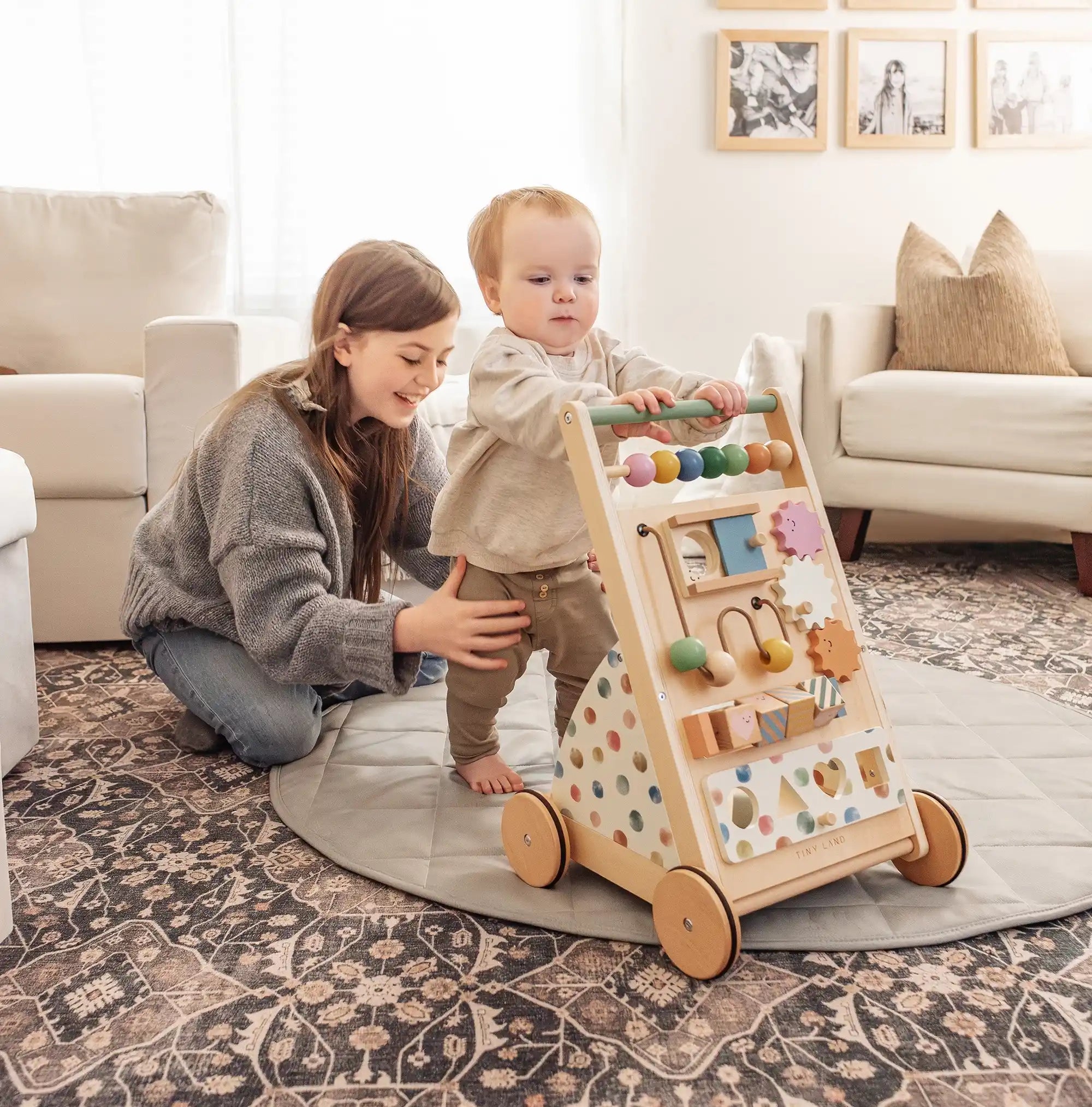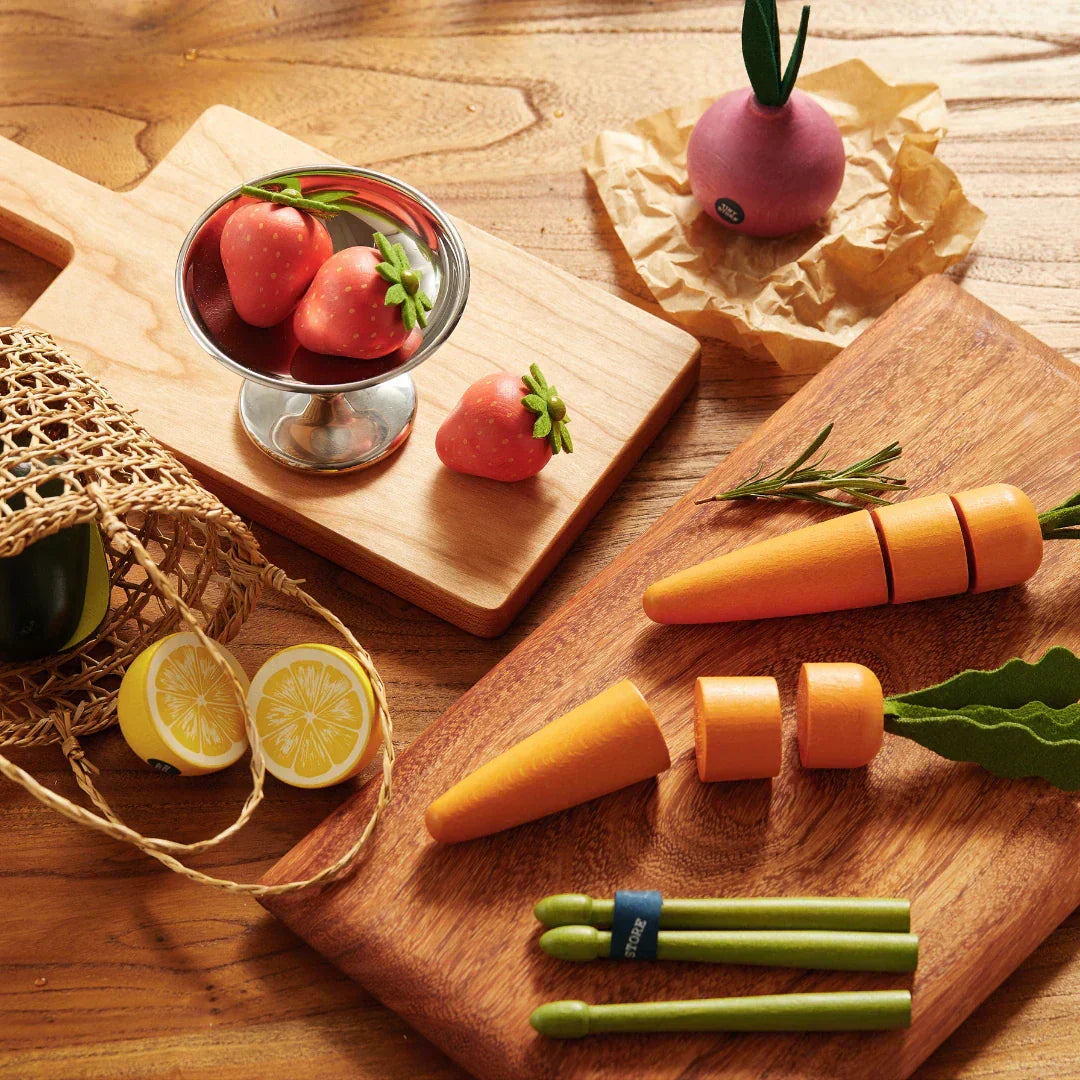“I’m the shopkeeper, Mommy!”
Last Sunday, as I unpacked groceries in the kitchen, my 3-year-old daughter carefully arranged her wooden apples and declared with pride. In that simple moment, I realized pretend play isn’t just child’s play — it’s how she begins to understand the world around her, building skills that will last a lifetime.
For Montessori-minded parents, grocery store pretend play is much more than make-believe. It’s an intentional, educational experience that blends imagination with real-life learning. This form of toy Education is rooted in educational themes that foster independence, emotional growth, and practical skills — all while seamlessly connecting play with daily routines inside your house.

Why Grocery Store Pretend Play Matters for Child Development
Dr. Maria Montessori famously said, “Play is the work of the child.”
Extensive research supports that pretend play plays a critical role in children’s cognitive, social, and emotional development. According to Lillard et al. (2013), pretend play enhances children’s problem-solving abilities, language skills, and social understanding, making it a foundation for lifelong learning.
Through grocery store pretend play, children discover:
-
Early math skills by counting play money, sorting colorful foods, and exploring pricing concepts.
-
Language growth as they role-play customers and cashiers, practicing polite conversation and vocabulary.
-
Social-emotional skills like empathy, turn-taking, and conflict resolution during interactive play.
-
Practical life habits such as organizing shelves, tidying up, and managing their pretend store.
-
Confidence and independence by making decisions and taking ownership of their play environment.
Kalkusch et al. (2022) further found that social pretend play notably fosters cooperation and emotional regulation, helping children navigate real-world interactions with patience and understanding.
Experts at the Child Mind Institute (2023) emphasize that pretend play also nurtures creativity and emotional resilience, which are vital for healthy childhood development. In conclusion, pretend play builds both imagination and real-world readiness.

Children Playing: Why Imaginative Play Builds Lifelong Skills
Whether playing alone or with others, children playing in pretend stores, kitchens, and markets are building foundational life skills. They practice:
-
Emotional intelligence through role-play
-
Language and communication with every exchange
-
Problem-solving through managing “customers” or handling store inventory
Montessori emphasizes purposeful play. When children play out roles from the adult world — like a shopkeeper or chef — they’re not just having fun. They’re developing a deeper understanding of how the process of daily life works inside and outside the house.
Even babies, when exposed to older siblings’ play, begin to observe and mimic actions, planting seeds for early learning and social development.

How a Food Set Toy Transforms Learning Through Play
A well-designed food set toy is more than just a colorful collection of pretend fruits and vegetables. It’s a tool for:
-
Categorization and sorting
-
Early counting and pricing concepts
-
Vocabulary expansion
-
Creative storytelling
Made from safe, durable materials, an open-ended food set toy invites endless learning. Whether your child is “selling apples” or “cooking eggs,” they’re engaging in real-life inspired fantasy that supports cognitive development. We also suggest choosing food sets made from wood or other tactile materials to further stimulate sensory learning.

The Play Kitchen as a Montessori Tool for Real-Life Exploration
Integrating a play kitchen with grocery store pretend play expands your child’s world. After shopping, they can “cook,” clean, organize, and even “serve meals” — mimicking what they see at home.
This seamless flow between roles supports:
-
Practical life skills
-
Routine sequencing
-
Independent exploration
-
Creativity and emotional connection
The play kitchen becomes a bridge between fantasy and reality, encouraging your child to discover and participate in the same meaningful tasks they see grown-ups do every day.

5 Montessori-Inspired Grocery Store Pretend Play Ideas to Try at Home
You don’t need an elaborate setup — just a few thoughtful ideas to make playtime meaningful and connect it to daily routines:
1. Role Rotation
Switch roles between cashier, customer, stocker, and cook. This builds empathy, flexible thinking, and communication.
2. Shop and Cook Combo
After “shopping,” let your child “cook” with their food set toy in the play kitchen. It creates a natural flow and connects play to real routines in your house.
3. Real Shopping List Practice
Include your child in grocery list-making. Then, recreate the trip in your pretend store — helping them understand planning, memory, and responsibility.
4. Customer Emotion Role-Play
Act out different customer moods—happy, confused, impatient—to help your child practice emotional regulation and problem-solving.
5. Clean-Up Challenge
Turn tidying up into a fun game. Sort foods by type, size, or color. This promotes organization and spatial awareness — core Montessori skills. Capture the fun and share it with extended family through social media, encouraging positive reinforcement and storytelling.

How the Tiny Land Grocery Store Market Stand Completes Your Pretend Play Setup
If your child already enjoys their Tiny Land play kitchen and food set toy, the new Grocery Market Stand is the perfect next step. It brings together learning, creativity, and family interaction in one durable play piece.
Why kids (and parents!) love it:
-
Realistic Trading Experience
Kids learn about money, math, and communication while using the chalkboard, price tags, and cash register. -
Dual-Player Design
Two kids can role-play at once — practicing teamwork, turn-taking, and cooperation. -
Multi-Scene Play
Switch between “Farmers Market” and “Coffee Shop” themes to keep play fresh and engaging. -
Organized Storage
Six compartments help kids sort food, plush toys, or toy animals — reinforcing categorization and responsibility. -
Creative Expression
The chalkboard and whiteboard give children a space to draw, write, and leave notes — enhancing literacy and artistic development. -
Montessori-Friendly Size and Design
Standing 927mm tall, it’s the perfect height for preschoolers and toddlers, and it pairs beautifully with other Tiny Land pretend toys.
In conclusion, this toy not only entertains but also encourages your child’s emotional, intellectual, and physical development — all within the comfort of your house.

Frequently Asked Questions From Montessori-Minded Parents
Q1: What age is best for grocery store pretend play?
A: Ages 2–6 are ideal, as children in this range are naturally building social and practical life skills.
Q2: How do I keep pretend play educational without it feeling like a lesson?
A: Use realistic, open-ended materials, and let your child take the lead. Observe and support — don’t direct.
Q3: What should I look for in a food set toy?
A: Look for natural, durable materials, realistic size and shape, and toys that support creativity, interaction, and long-term use.
Q4: How can pretend grocery play connect with real life?
A: Involve your child in real shopping — making the list, unpacking groceries, and preparing meals. Then mirror those routines in their pretend store.
Q5: Can grocery store play help with emotional skills?
A: Yes! Role-playing different customer moods helps children develop empathy, patience, and emotional control.
Bring Joy, Creativity, and Real-Life Learning Into Your Home
Your child already has the Tiny Land Play Kitchen and food set toy — now it’s time to complete the playroom with the Grocery Store Market Stand.
This isn’t just a toy — it’s a tool for learning, connection, and joy. Through pretend play, your child explores the world, builds real-life skills, and creates meaningful memories that last a lifetime.
Shop our Pretend Play Collection Now


